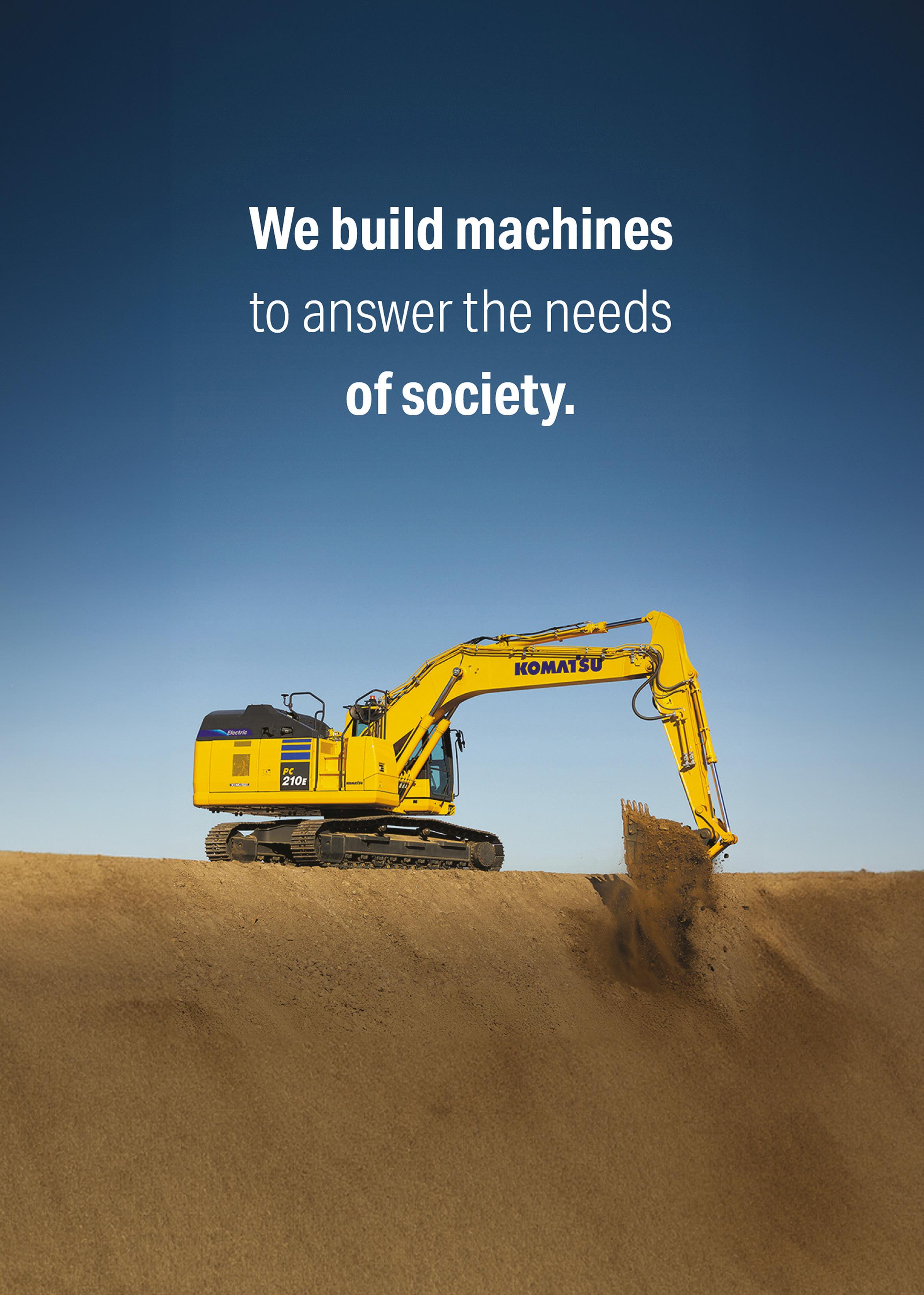










Perfectly suited to drive economic success.
Looking for a van that can handle all your fleet business needs? Look no further than the Crafter 35 Panel Van. Its versatility allows for easy custom conversions to suit your specific requirements.
From short turnarounds to long-haul journeys, the benchmark load volume (9.9 – 11m3), fuel efficient 2.0 TDI 103kW diesel engine offering a competitive 340 Nm of torque, an 8-speed automatic gearbox with torque converter makes light work of any load with a maximum payload of 1.5 tonnes. Designed to go the distance, Crafter 35 Auto is equipped with longer gear ratio in 8th gear for low rpms at high speeds to ensure a smoother more fuel-efficient drive (average 12km per litre). Like you and your business, Crafter 35 is here for the long run.
Visit www.vw.co.za to drive our economy forward.



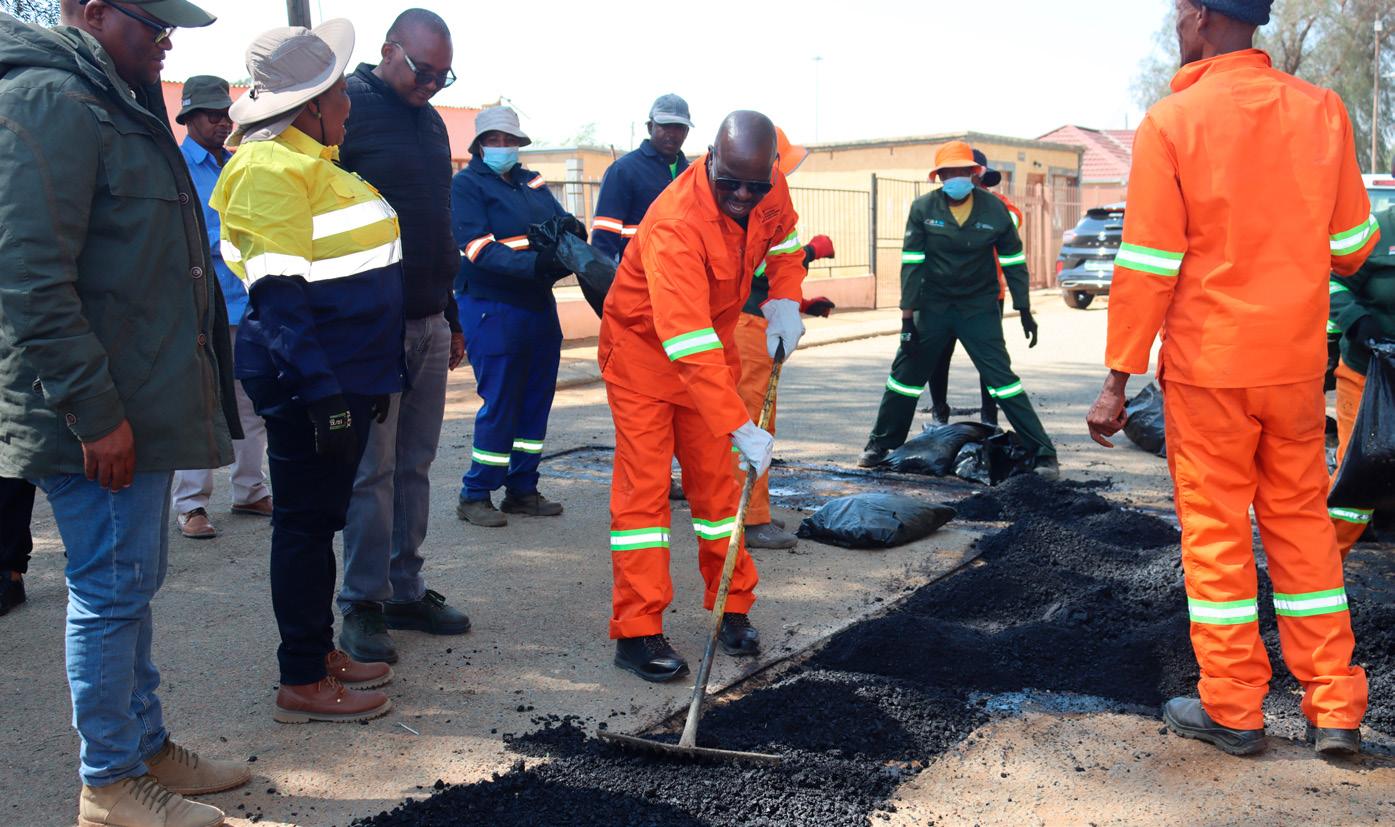
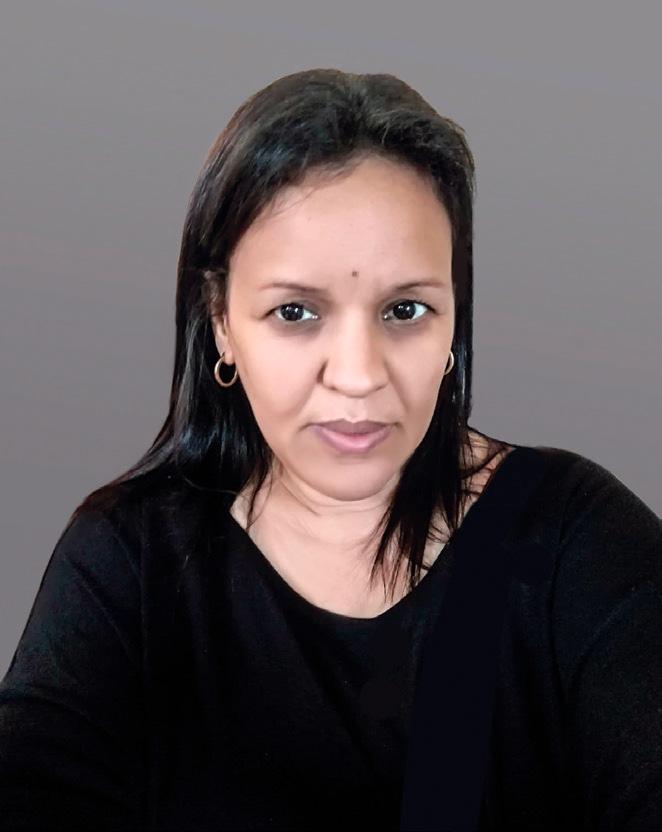
This edition of Municipal Focus arrives at a critical juncture - a time to assess progress, celebrate achievements, and prepare for the opportunities and challenges the new year will bring. In this edition, we shine a light on the individuals, initiatives, and innovations transforming our municipalities and enriching the lives of South Africans.
Our Front Cover Feature showcases North West Premier Lazarus Mokgosi’s first 100 days in office, a testament to proactive governance and laying a solid foundation for impactful projects and meaningful change across the province. We spotlight his transformative leadership and innovative programmes addressing key challenges and driving sustainable development.
We also highlight the CSIR’s EDT4IR Research Centre, which, through emerging technologies, empowers businesses, government, and society to thrive in an
era of rapid digital transformation - a beacon of innovation propelling South Africa into the Fourth Industrial Revolution.
As a powerful example of effective PPPs, we showcase 1) Blouberg Local Municipality’s collaboration with the Municipal Capability & Partnerships Programme (MCPP) and 2) Mpumalanga’s Road Maintenance Management System, developed with Zutari. Both demonstrate how partnerships and innovative approaches enhance service delivery, strengthen municipal capability, and improve community outcomes.
Another stellar PPP is the University of Fort Hare’s partnership with Amadlelo Agri, transforming the Eastern Cape’s dairy sector. Dr. Nthabiseng Taole-Mjimba shared insights into how this collaboration advances education, research, and sustainable farming while uplifting local communities and empowering the next generation of dairy professionals.
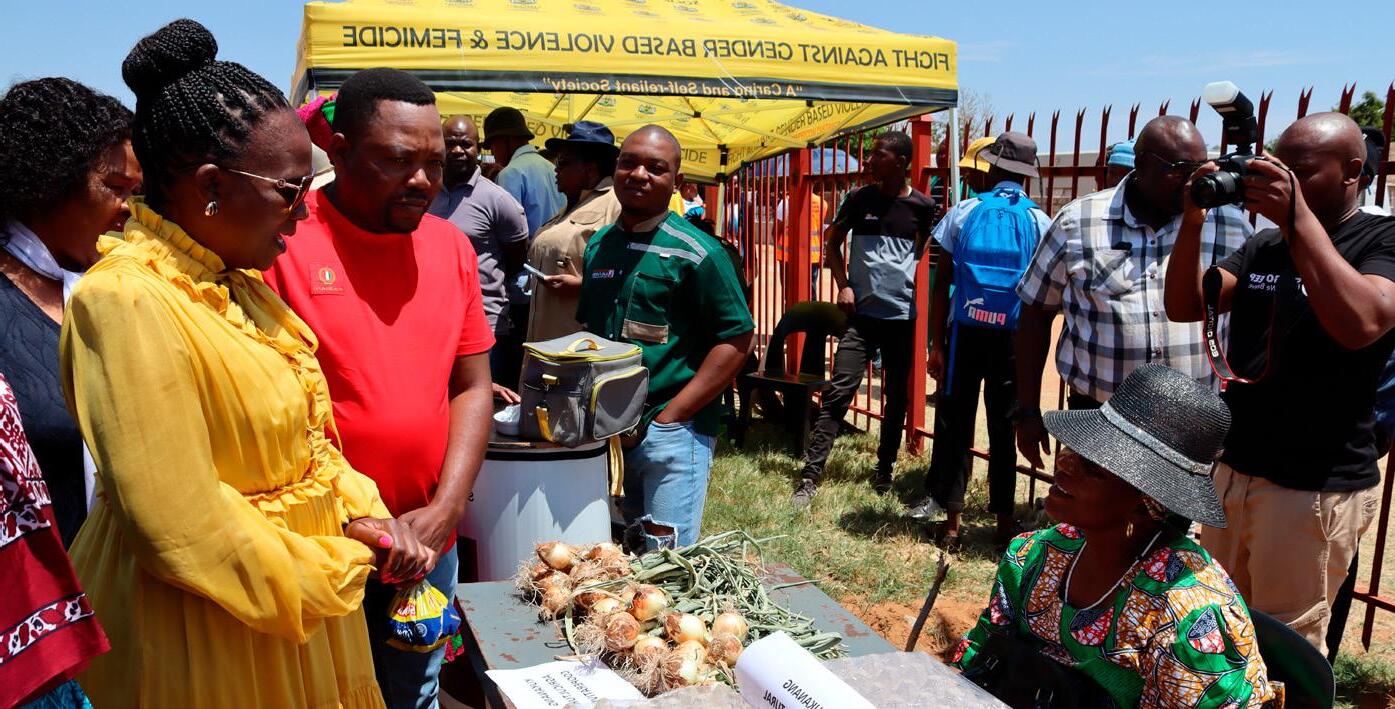
The Fetakgomo-Tubatse SEZ in Limpopo is another example of what can be achieved through strategic investment, collaboration, and a commitment to people and the planet. We explore how its vision of economic progress and environmental sustainability is reaping rewards.
In an insightful discussion, General Secretary of SANCO Mike Soko delves into SANCO’s commitment to mining communities. This feature highlights SANCO's role in bridging gaps between mining companies, government, and communities, while fostering inclusive, equitable development.
Finally, we celebrate the CSIR’s year-end results! The Municipal Focus team attended a roundtable with CEO Dr. Thulani Dlamini and heard first-hand how the organisation continues to drive innovation and sustainability, with exemplary achievements in industrialisation, human capital development, and socioeconomic transformation.
We extend our best wishes to all our readers and South Africans for a peaceful year-end. May the new year bring with it opportunities to achieve your goals, make a positive impact, and realise aspirations in every sphere of life.
Enjoy the read and keep safe!





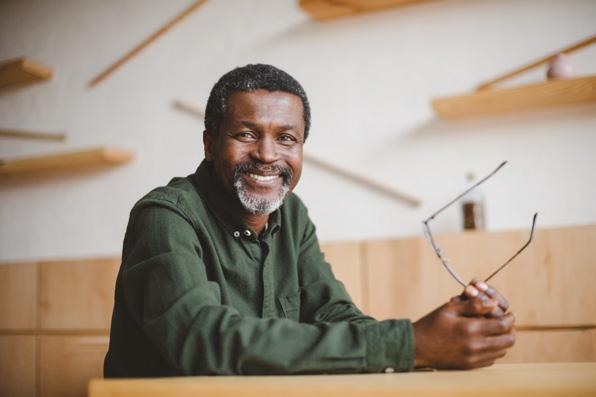


















































































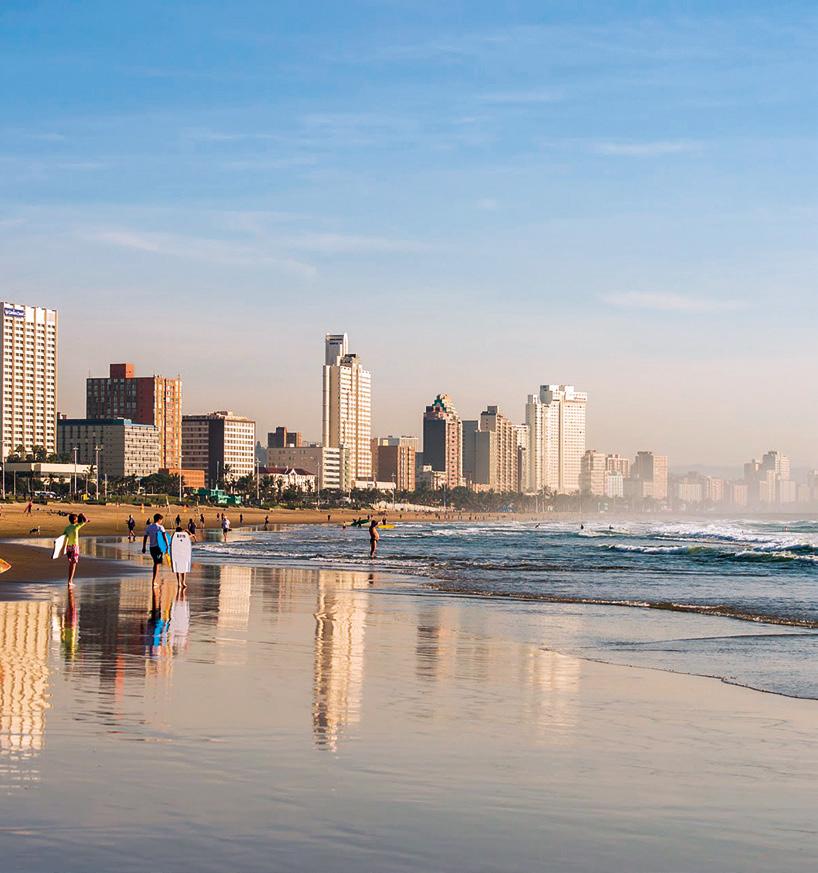

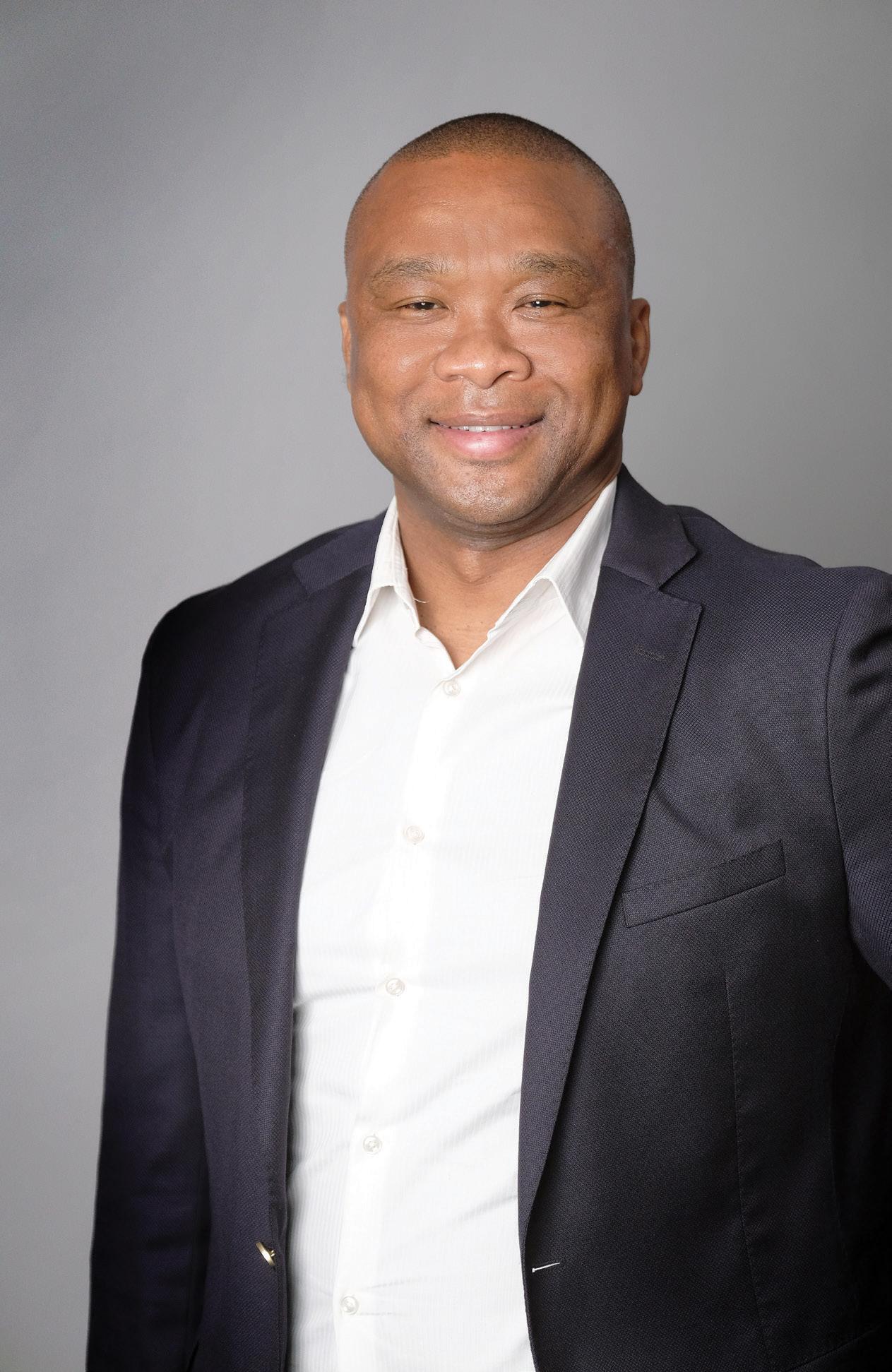
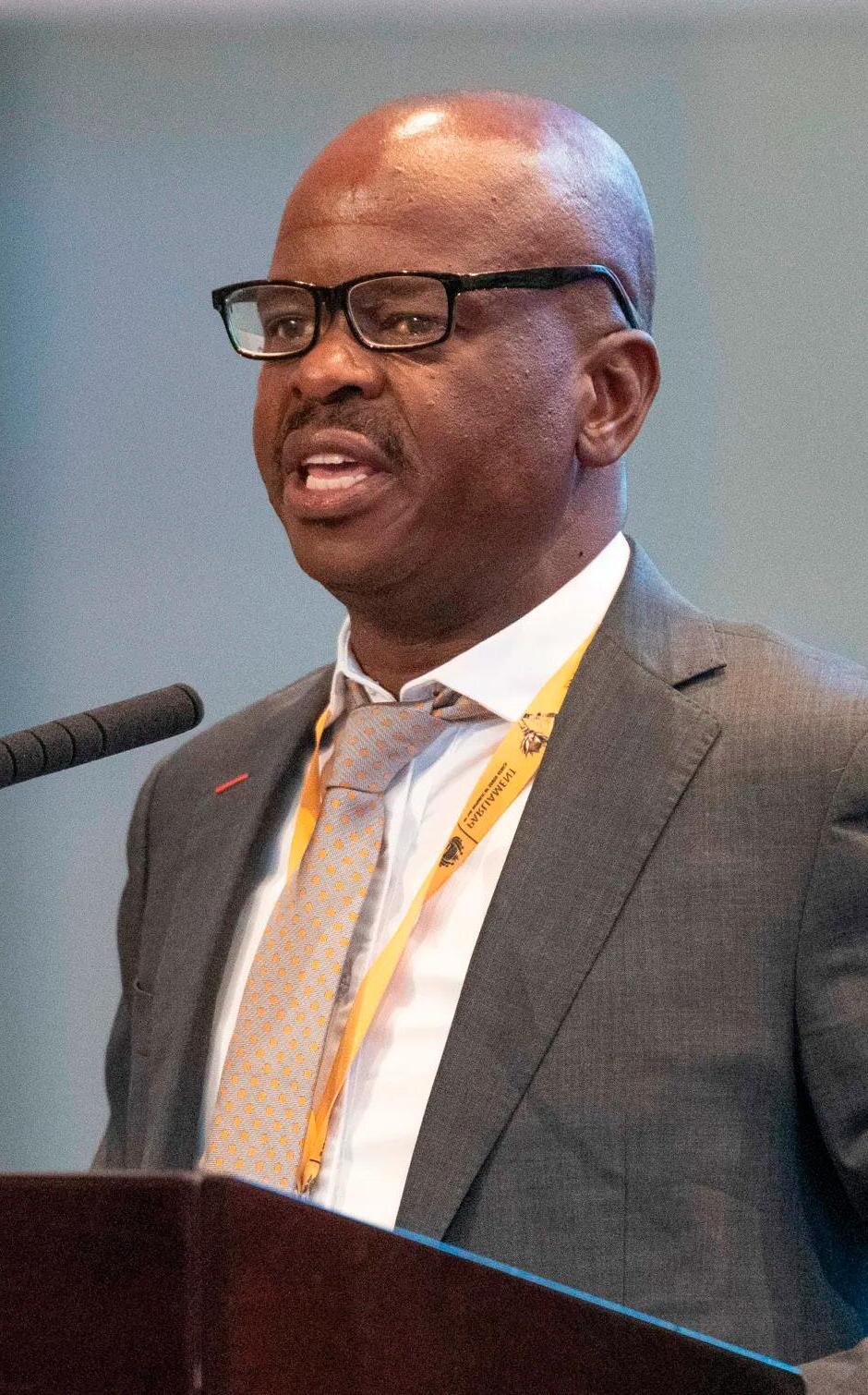
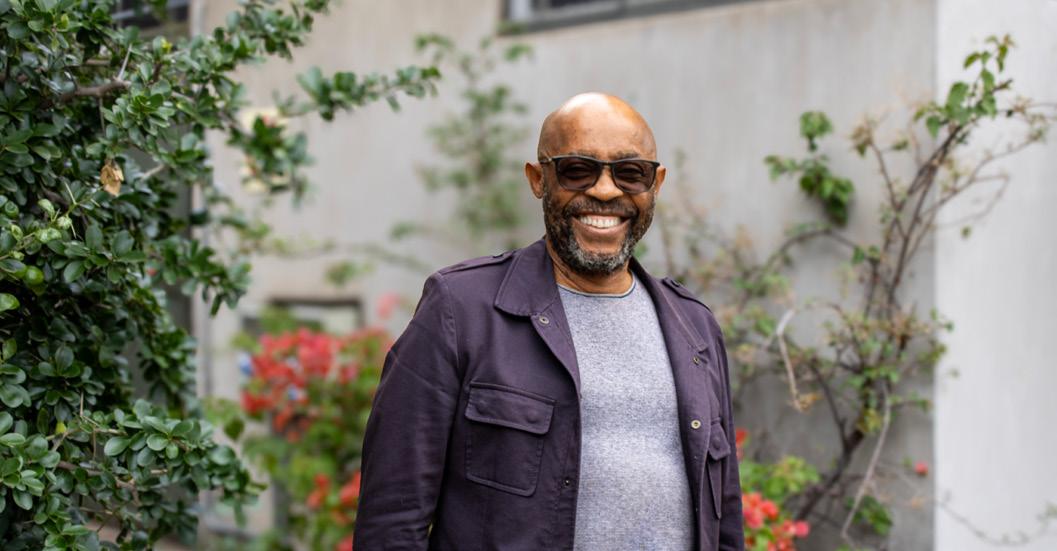

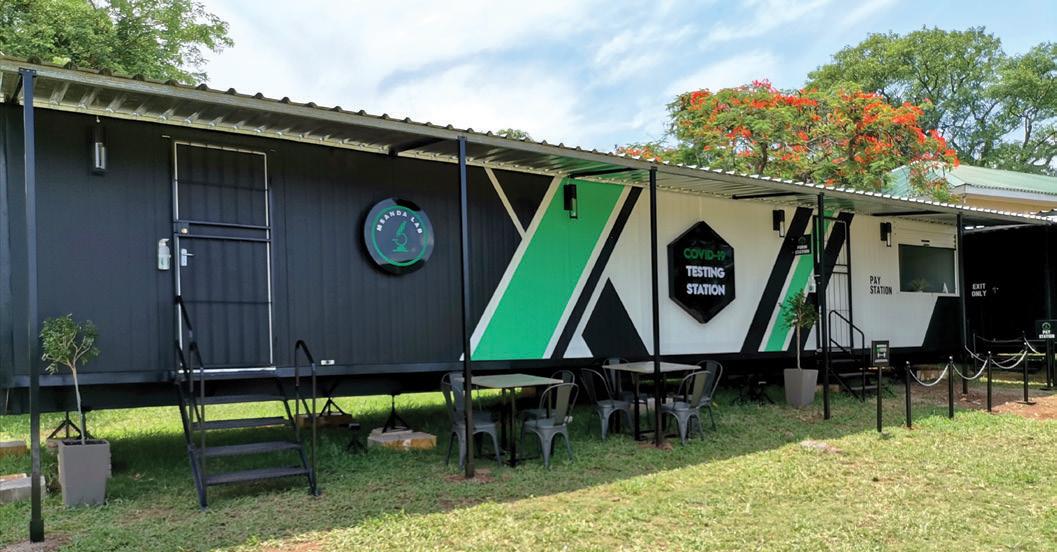

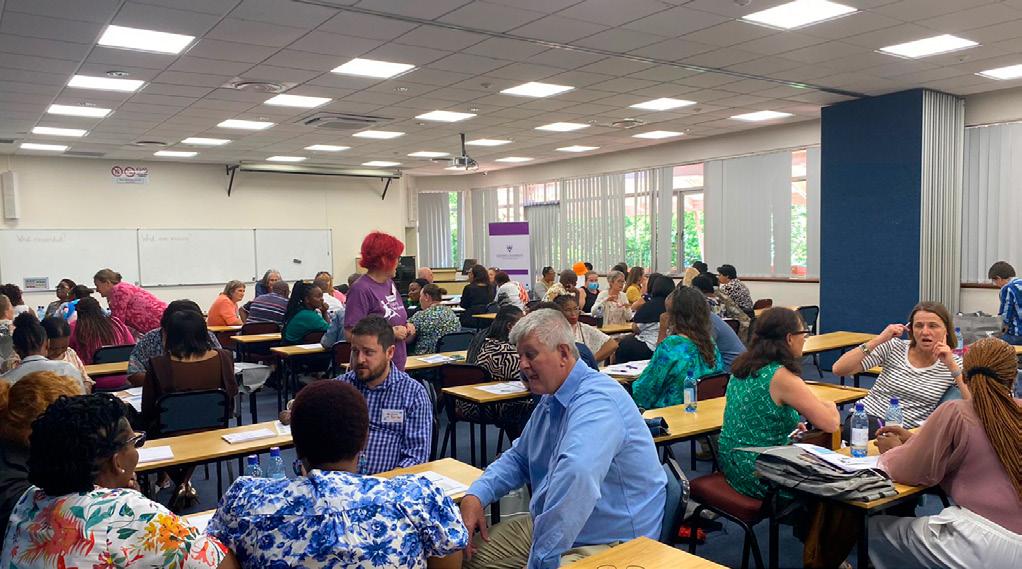
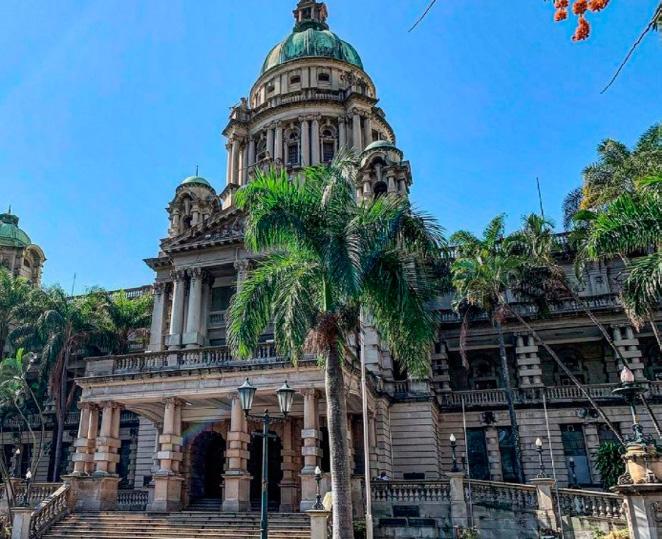
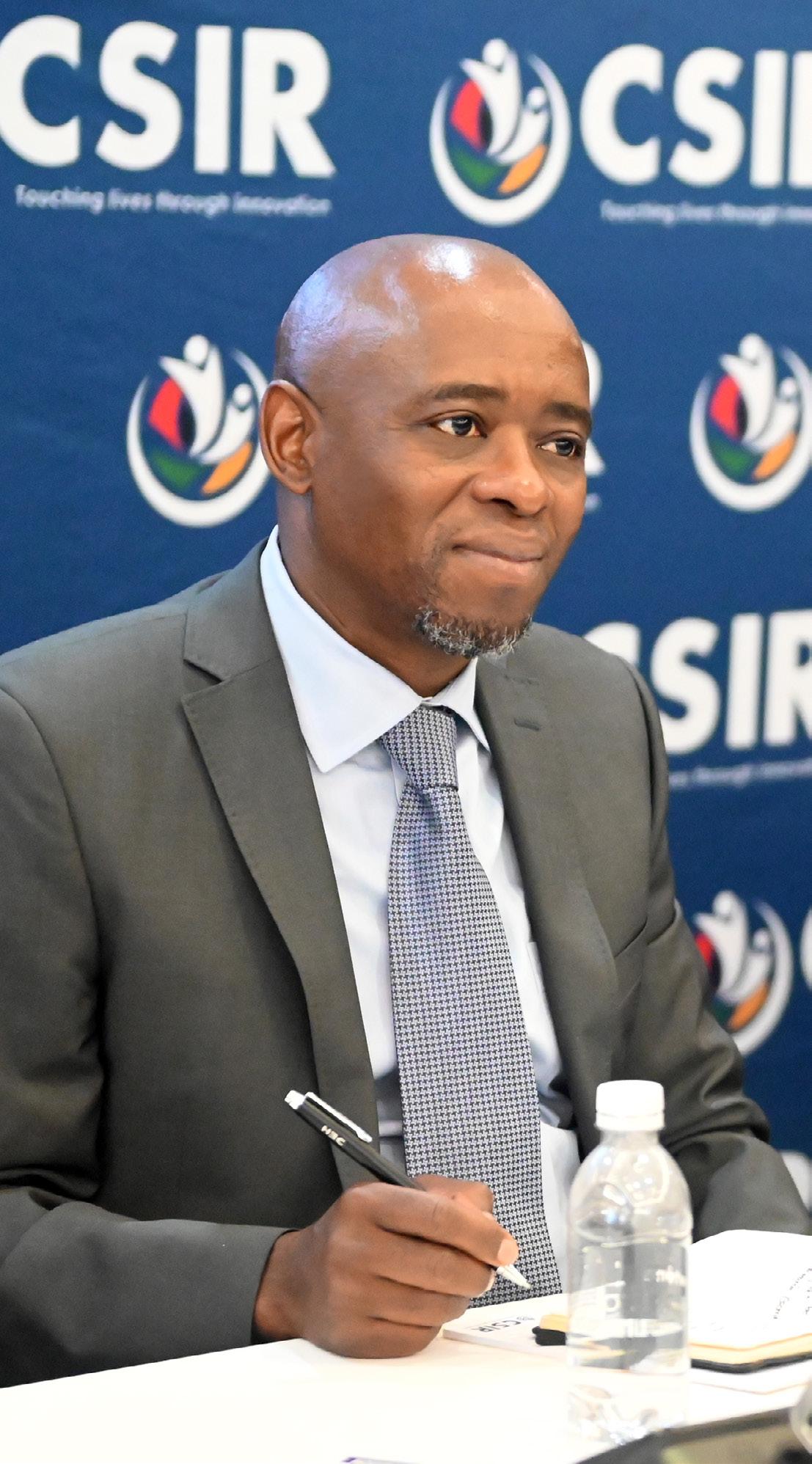
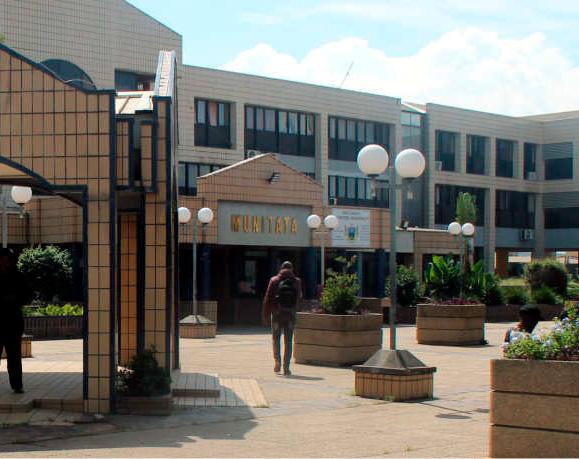





“Communications, Marketing and Advertising are indispensable tools towards success and growth in any business venture…”
“Communications, Marketing and Advertising are indispensable tools towards success and growth in any business venture…”
Kweda Media & Communications offers a diverse range of business and sales solutions, strategies and ideas that are customised to meet our clients’ standards and exceed their expectations.
Kweda Media & Communications offers a diverse range of business and sales solutions, strategies and ideas that are customised to meet our clients’ standards and exceed their expectations.
Our Vision is driven by the passion to inspire, assist and elevate business enterprises by forming strategic collaborations that will yield multiple benefits of success and growth for all.
Our Vision is driven by the passion to inspire, assist and elevate business enterprises by forming strategic collaborations that will yield multiple benefits of success and growth for all.
Kweda Media and Communications is a Proudly South African, 100% black female owned company located in Plumstead, Cape Town, registered as a private company since May 2014 - we hold a level 1 B-BBEE certificate. We are a team of multi skilled staff members who have a fresh, innovative and diverse approach to working and always willing to put in the extra time and attention to ensure great service delivery on time.
Kweda Media and Communications is a Proudly South African, 100% black female owned company located in Plumstead, Cape Town, registered as a private company since May 2014 - we hold a level 1 B-BBEE certificate. We are a team of multi skilled staff members who have a fresh, innovative and diverse approach to working and always willing to put in the extra time and attention to ensure great service delivery on time.
Your vision… our drive
Your vision… our drive
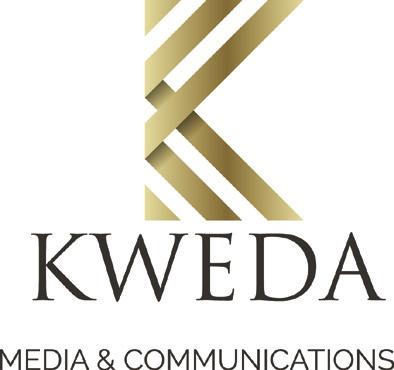






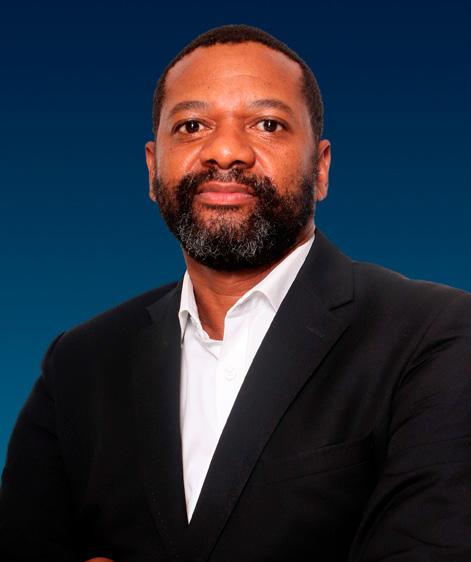
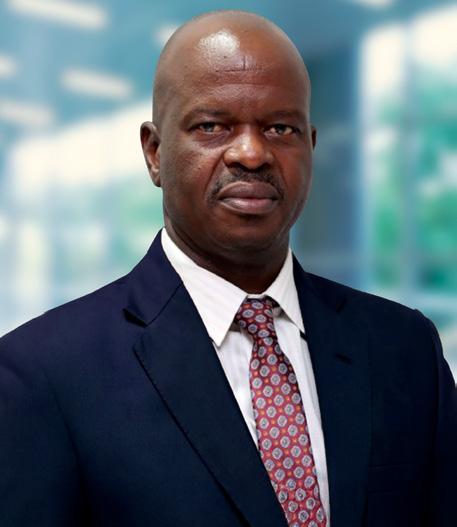
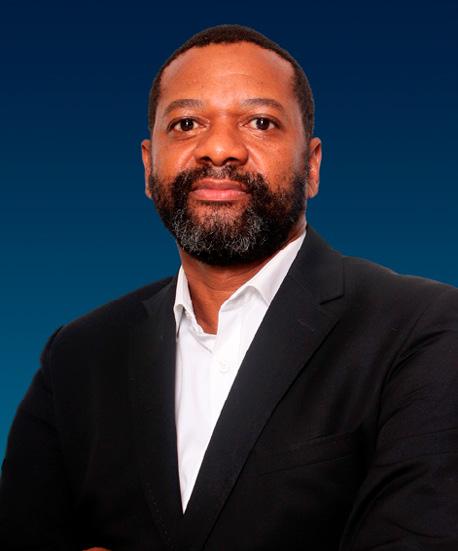
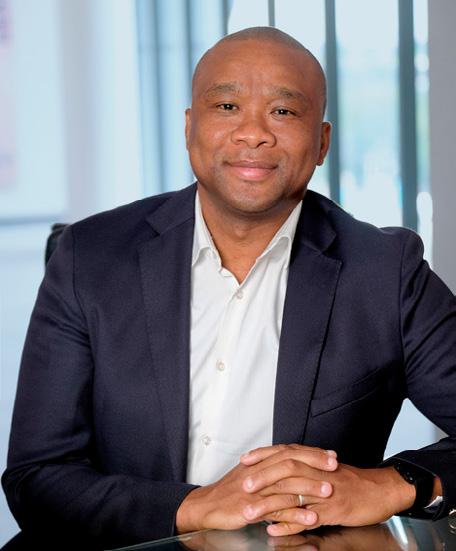
SIMO MKHIZE
SIMO MKHIZE
SITHOLE MBANGA CEO: SA CITIES NETWORK North West Premier: LAZARUS MOKGOSI
EDITOR
PUBLISHING EDITOR
PUBLISHING EDITOR
DISTRIBUTION
DISTRIBUTION
Nardine Nelson nardine@kwedamedia.co.za +27 82 739 3932
Nardine Nelson nardine@kwedamedia.co.za +27 82 739 3932
nardine@kwedamedia.co.za +27 82 739 3932
Nardine Nelson nardine@kwedamedia.co.za +27 82 739 3932
EDITORIAL CONTRIBUTORS
EDITORIAL CONTRIBUTORS
EDITORIAL CONTRIBUTORS
Contributors
Isaac Mahlangu Xola Speelman
Contributors Happy Nkhoma Isaac Mahlangu Madala Thepa
Contributors Happy Nkhoma Isaac Mahlangu Madala Thepa
Madala Thepa Thebe Mabanga
Nwabisa Pondoyi Madala Thepa
Nwabisa Pondoyi Madala Thepa
MAGAZINE DESIGN & LAYOUT
MAGAZINE DESIGN & LAYOUT
MAGAZINE DESIGN & LAYOUT
KCDA Design Agency
MAGAZINE DESIGN & LAYOUT
MAGAZINE DESIGN & LAYOUT
Jaco Kotze jk@kcda.co.za
Digital Pixels Studio Paul Sampson paul@digital-pixels.co.za
Digital Pixels Studio Paul Sampson paul@digital-pixels.co.za
Digital Pixels Studio Paul Sampson paul@digital-pixels.co.za
Digital Pixels Studio Paul Sampson paul@digital-pixels.co.za
Advertising Bongani Matwa bongani@kwedamedia.co.za
Nazly Leite nazly@kwedamedia.co.za
Advertising Mphumzi Njovana mphumzi@kwedamedia.co.za Nazly Leite nazly@kwedamedia.co.za
Advertising Mphumzi Njovana mphumzi@kwedamedia.co.za Nazly Leite nazly@kwedamedia.co.za
Nomonde Siko nomonde@kwedamedia.co.za
Advertising Mphumzi Njovana mphumzi@kwedamedia.co.za Nazly Leite nazly@kwedamedia.co.za
Advertising Mphumzi Njovana mphumzi@kwedamedia.co.za Nazly Leite nazly@kwedamedia.co.za
Production production@kwedamedia.co.za
Production production@kwedamedia.co.za
Production production@kwedamedia.co.za
Production Rayhaan Suleiman production@kwedamedia.co.za
Production Rayhaan Suleiman production@kwedamedia.co.za
Administration admin@kwedamedia.co.za
Administration Tameryn Moses tameryn@kwedamedia.co.za admin@kwedamedia.co.za
Administration Tameryn Moses tameryn@kwedamedia.co.za admin@kwedamedia.co.za
Administration/Finance Tameryn Moses tameryn@kwedamedia.co.za
Marketing / Distribution Nozi Mbanjwa marketing@kwedamedia.co.za
GCIS, Assembly, National Provincial Municipalities:
GCIS, National Assembly, NCOP, National & Provincial Departments, Municipalities: Mayors, Managers, Heads of Procurement, Tenders and Purchasing Officers, Conferences and the Private Sector

National Assembly, National Municipalities: Officers, Conferences
GCIS, National Assembly, NCOP, National & Provincial Departments, Municipalities: Mayors, Managers, Heads of Procurement, Tenders and Purchasing Officers, Conferences and the Private Sector
DIGITAL E-BOOK CREATION
DIGITAL E-BOOK CREATION

www.KCDA.co.za
www.digital-pixels.co.za CCO: CELL C
www.digital-pixels.co.za CCO: CELL C
PUBLISHED BY
PUBLISHED BY Kweda Media & Communications
Procurement, Tenders and Purchasing Officers, Conferences Media Communications
PUBLISHED BY Kweda Media & Communications 1 The Village Square, Main Road, Plumstead, Cape Town Tel: +27 (21) 768 0115 www.kwedamedia.co.za
www.kwedamedia.co.za
Kweda Media & Communications 1 The Village Square, Main Road, Plumstead, Cape Town Tel: +27 (21) 768 0115 www.kwedamedia.co.za
1 The Village Square, Main Road, Plumstead, Cape Town Tel: +27 (21) 768 0115 www.kwedamedia.co.za
1 The Village Square, Main Road, Cape +27 (21) 768 0115 www.kwedamedia.co.za






Administration subscriptions@kwedamedia.co.za
Subscriptions / Distribution subscriptions@kwedamedia.co.za
Subscriptions / Distribution subscriptions@kwedamedia.co.za
subscriptions@kwedamedia.co.za
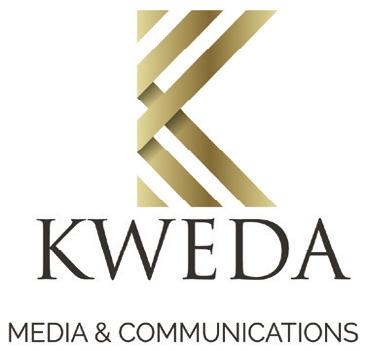
All editorial, business and production correspondence should be addressed to Municipal Focus, PO Box 12454 Plumstead 7800. Manuscripts, illustrations and other material must be accompanied by a stamped, self-addressed envelope. No responsibility can be accepted for unsolicited material. The editor reserves the right to amend and to alter copy and visual material as deemed necessary. Copyright by Kweda Media & Communications. All rights reserved. No part of this publication may be reproduced, stored in a retrieval system or transmitted by any form or any means without prior permission of the publisher. The opinions expressed in Municipal Focus are not necessarily those of the publishers.
editorial, and production correspondence should be addressed to Municipal Focus, PO Box 12454 Plumstead 7800. Manuscripts, illustrations and other material must be accompanied by a stamped, self-addressed envelope. No responsibility can be accepted for unsolicited material. The editor reserves the right to amend and to alter copy and visual material as deemed necessary. Copyright by Kweda Media & Communications. All rights reserved. No part of this publication may be reproduced, stored in a retrieval system or transmitted by any form or any means without prior permission of the publisher. The opinions expressed in Municipal Focus are not necessarily those of the publishers.
business and production correspondence should be addressed to Municipal Focus, PO Box 12454 Plumstead 7800. Manuscripts, illustrations and other material must be accompanied by a stamped, self-addressed envelope. No responsibility can be accepted for unsolicited material. The editor reserves the right to amend and to alter copy and visual material as deemed necessary. Copyright by Kweda Media & Communications. All rights reserved. No part of this publication may be reproduced, stored in a retrieval system or transmitted by any form or any means without prior permission of the publisher. The opinions expressed in Municipal Focus are not necessarily those of the publishers.
All editorial, business and production correspondence should be addressed to Municipal Focus, PO Box 12454 Plumstead 7800. Manuscripts, illustrations and other material must be accompanied by a stamped, self-addressed envelope. No responsibility can be accepted for unsolicited material. The editor reserves the right to amend and to alter copy and visual material as deemed necessary. Copyright by Kweda Media & Communications. All rights reserved. No part of this publication may be reproduced, stored in a retrieval system or transmitted by any form or any means without prior permission of the publisher. The opinions expressed in Municipal Focus are not necessarily those of the publishers.
All editorial, business and production correspondence should be addressed to Municipal Focus, PO Box 12454 Plumstead 7800. Manuscripts, illustrations and other material must be accompanied by a stamped, self-addressed envelope. No responsibility can be accepted for unsolicited material. The editor reserves the right to amend and to alter copy and visual material as deemed necessary. Copyright by Kweda Media & Communications. All rights reserved. No part of this publication may be reproduced, stored in a retrieval system or transmitted by any form or any means without prior permission of the publisher. The opinions expressed in Municipal Focus are not necessarily those of the publishers.


North West Premier Lazarus Mokgosi has reached a significant milestone, marking his first 100 days in office. Reflecting on his administration’s achievements, the Premier shared insights into the strides made in financial management, service delivery, and economic development, with a focus on uplifting communities across the province.
Premier Mokgosi began by celebrating the province’s improved audit outcomes for the 2023/24 financial year, which ended on 31 March 2024. Speaking at a media briefing in Mafikeng, he noted, “The audit results show a glimmer of hope for our province compared to previous years.”
Out of 22 municipalities, 21 successfully submitted their Annual Financial Statements for the 2022/23 financial year, with Ditsobotla Local Municipality being the only exception. Premier Mokgosi highlighted the progress made in municipalities like Moretele, which moved from Qualified to Unqualified, and Ngaka Modiri Molema District Municipality, which improved from Adverse to Qualified.
“Three municipalities - Dr Kenneth Kaunda, City of Matlosana, and Moses Kotane - have maintained unqualified audit outcomes for
two consecutive years,” he added. KgetlengRivier Local Municipality also showed significant progress, moving from a Disclaimer to a Qualified audit outcome. The improvements, Mokgosi explained, were achieved through the implementation of Financial Recovery Plans aligned with National Treasury guidelines. Provincial Executive Representatives were deployed to oversee the adoption of sustainable budgets and to ensure that service delivery targets were met. “This foundation has eased our transition and enabled us to focus on immediate priorities such as service delivery and job creation,” he said.
With municipal finances stabilising, Mokgosi’s administration has been able to prioritise critical water and sanitation projects. These initiatives, valued at over R66 million, have benefitted more than 41,000 residents across the province.
Through the bi-weekly Thuntsha-Lerole initiative, the provincial government officially launched a R97 million bulk sewer and water reticulation project in Rekgaratllile Township near Stella in Naledi Local Municipality. This project is just one of many aimed at addressing longstanding water and sanitation challenges in the province. >
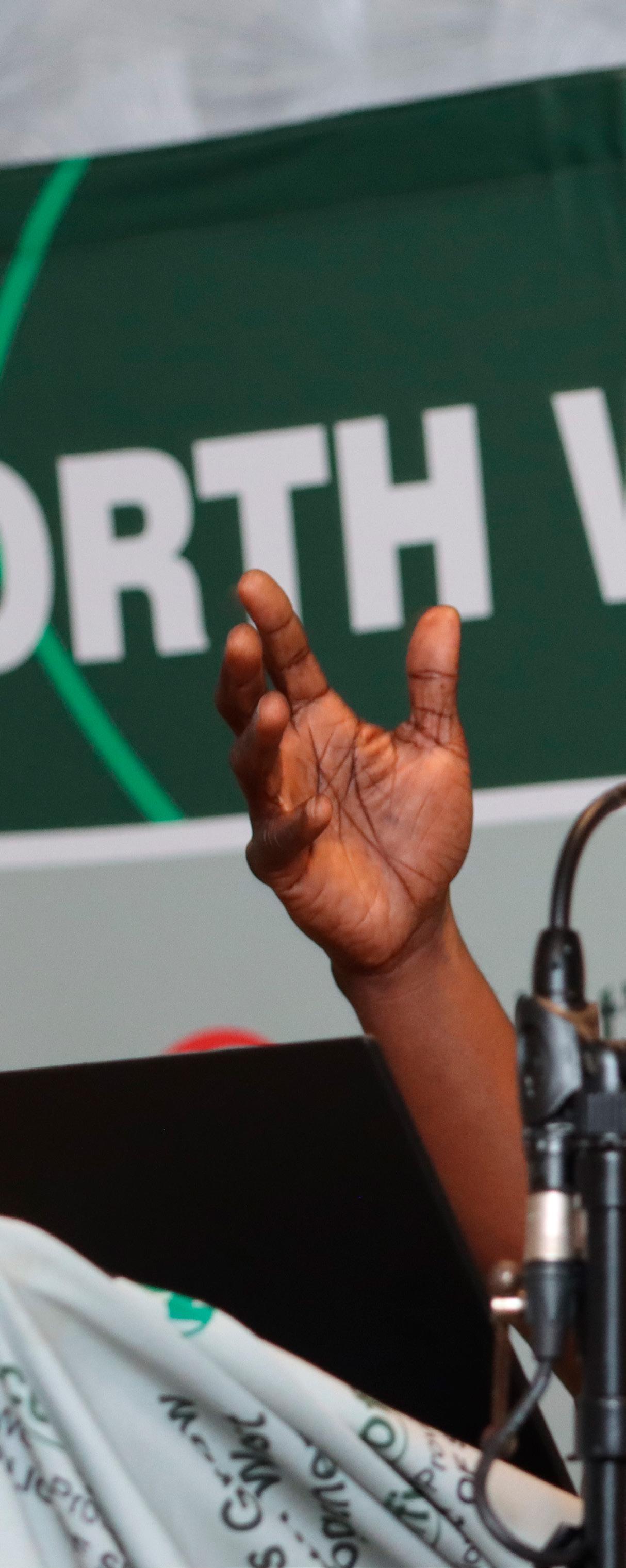
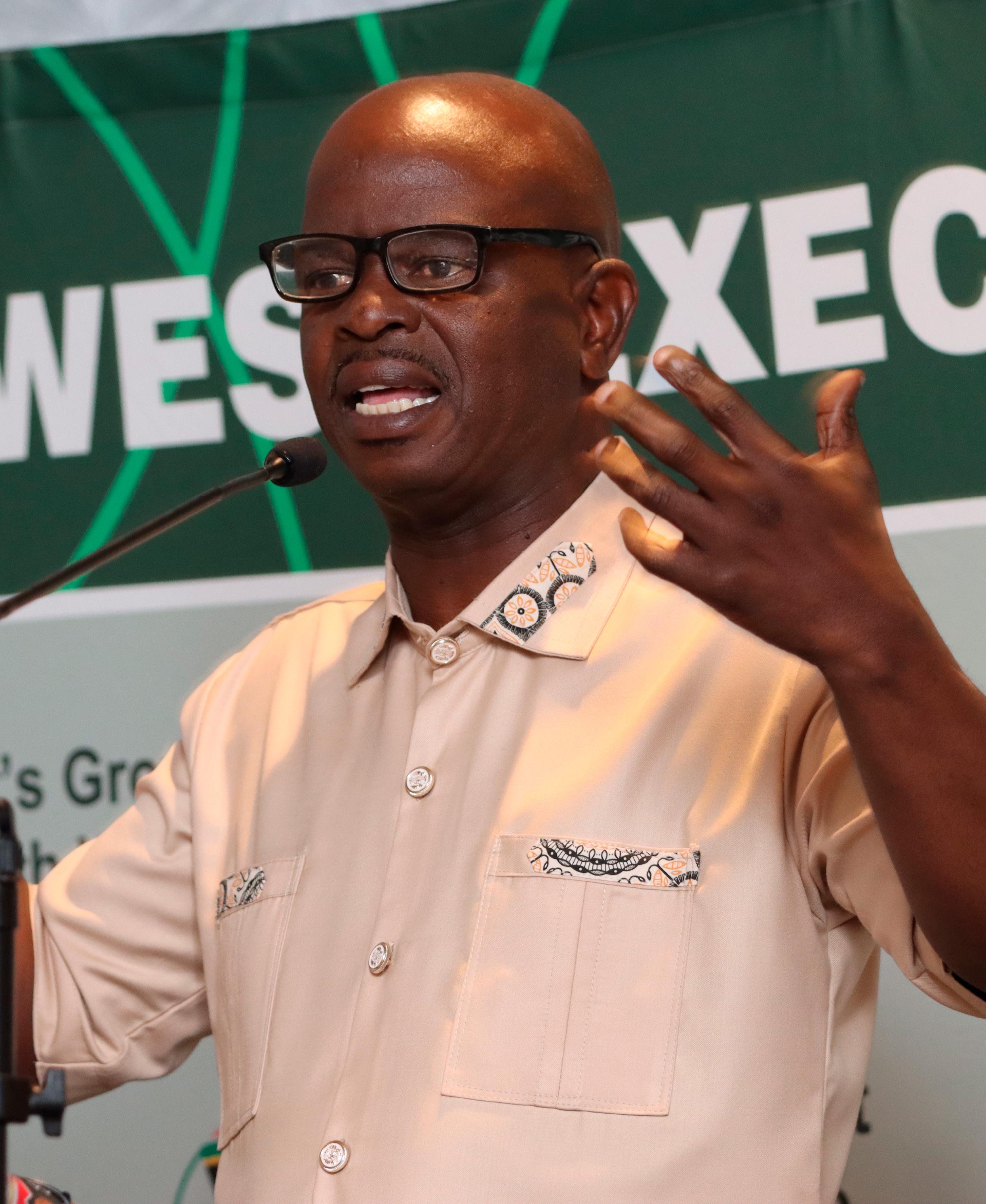
“Similar projects have been completed or are underway in municipalities such as Moretele, Kgetleng, Ramotshere Moiloa, Mahikeng, Matlosana, and Greater Taung,” Mokgosi said. In total, 29 water projects are being rolled out, demonstrating the administration’s commitment to improving basic services.
Acknowledging the province’s high unemployment rate of 51%, Premier Mokgosi emphasised that job creation remains a top priority. “The creation of 69,000 jobs in the third quarter of 2024 is a step in the right direction, but we are far from where we need to be,” he admitted.
Through the Presidential Stimulus Package, R48 million has been
allocated to support 2,400 households with commodities such as grains, vegetables, and small livestock. The provincial government has also set aside over R280 million to bolster subsistence, smallholder, and commercial farmers in their efforts to boost food production.
Premier Mokgosi also highlighted the importance of international partnerships in driving economic growth. During visits to China and South Korea, the Premier renewed economic ties with Henan Province and Gyeongsangbuk-Do Province, respectively. “These partnerships will unlock new opportunities in agriculture, tourism, and mining, which are key drivers of our provincial economy,” he said.
Closer to home, Mokgosi met with CEOs of leading Indian companies who

Our investment in water and sanitation projects, valued at over R66 million, has benefitted more than 41,000 residents across the province.

Through strategic partnerships and international collaborations, we have secured over R10 billion in investments to drive growth and tackle unemployment.
have expressed interest in investing in the province. These engagements align with the Premier’s broader investment strategy, which has already secured over R10 billion in commitments for projects in renewable energy, manufacturing, and the N14 Mixed Development.
“We also advertised over 240 funded vacant posts across all government departments, targeting vulnerable groups such as women, youth, and people with disabilities. This is about creating opportunities and giving hope to our people,” Mokgosi said.
Infrastructure development, particularly road upgrades, is another cornerstone of Mokgosi’s administration. “Our investment drive will only succeed if we prioritise infrastructure development,” he said.
Since June, the provincial government has inaugurated multiple road projects with a combined investment of over R1.1 billion. Key projects include the R50 million upgrade of Road P202 in Ramokokastad and the R108 million upgrade of Road D533, both supported by Anglo Platinum.
One of the major achievements is the completion of the R190 million second phase of the road construction project between Schweizer Reneke and Christiana in Dr Ruth Segomotsi Mompati District Municipality.
Additionally, the Maubane community in Moretele Local Municipality celebrated the handover of the newly repaired D625 road, upgraded at a cost of R47 million.
“These projects are not just about infrastructure; they are about connecting communities and creating opportunities for economic growth,” Mokgosi said.
Premier Mokgosi commended law enforcement agencies for their efforts in combating illegal mining activities in the province. Through Operation Vala Umgodi, more than 1,000 illegal miners, commonly referred to as ZamaZamas, have been arrested.
“This operation forms part of our broader Safer Festive Strategy, which also targets gender-based violence, drug offences, and other crimes affecting our communities,” he said.
In Rustenburg, a safe house donated by Anglo American was opened to provide long-term accommodation and trauma counselling for women and children affected by gender-based violence. “This is a significant step in protecting the most vulnerable members of our society,” Mokgosi said.
Recognising the challenges in scholar transport, Mokgosi said his administration is taking steps to ensure continuity of service. A panel of operators has been introduced to address gaps, and service agreements will be terminated for non-compliance.
The province is also celebrating the successful rollout of a Mother-Tongue Bilingual Education Programme. “This groundbreaking initiative allows learners to study Mathematics, Natural Science, and Technology in their home languages, which will improve understanding and performance,” Mokgosi said.
Reflecting on the first 100 days, Premier Mokgosi expressed optimism about the future. “We have laid a strong foundation, but there is still much work to be done,” he said. “Our focus remains on improving service delivery, creating jobs, and building a province that works for all its people.”
• 9 Departments: Unqualified Audits
• 2 Departments: Clean Audits
• 3 Municipalities Improved:
* Moretele: Qualified Unqualified
* Ngaka Modiri Molema: Adverse Qualified
* Kgetleng-Rivier: Disclaimer Qualified
• 29 Water Projects Rolled Out
• 41,000 Residents Benefitted
• R97 Million Invested in Bulk Sewer & Water Project
• 69,000 Jobs Created in Q3 2024
• R10 Billion in New Investments:
* Renewable Energy
* Mixed Development
* Manufacturing
• R1.1 Billion Total Road Investment
• Major Projects:
* Road P202 in Ramokokastad: R50 Million
* Road D533 Upgrade: R108 Million
• 1,000+ Zama-Zamas Arrested
• Safe House Opened in Rustenburg for GBVF Victims

By Somila Rozani, Themba Ndwene and Elsona van Huyssteen
Blouberg Local Municipality, located in the Limpopo Province, has long faced challenges in delivering essential infrastructure services. Like many municipalities, it relies heavily on government grants, with approximately 81% of its income derived from these subsidies and challenges to develop and maintain infrastructure to support sustainable service delivery. Access to services, sustainability of infrastructure assets, the diversification of the economy and livelihoods are also of critical importance for Venetia mine and De Beers, who is operating in the area.
According to Ms Musa Jack, Anglo American (AA) Project Manager, “The Municipal Capability & Partnership Programme (MCPP) was established to address the complex set of development challenges and increasing risks to service delivery as well as industry operations which are faced by mining towns and regions”.
The Programme is a collaboration between Anglo American (Anglo American Platinum, Kumba Iron Ore, De Beers) and the Department of Cooperative Governance (DCoG), and participating mines, the active involvement and co-ownership of
participating municipalities as well as South African Local Government Association (SALGA) and the Minerals Council.
The MCPP is implemented through the CSIR in eight municipalities across 3 provinces of Limpopo, North West and Northern Cape. In Limpopo Province specifically it is actively supported and guided by the Limpopo Provincial Government (CoGHSTA), in collaboration with local government capacity partners such as Municipal Infrastructure Support Agents (MISA), SALGA and Development Bank of Southern Africa (DBSA) and various sector departments.
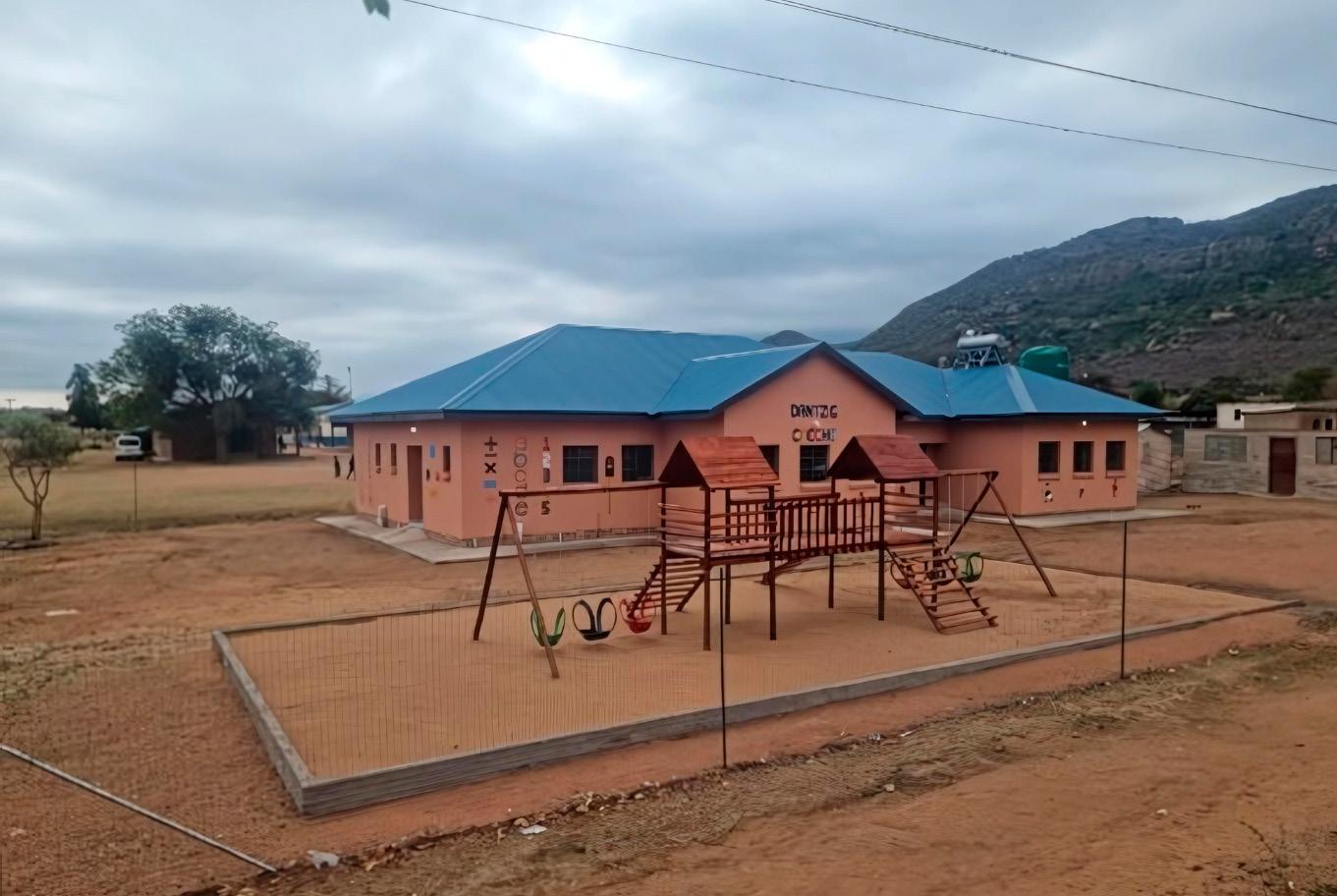
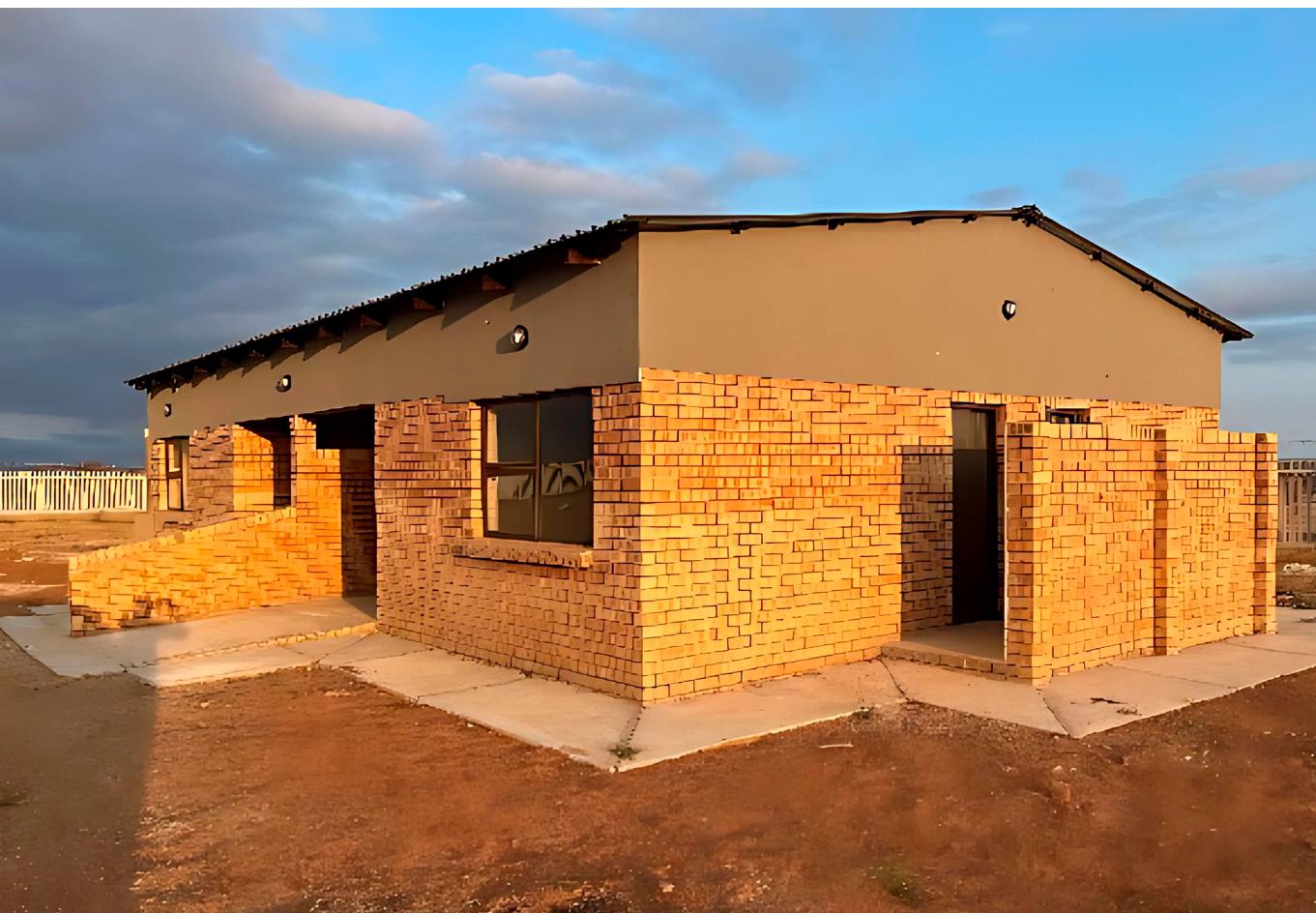
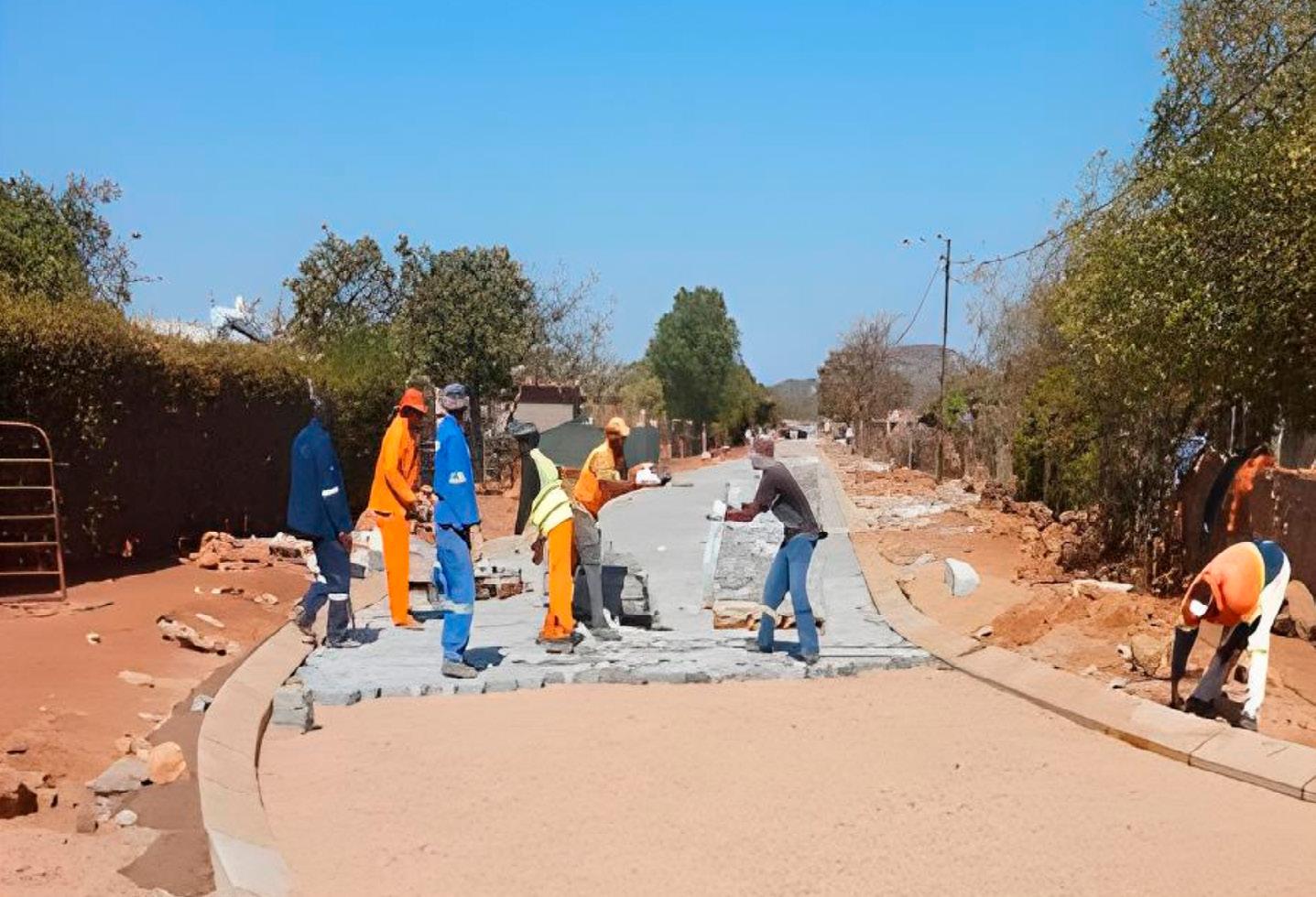
In Blouberg, the Municipality, Venetia Mine and the respective partners, agreed to prioritise their collaboration on strengthening municipal and partner capability for:
• 1) sustainable service delivery, settlement, and economic development; and
• 2) infrastructure maintenance and management.
According to Dr. Elsona van Huyssteen, Programme Lead for the CSIR Implementation Team, the value created through partner commitment in the Programme in Blouberg is evident in the notable achievements in project management, asset management, and development planning.
One of the MCPP’s most significant accomplishments in Blouberg is the results achieved by the municipality's Project Management Unit (PMU). Through active collaboration in on-site coaching and making use of technical support, the PMU team was able to introduce and institutionalise several new practices, such as effective record keeping, scheduled monthly project progress meetings, quarterly reviews chaired by the Municipal Manager, and regular site inspections. These systems have been instrumental in maintaining interdepartmental alignment, improving project delivery timelines, and ensuring that infrastructure projects meet their intended outcomes.
For the first time, the municipality has completed several projects within budget and on time. Through the dedication of the PMU team, roads and stormwater maintenance team and the experience of the MCPP implementation team, these results had a domino effect, enabling the municipality to secure additional R10m Municipal Infrastructure Grant funding and Municipal Disaster Recovery Grant for the financial year 2023/2024, which is now being used to fund future developments. >
A Roads and stormwater maintenance Manager has been selected to represent the municipality in the provincial disaster seminar to present best practices on the following topic: Construction of Mokhurumela stormwater channelerosion protection and stormwater management.
These improvements mark a significant shift for Blouberg, which previously struggled to deliver on its infrastructure goals. As reflected in Table (A), the municipality has made significant progress from when the MCPP started in Blouberg in 2021 to 2024.
The most noticeable change has been the improvement in project completion timelines, which has led to increased stakeholder confidence in the municipality’s ability to deliver. Accountability systems have been put in place to ensure transparency, with regular audits reflecting the true expenditure on projects. For the first time, the PMU can account for any discrepancies in project spending, a major improvement highlighted during the recent audit by the Auditor-General of South Africa.
Improving the PMU's effectiveness has also positively impacted asset management and development planning in Blouberg. Through the MCPP, the municipal asset, finance, technical and planning teams have been afforded the opportunity to self-assess and improve their asset management practices and introduced efficient asset tracking systems, allowing for better maintenance of municipal infrastructure. With longterm sustainability in mind, these systems ensure that infrastructure assets, such as the community’s creche and sports facilities (previous page) are wellmanaged and do not fall into disrepair.

Number of projects completed in one financial year
9 projects completed
Through the MCPP, active collaboration was forged between the Development Planning and Technical Departments, which enabled improved costing and funding proposals for service delivery and infrastructure planning for township establishment. It also enabled the alignment of Blouberg’s development strategies with actual infrastructure needs, creating a more cohesive and forward-thinking approach to planning.
One of the most notable aspects of the MCPP’s success in Blouberg has been the approach to capability development. The Programme has taken a bottom-up approach, building team functionality from within the municipality rather than relying on external consultants to do the work of the municipality.
By focusing on outcomes-based initiatives, the Programme has enabled Blouberg’s staff to take ownership of their projects and drive them independently. According to Mr Kgodiso Mashile responsible for in-service coaching, this empowerment is a critical factor in ensuring the long-term sustainability of project management improvements.
11 projects completed. The PMU team is able to complete more projects within given financial year
14 projects in progress.
Increased scope
4 already @100%
4 more than 70% completed
The MCPP focus on capability development for partners and partnering has been crucial in enabling them to start bridging gaps, which had been entrenched by perceptions, regulatory requirements, and community demands.
Collaboration in the MCPP has significantly improved project management and asset management practices, as well as strategic development planning practice, instruments and systems for Blouberg Local Municipality. These improvements have not only led to the timely completion of projects but also increased the municipality’s ability to secure additional funding and manage its assets more effectively.
As stated by Mr Stan Moremi (LED Manager, Blouberg Municipality), "These results serve as an inspiring example of how private and public sector collaboration, a committed municipal team, and an innovative approach to strengthening capability can deliver tangible results to benefit service delivery in communities”.


The South African Water Works (SAWW) is a wholly black owned South African company with a Level 2 BBBEE rating dedicated to providing quality water and sanitation services to communities.
SAWW is dedicated to exceptional service delivery and implements creative solutions to provide safe, clean, drinking water to over 500 000 people and quality sanitation services in an environmentally responsible manner through its two subsidiaries: Siza Water and Silulumanzi. These two subsidiaries are both 30-year water and sanitation concession companies established in 1999 and celebrating 25 years of excellent services to its customers. Both companies gained insights from previous international shareholders in governance, technology, risk management, and organizational culture.
SAWW has excelled in the 2023 Blue Drop Certification with 5 of their Water Treatment Systems awarded the prestigious Blue Drop by the Department of Water and Sanitation (DWS). These Blue Drop awards represent almost 20% of the Blue Drop Certified Systems in South Africa. This latest achievement reiterates both companies prior Blue and Green Drop accreditations during previous audits by DWS since 2009.


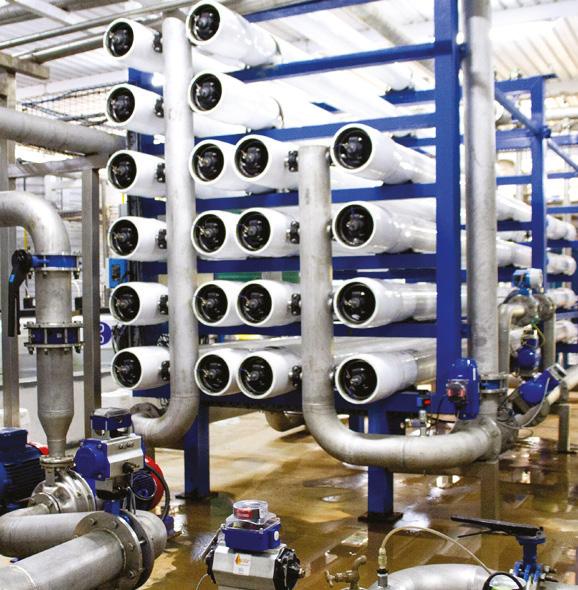


SIZA WATER (RF) (PTY) LTD : Water service provider for the Dolphin Coast in KwaZulu-Natal, South Africa. Founded in 1999 and headquartered in Ballito. Operates under a 30 Year Concession Contract with the iLembe District Municipality.
Siza Water employs trained and committed staff contributing to design, construction, operations, maintenance, billing, and debt collection.
Siza Water operates one of South Africa’s largest water recycling plants, recovering 3.5 million liters of potable water daily. This reduces reliance on bulk water supply from rivers and dams, enhancing resilience against climate change impacts. Their proactive water management and modern technologies ensure uninterrupted water supply, even during severe droughts.
The R30 million investment in the water recycling plant saved jobs, facilitated economic activity, and reinforced Siza Water’s national recognition. Now, as the Dolphin Coast expands, Siza Water continues to expand its infrastructure, playing a pivotal role in the region’s growth and stability.
Other accolades include:
South Africa’s Number One Water Service Provider – 2014 Blue Drop Audit results from DWS. Green Drop Awards Fraser’s Wastewater Treatment Works from DWS. Green Drop Awards Shakaskraal Wastewater Treatment Works from DWS. The Wilson Award of Excellence from the Water Institute of South Africa. Safety Awards – from Federated Employers Mutual Assurance Company. ISO Accreditation – Environmental, Health & Safety and Quality; and Placed 3rd Best Performing Water Supply Systems In South Africa.
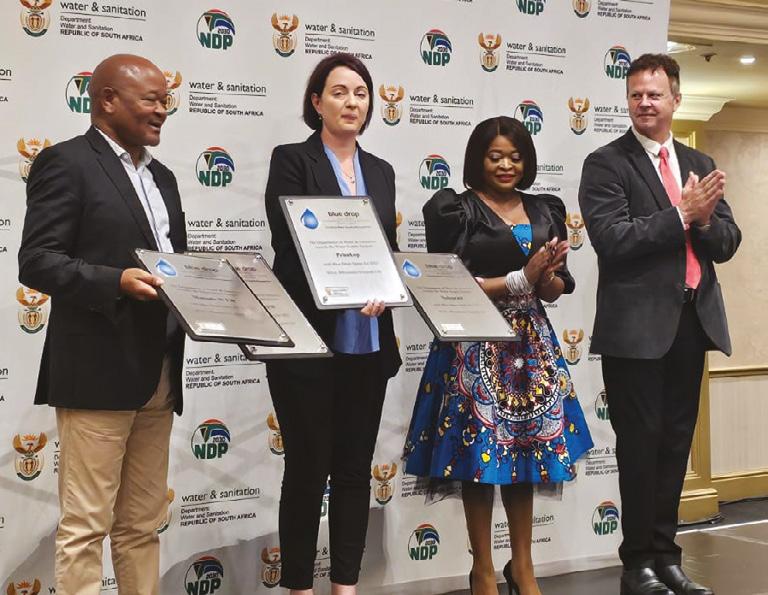
operates under a 30-year Concession Contract with the City of Mbombela starting in 1999. They provide water supply services to Mbombela City, Matsulu, KaNyamazane, and surrounding areas, with water sourced from the Crocodile River. Each town has its own water purification works, and KaNyamazane’s works are operated by a third party on behalf of the City of Mbombela Local Municipality.
Silulumanzi has consistently received Blue Drop awards from the Department of Water and Sanitation since 2009. In the 2023 assessments, the company obtained 4 Blue Drop awards for all water supply systems, making it the only service provider to achieve this within Mpumalanga Province. Silulumanzi has also consistently been awarded ISO Accreditation for Health & Safety, Environmental Management and Quality Management.
There were only 26 Blue Drops in the entire country, and South African Water Works, via its subsidiaries Siza Water and Silulumanzi, claimed 5 of these certifications, reinforcing the high standards and compliance of the holding company, SAWW.
Since 1999, Silulumanzi has invested over R1 billion in infrastructure to improve water and sanitation services in partnership with the City of Mbombela Local Municipality. Silulumanzi manages 4 water treatment plants, 71 reservoirs, 44 pump stations, and 1,288km of water pipes. They also manage 3 wastewater treatment plants, 789 km of sewer pipelines, and 56 sewage pump stations.
Silulumanzi maintains constant investment in the renewal and upgrading of existing infrastructure and has robust maintenance plan to ensure infrastructure is reliable and in good condition.
Silulumanzi invests in infrastructure renewal and maintenance for reliability. They also support local youth education through a Bursary Fund, helping high school graduates pursue careers in various fields including engineering and information technology.
Siza Water and Silulumanzi are committed to gender equality and empowering women by integrating them at all levels and prioritizing meaningful engagement. They are dedicated to fostering an inclusive environment that amplifies women’s voices and leadership, ensuring equal opportunities. Women at SAWW hold positions in all departments. Electricians, Plumbers, Process Controllers, Mechanical Fitters, Engineers, Accountants and various positions at all levels of both organisations.
“South African Water Works (SAWW) is a leading provider of bulk water and wastewater services, consistently delivering exceptional solutions since 1999. With a focus on sustainable development and social responsibility, SAWW embraces cutting-edge technology for efficient service delivery and continuous innovation.” SAWW invites all stakeholders to join in nurturing the next generation of leaders and innovators for a brighter future for South Africans.
www.saww.co.za
THE CSIR EDT4IR RESEARCH
CENTRE – A DIGITAL
TRANSFORMATION CATALYST

“Empowering Enterprises, Government, and Society through Cutting-Edge Emerging Technologies”
By Professor Adnan Abu Mahfouz

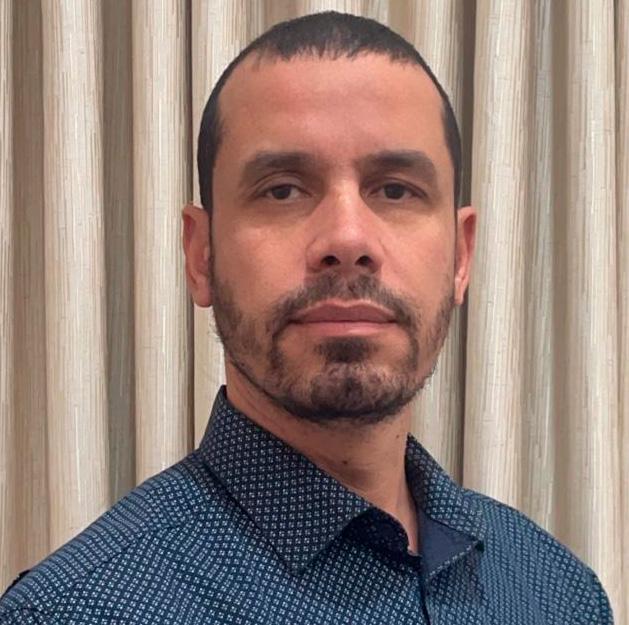
Prof. Abu-Mahfouz is a distinguished researcher and academic in computer engineering. He holds a PhD and MEng from the University of Pretoria, South Africa. Currently, he is a Chief Researcher and the Centre Manager at the CSIR's Emerging Digital Technologies for the fourth Indusrial Revolution (EDT4IR) and holds multiple professorial positions; he is an Extraordinary Professor at the University of Pretoria, a Professor Extraordinaire at Tshwane University of Technology, and a Visiting Professor at the University of Johannesburg. He is a Section Editor-in-Chief for the Journal of Sensor and Actuator Networks, an Associate Editor for IEEE Access, IEEE Internet of Things, and IEEE Transactions on Industrial Informatics.
Prof. Abu-Mahfouz excels in industrial-based R&D, particularly in the Internet of Things, lowpower wide-area networks, cognitive radio, and software-defined wireless sensor networks and smart systems. Prof. Abu-Mahfouz possesses exceptional research skills that have significantly advanced his field. He has a proven track record in developing and implementing robust research and development projects, particularly in emerging digital technologies Prof. Abu-Mahfouz’s research skills are evidenced by his extensive publication record, where he published over than 290 peerreviewed papers. His work is highly regarded, reflected in his H-index of 50 on Google Scholar and 39 on Scopus. Additionally, he has successfully supervised and mentored numerous postgraduate and postdoctoral researchers, further underscoring his leadership and mentorship in the research community.
Contact : Professor Adnan Abu Mahfouz
Email: AAbuMahfouz@csir.co.za
https://www.csir.co.za/emerging-digitaltechnologies-4ir-research-centre
The Emerging Digital Technologies for the Fourth Industrial Revolution (EDT4IR) Research Centre is a transformative force within the CSIR, set on propelling South Africa towards becoming a global leader in the 4IR and beyond.
Designed to foster digital innovation, the centre derisks industry investment in 4IR technologies, offering a critical solution to the gap in local enterprise competitiveness operating in the global digital economy. By bridging this divide, the EDT4IR Centre supports businesses, government, and institutions in harnessing disruptive technologies to stay relevant and competitive.
"By fostering an ecosystem of digital innovation, the EDT4IR Centre is not only driving South Africa's digital future but also ensuring that the country emerges as a leader in the 4IR space."
In this period of rapid digital disruption, South African enterprises face an urgent need to innovate. However, navigating the 4IR landscape can be risky, complex, and costly. The EDT4IR Centre serves as a critical buffer, providing research-driven insights and technologies that ease this transition. It focuses on emerging digital technologies such as artificial intelligence (AI), extended reality (XR), the advanced internet of things (A-IoT), and distributed ledger technologies (DLT)/blockchain, which are pivotal to driving innovation across industries. These technologies create a foundation for enterprises and government institutions to move away from legacy systems and adopt forward-thinking digital platforms that improve efficiency, transparency, and competitiveness. >
By aligning its objectives with the National Development Plan's goals to foster a capable state, economic growth, and social infrastructure development, the centre positions itself as a key player in modernising both public and private sectors. It knits together crossdisciplinary expertise to meet the specific technological needs of local industries while supporting South Africa's broader digital transformation.
The EDT4IR Centre boasts a highly skilled team of researchers and technologists specialising in AI, XR, A-IoT, and DLT/ blockchain technologies. This talent pool, combined with advanced research facilities, allows for the development of demonstration platforms that showcase real-world applications of transformative technologies. These platforms are designed to be scalable and adaptable, enabling industries to integrate novel solutions seamlessly.
From AI-driven decision-making tools to advanced IoT systems that connect smart devices across industries, the centre’s research capabilities are unparalleled. The expertise in DLT is applied to create innovative, localised financial technologies. With XR expertise, we excel at conceptualising, designing, and prototyping XR solutions that deliver unparalleled industry impact and scalability.
The EDT4IR Centre is not just about short-term technological wins; it is about building a sustainable digital future for South Africa. Its long-term goal is to drive 4IR transformation across the African continent, positioning South African enterprises as global players in the digital economy. By enabling digital platforms, the centre contributes to the reindustrialisation of South Africa, transforming industries and creating new markets for local enterprises. The centre can host 4IR solutions in a local cloud or on-premises to assist clients, thus providing a service in addition to technology development – a one-stop

shop for business solutions combining bespoke technology with acquired technology to create an operational system or service.
EDT4IR’s milestones include the successful development of AI-based tools that are already enhancing decisionmaking processes across industries and the integration of IoT in industrial and business process automation to improve operational efficiency and situational intelligence. Blockchain transactional intelligence software is developed to detect illicit financial activity. Moreover, the centre has established partnerships with local and international institutions to foster collaborative research and innovation, ensuring that South African solutions meet global standards.
The centre's mission aligns with international frameworks such as the African Union's Agenda 2063 and the United Nations' Sustainable Development Goals. These models emphasise the need for inclusive growth through digital transformation, and the EDT4IR Centre is positioned to be a critical enabler of this vision. By fostering innovation in sectors like finance, healthcare, education, and smart infrastructure, the centre aligns its research outputs with the continent's broader socio-economic goals.
To add value to this, the centre’s approach to 4IR technologies is grounded in global
best practices, with a focus on ethical AI, data privacy, and digital security, ensuring that technological adoption is both responsible and impactful.
What sets the EDT4IR Centre apart is its neutrality and independence. Unlike many research institutions or commercial entities tied to specific technology vendors or paradigms, the centre operates without bias, allowing it to recommend best-of-breed technologies that truly meet the needs of the client. This flexibility ensures that the solutions provided are not just technically superior but are also the most suited for the South African local context, making the centre a trusted advisor to both industry and government.
As the world accelerates into the 4IR era, the EDT4IR Centre stands at the forefront of this transformation. It is positioned as a ‘shape-shifter’ for industries looking to innovate and government institutions seeking efficiency and transparency. By fostering an ecosystem of digital innovation, the centre is not only driving South Africa's digital future but also ensuring that the country emerges as a leader in the 4IR space.
In a nutshell, the EDT4IR Centre remains dedicated to pushing the boundaries of what is possible, continuously adapting and innovating to meet the challenges and opportunities of the digital age.

WOMEN’S RIGHTS, SECURING JUSTICE, AND TRANSFORMING LIVES

Together, We Can End Gender-Based Violence, Femicide and the HIV Epidemic
Every day, South African women and girls face the dual challenges of gender-based violence and the ongoing HIV epidemic - realities that shatter lives and futures. At Masimanyane Women’s Rights International, we bear witness to their pain, courage, and resilience. These are not just statistics; they are mothers, daughters, sisters, and friends - each with a story that matters.
This is a crisis that demands more than awareness; it demands action. Violence against women robs families of safety, communities of stability, and our nation of its soul. The intersections with HIV, poverty and lack of access to municipal services exacerbates the vulnerability of women and girls, leaving them trapped in cycles of fear and illness. If we fail to act now, we perpetuate a legacy of injustice and inequality.
At Masimanyane Women’s Rights International, we stand at the forefront of change. From human rights education to advocating for survivor-centred policies, we work to build safer, healthier communities where women and girls can thrive.
This 16 Days of Activism, we call on municipal and national leaders to prioritise gender justice, access to healthcare, and prevention strategies that address the root causes of violence and inequality. Join us in creating a future where women are empowered to live free from violence and HIV. Together, we can build a South Africa that is safe, equitable, and inclusive for all.
To learn more, visit www.masimanyane.org or call us on 043 743 9169.






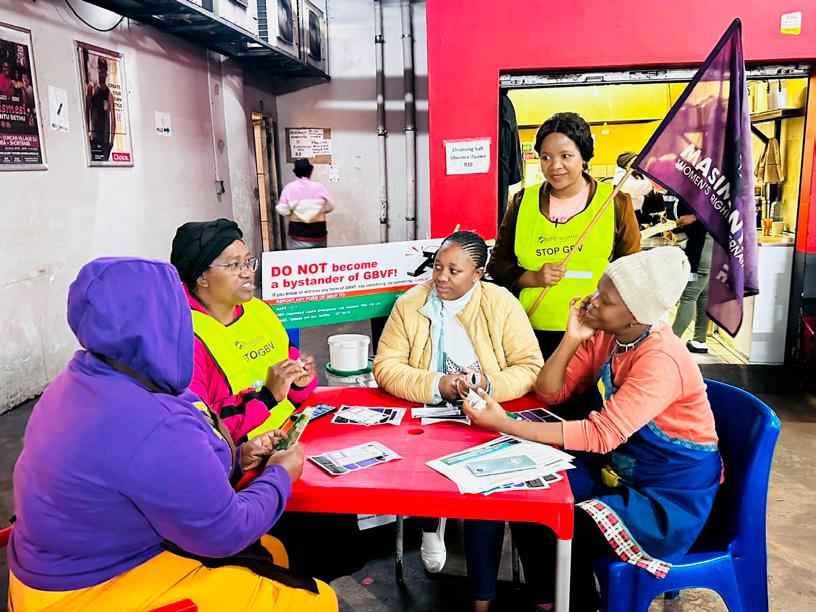
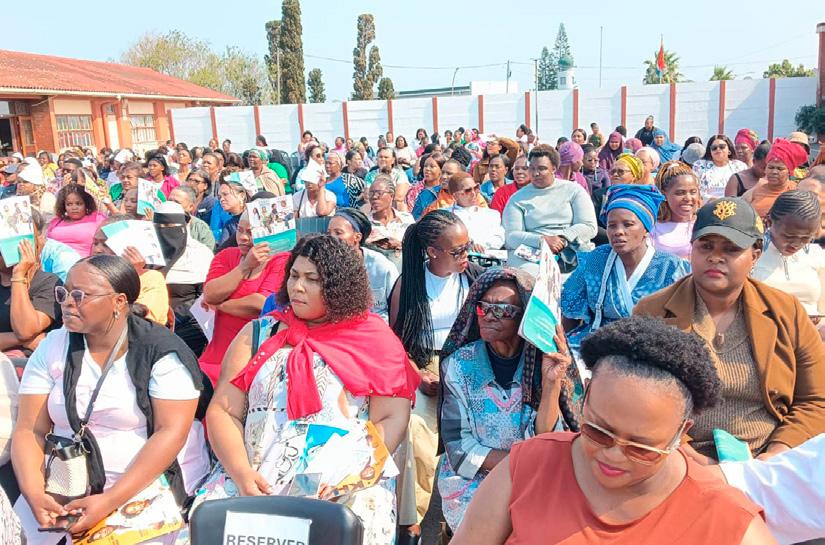
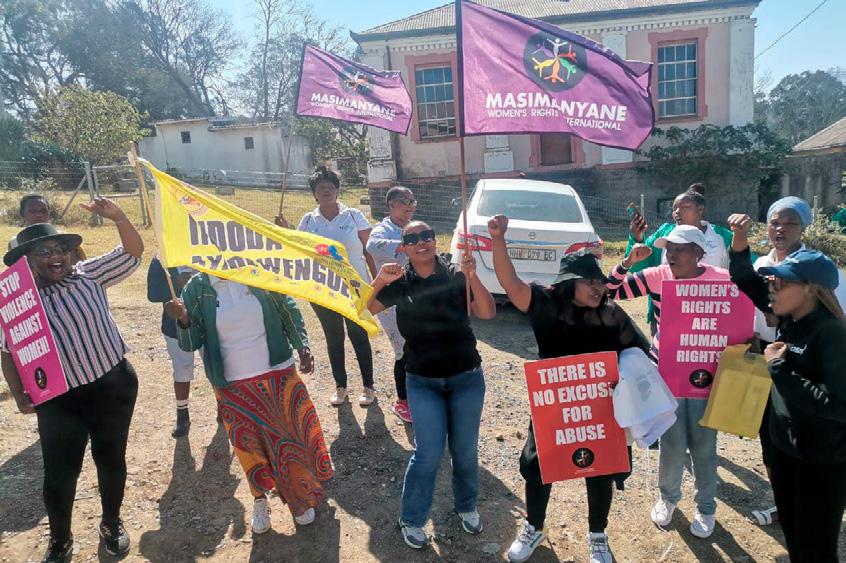

In an insightful discussion with Municipal Focus, General Secretary of SANCO, Mike Soko, delves into SANCO’s steadfast commitment to mining communities. Rooted in a history of advocacy against oppression, SANCO has tirelessly championed the rights of vulnerable communities, tackling issues from mineral beneficiation and local employment to the challenges posed by illegal mining.
This feature explores SANCO's role in bridging gaps between mining companies, government, and communities, highlighting milestones that reflect SANCO’s mission of fostering inclusive, equitable communities. Discover how SANCO's activism continues to shape lives in South Africa’s mining regions…
What led SANCO to focus efforts on supporting mining communities, and how does this align with SANCO’s broader objectives?
SANCO is a community-based and centred organisation that was built in the times of the most severe repression and oppression of South African communities. Civic leaders are known for their bravery and courage for standing up for the rights of community residents throughout the history of South Africa, therefore when SANCO was formally launched in 1992, it would come as no surprise to any that the issues and challenges of mining communities would also preoccupy SANCO.
It became the mission of SANCO to build an independent, democratic, mass-based and effective organisation, through amongst others, mobilizing, recruiting, organising and conscientising the people of South Africa with special regard to the needs of communities, women, youth, people with disabilities and the historically oppressed.
SANCO’s sixth administration has revitalized and refreshed its structures, creating a magnet for community activists dedicated to tackling South Africa’s challenges.
Could you elaborate on specific challenges mining communities face that SANCO has worked to address?
Mining communities have challenges accessing programmes of mineral beneficiation, employment opportunities, business opportunities, environmental
rehabilitation, and residential transformation. In particular social, political and economic problems caused by illegal mining, the so-called Zama Zamas, who are in the main foreign nationals. They tend to exhibit very little loyalty towards the area and its wellbeing.
How does SANCO identify these needs, and what strategies have been most effective in responding to them?
Mining communities, like the overwhelming majority of South African communities, organise themselves within the tradition of the civic movement with local community-based branches. Civics are synonymous with SANCO, and therefore in mining communities
there are local SANCO structures who have identified these needs through engagement with the mining industry, especially local mine management, so as to establish formally recognised stakeholder engagement forums. These forums have the inherent ability to get local mining companies to commit to dealing with the challenges.
The comparative advantage SANCO has is that it has a network and capacity at national level, and therefore it can make a local matter receive national attention. Thus, we are also raising the issues of mining communities with government, as well as in corporatist institutions like Parliament, the National Economic Development and Labour Council (NEDLAC). And as an organisation that is independent, we place public pressure on all authorities. For instance, >
Limited community access to programmes that ensure locals benefit from mineral wealth.
Difficulty in securing jobs and contracts for local businesses, often bypassed in favour of external parties.
Insufficient efforts by mining companies to restore mined land, impacting community health and sustainability.
The presence of unregulated miners, primarily foreign nationals, who contribute to local insecurity and operate without accountability.
A persistent lack of adequate housing, sanitation, and social services in mining areas, despite their economic contributions.
we are marching to the Union Buildings on December 12th to demand that the President of the country deal with the challenges that communities are experiencing, among these demands are the issues of mining communities.
Can you share some key initiatives SANCO has introduced that have directly benefited mining communities? Are there any particular success stories or milestones that stand out as transformative for these areas?
In Komati mine, before its closure, SANCO on behalf of the local community sat down with African Rainbow Minerals. ARM is owned by Patrice Motsepe. We agreed on preference given to the nearby mining community and business opportunities. The majority of local people received good jobs, and the local SMMEs were awarded business contracts. The relations between the mine and community was one of harmony and mutual benefit, which had a direct positive impact on the local economic growth and development. Such that, when it became clear that the mine would have to close, we had an agreement that the responsibility for the maintenance of the area and its environmental rehabilitation would remain the responsibility of the owner. Today, the mine owner continues to maintain the area, and the local communities benefit in the maintenance programme.
Similar programmes like that at Komati mine with business and employment opportunities for local communities have been replicated in other areas like in Barberton. We are advocating for it to be a national programme that becomes the template for mines and mining communities.
It must be realized that for there to be a relationship of respect and mutual benefit between communities and mining ownership and management, it is always preceded by the communities publicly challenging the behaviour and practices of the mines. This includes marches and protests against the mines. Then only can we have productive and positive discussions that result in realizable programmes. Engagement is not the natural order of things but a product of community struggles.
We stand firm in our mission: communities deserve more than just being labour reserves; they deserve peaceful lives and sustainable local economies.
How does SANCO work with local government and mining companies to ensure that community needs are represented and met? Has there been any recent progress in securing better living conditions, infrastructure, or social services for these communities?
In Delmas, similar to Komati and Barberton, we established a forum between SANCO and the various mines’ management in the area. SANCO demanded a meeting with all mine managers. In this meeting, we were forthright that the mine cannot continue to operate in a way that the local community does not directly benefit. We were confronted with the usual obfuscation and refusal to take responsibility. SANCO’s ability to stubbornly put the needs of communities above all else, resulted in all the mines taking responsibility for the jobs’ programmes, business opportunities and assisting in mining communities being

areas that are not labour reserves but where communities live peaceful lives and can raise a family.
Obviously none of these are perfect outcomes, but we have to be vigilant and constantly struggle to ensure that communities receive their fair benefit and are not left in the lurch when the mine is not as profitable.
Currently, a challenge is that of the unregulated illegal miners – the so-called Zama Zamas. Communities and political society have come under fire if they raise any matter that can sound like it is anti-foreigner or xenophobic. SANCO

makes no apology for representing communities. Zama Zamas are generally foreigners, and they are in a survival mode. They exhibit no commitment to local communities, and are there to get what they can, regardless of the cost. They have no formal structure and operate in the shadows. Communities live under peril when Zama Zamas operate in their area. SANCO refuses to accept this status quo. We are calling both government, local mines, as well as the Chamber of Mines to take responsibility for the securing of their mines, both operational and those that have been mothballed. It is a matter that we shall not drop in a hurry.
In your view, what stands out as the key achievement of SANCO’s sixth administration so far, and what would you say has been the effect of this revitalization on SANCO’s role within communities?
The primary achievement of this 6th administration of SANCO, is that it has effectively revitalized and refreshed SANCO structures. Everywhere you
go you will find people and other organisations remarking about the positive energy and vigour that SANCO structures possess. They have become a magnet for community activists who believe in South Africa and finding solutions for our challenges.
SANCO structures are united and are not easily deflected from their historical mandate to represent communities and place their needs above all else. There is a wall-to-wall and unshakeable inherent belief in SANCO programmes and its historical mandate to create communities that are non-racial, nonsexist, united and equal.
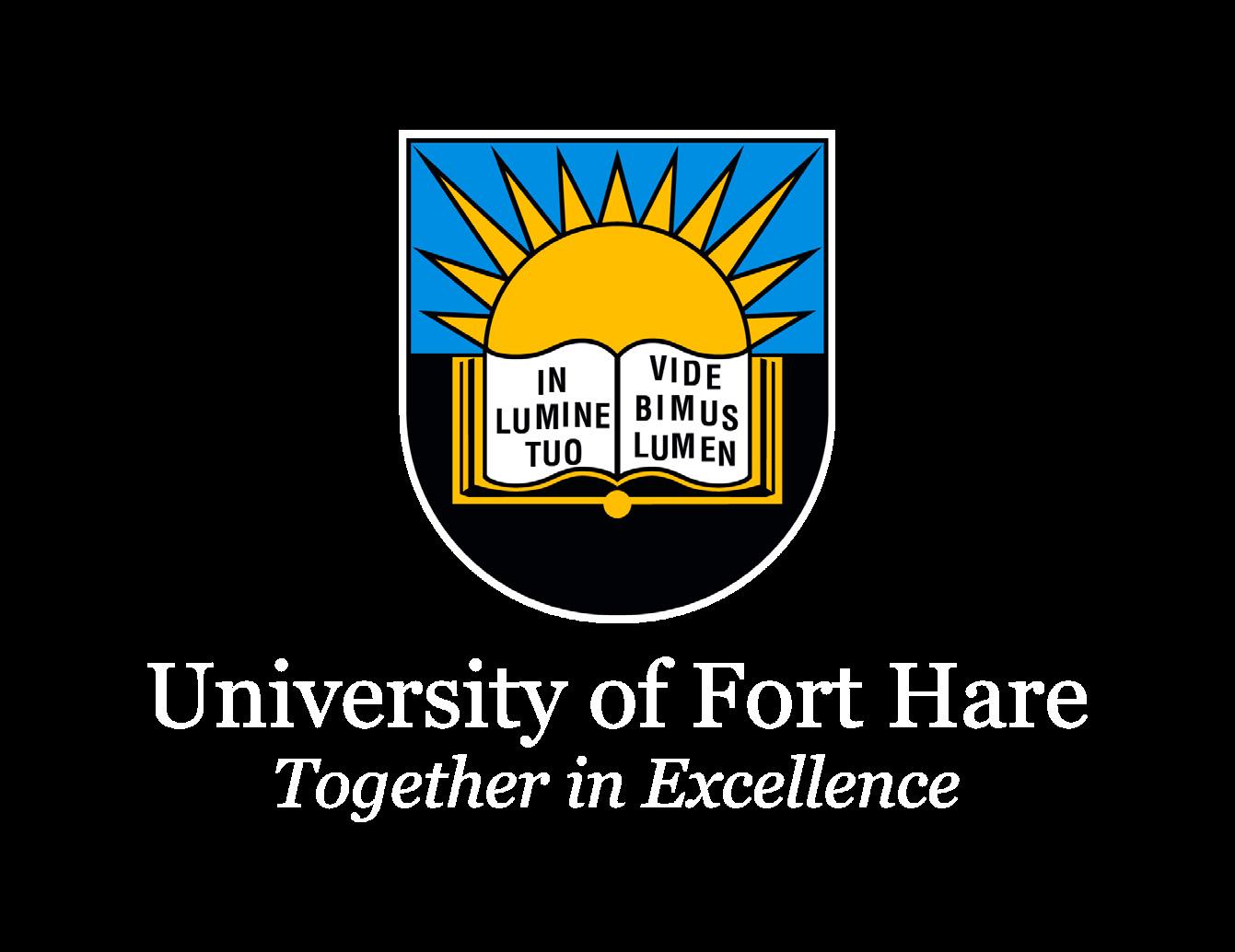

Dr. Nthabiseng TaoleMjimba is the Deputy ViceChancellor of Research, Partnerships, and Innovation at Fort Hare University. Her role involves advancing the university's research profile, fostering partnerships, and driving innovative projects, such as the collaboration with Amadlelo Agri on the Fort Hare Dairy Trust. This position underscores her focus on leveraging research and partnerships to support community development and sectorspecific advancements like those in agriculture and dairy science.
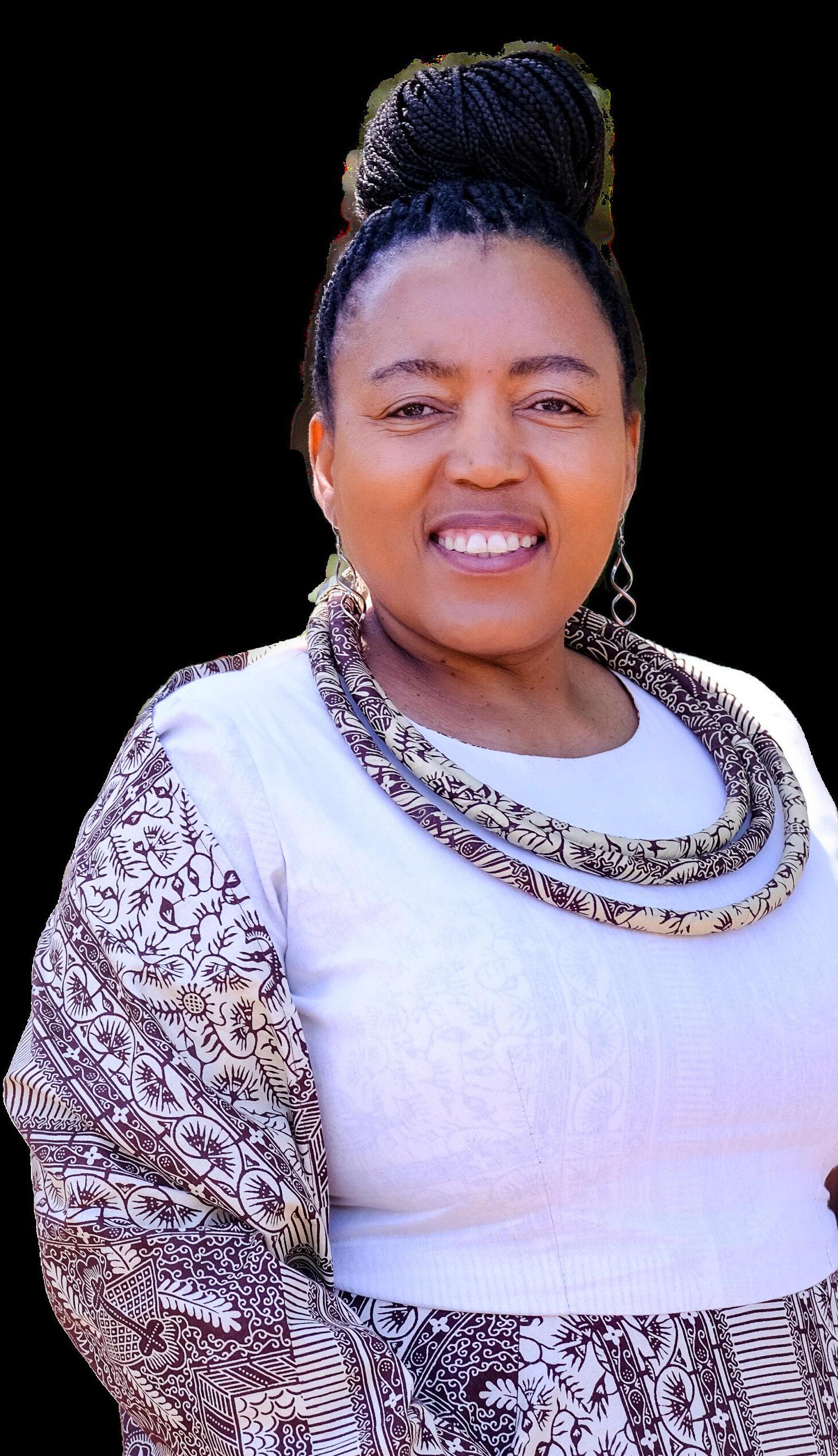


In our interview with Dr Nthabiseng Taole-Mjimba, the Deputy Vice-Chancellor shared insights into the university’s innovative partnership with Amadlelo Agri which has proven to be a powerful catalyst for the advancement of the dairy sector in the Eastern Cape. Dr. Taole-Mjimba discusses the partnership's impact on education, community development, and sustainable dairy practices, highlighting new educational programs and research initiatives aimed at bridging skill gaps and supporting local farmers. In this interview, Dr. Taole-Mjimba sheds light on the inspiring goals, challenges, and successes of this collaboration. >
How did the partnership between the University of Fort Hare and Amadlelo Agri come about, and what are the core objectives of this collaboration in advancing the dairy sector?
University of Fort Hare (UFH) is Amadlelo’s long-standing partner. The company (Amadlelo) was formed in 2004, and its first operational project was the Fort Hare Dairy Trust two years later, in partnership with UFH. This has led to a 420-hectare working dairy farm that produces millions of litres of milk each year. Amadlelo Agri and UFH are working together to benefit local communities and the broader dairy industry. The project’s main objectives are to advance knowledge generation as well as human capital development. The focus on dairy technology, not just science, is another way to make a significant impact.
The partnership’s main objectives are to advance knowledge generation as well as human capital development. The focus on dairy technology, not just science, is another way to make a significant impact.
Can you elaborate on the significance of the upcoming bachelor’s degree in Dairy Science and Technology, and how it will address the skills gap in the Eastern Cape's dairy industry?
This course is especially important because the province is the largest and arguably the best producer of milk in the country. However, it does very little of the country’s milk processing. So, producing skilled staff in this field will speak to a significant need and opportunity. Producing skilled staff in this field will help to develop the Eastern Cape’s already significant dairy industry.
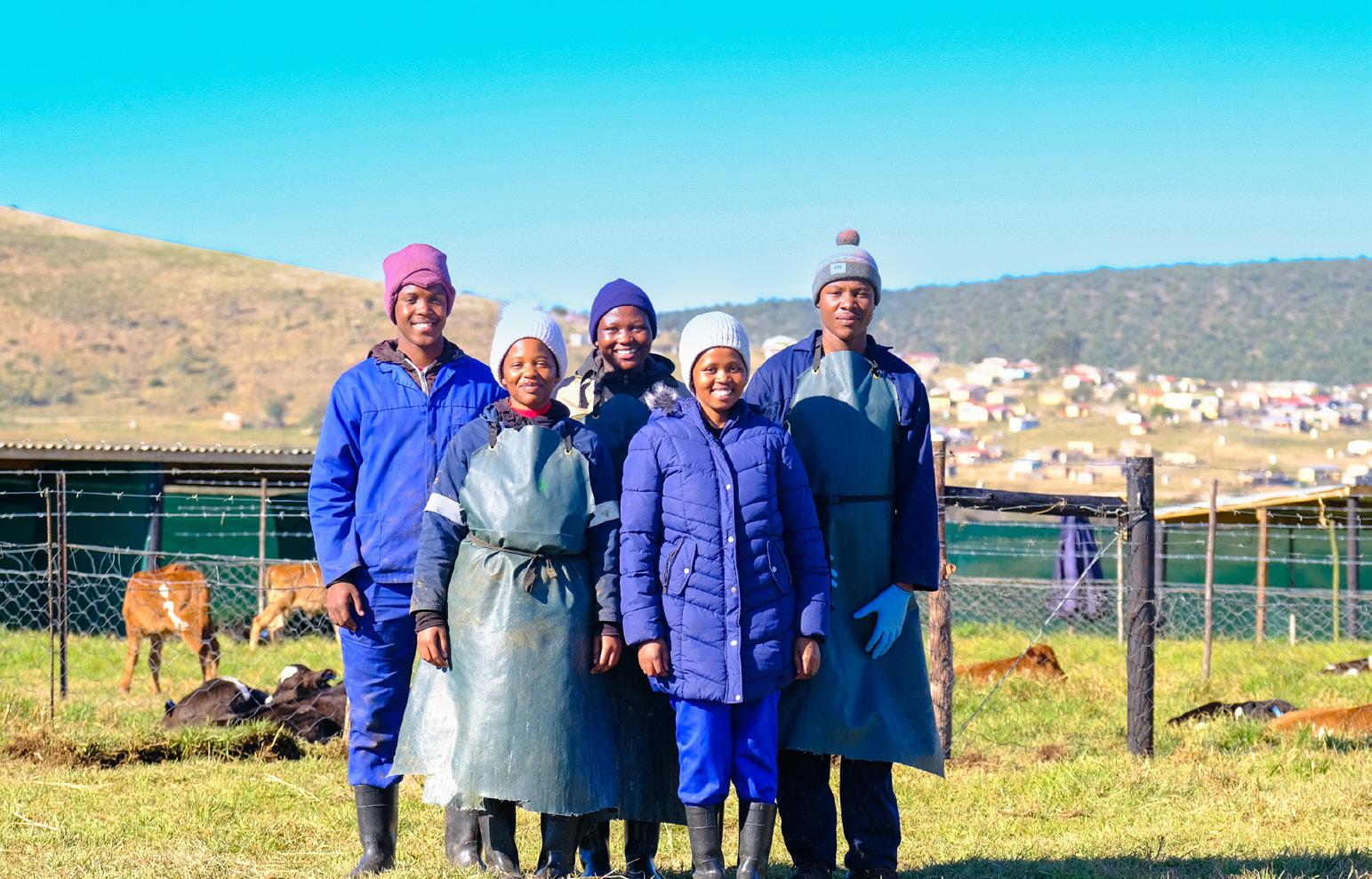
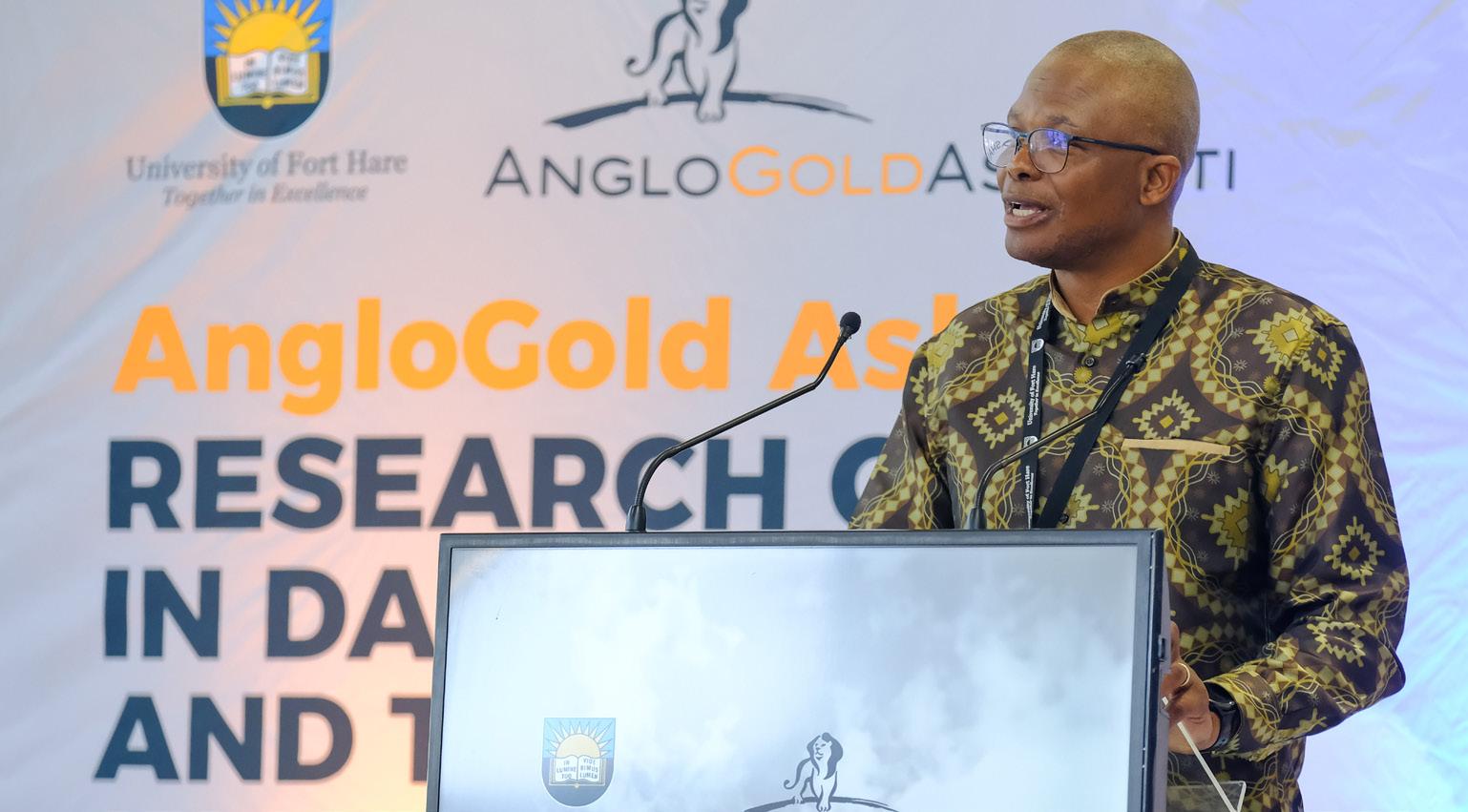
What specific elements of the curriculum for the Dairy Science program have been designed to ensure that students are wellprepared to meet the needs of the local dairy industry?
The planned BSc is a four-year degree that allows direct access to a master’s afterwards. The course content will build on the dairy science and technology elements already present in other programmes at UFH. It will also touch on food technology aspects to speak to the need for milk processing. The BSc programme is also being developed to consider relevant and developing issues,
such as food security. In the fourth year, there is also a research component, which will grow that capability in the department. This research will likely stem organically from the work with the local dairy farm, and possibly feed back into its work.
How does the Fort Hare Dairy Farm enhance students' learning experience, and what practical skills do they gain through their involvement in daily operations?
The Fort Hare Dairy Farm offers an integral role in animal science and
agricultural education at Fort Hare by offering invaluable hands-on experience to students from the Faculty of Science & Agriculture. The key driver of the students’ practical training on the farm is the UFH Agriculture Skills Development Club, established in 2017 by former students of the Faculty of Science & Agriculture. The club aims to bridge the gap between theoretical knowledge and practical application by partnering with key agricultural projects like the Fort Hare Dairy Trust. This initiative allows students to gain hands-on experience in areas such as milking, feeding, pasture management, and farm maintenance.
The Fort Hare Dairy Farm offers an integral role in animal science and agricultural education at Fort Hare by offering invaluable hands-on experience to students from the Faculty of Science & Agriculture.
“The vision for setting up this dairy was about advancing research knowledge and using it as a demonstration or experiential farm, while at the same time ensuring that it is commercially viable, so it has to be a profitable business.”
The partnership is a great opportunity to bring Amadlelo’s practical business knowledge of operating a dairy together with the university’s academic strength. By bridging the gap between research and practical operation, both benefits.
In what ways do you envision the collaboration with Amadlelo Agri positively impacting local communities, particularly in relation to job creation and economic development in the dairy sector?
The collaboration looks to share its knowledge and expertise with those farmers looking to build prosperous agribusinesses and acquire resources. Its aim is to make key transformative strides in the agriculture industry. The vision for this collaboration is aligned with the heart of Amadlelo’s mission as a majority black-owned company that works to provide support services to upcoming black farmers.
Could you discuss the role of the AngloGold Ashanti Research Chair in Dairy Science and Technology and its importance for driving research and innovation in the field?
The University of Fort Hare’s recent launch of the AngloGold Ashanti Research Chair
in Dairy Science & Technology signifies a big step towards improved research and support for the dairy industry, not only for the university but the dairy industry at large. The AngloGold Ashanti Research Chair in Dairy Science & Technology is a way to solve practical problems through innovative research.
Key performance areas will include:
• Knowledge generation in dairy science & technology.
• Human capital development in the field.
• Skills transfer to the Eastern Cape dairy farming community.
• Strategic partnerships with similar organizations globally.
What are some of the key challenges facing the dairy industry in the Eastern Cape, and how is the university working with Amadlelo Agri to overcome these obstacles?
Both UFH and Amadlelo believe that technology and scientific research will be key to overcoming some of the challenges that traditional farmers face. This is the kind of research the university focuses on and partners with Amadlelo in. Now it will be taken a step further. The research will be driven by the university and is not only confined to the dairy industry. The findings will expand >
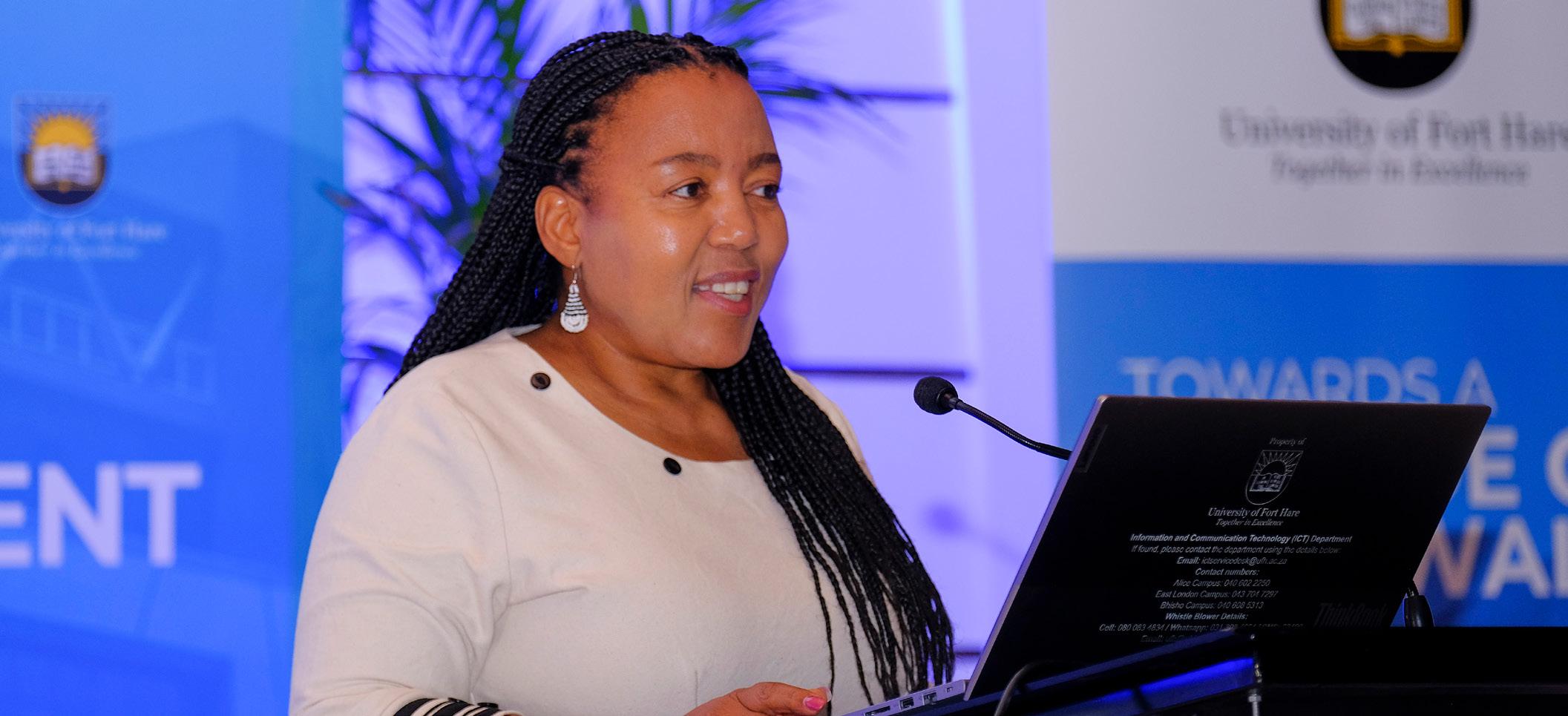

The vision for this collaboration is aligned with the heart of Amadlelo’s mission as a majority blackowned company that works to provide support services to upcoming black farmers.
beyond local communities and seek to influence the research agenda in the Eastern Cape and nationally. But this work requires a lot of support and innovative approaches.
Are there plans to establish a Faculty of Veterinary Sciences at Fort Hare, and how would this align with the university’s broader mission to enhance agricultural education and industry standards?
A key part of the plan is to eventually establish a new faculty of veterinary science, which would be only the second one in the country. Concept documents already submitted to DHET, this would have a particular focus on the need for livestock veterinarians in the country. “In the Eastern Cape, when companies or
farms require veterinary services, they actually fly in vets.”
Looking ahead, what are the long-term goals for the University of Fort Hare and Amadlelo Agri in terms of transforming the dairy sector and ensuring sustainability?
The long-term vision embraces the idea that the university could be key in growing the dairy industry in terms of processing, not just farming, and for both small-scale and large-scale farming. “The main goal is for the university to stimulate the sector in the province to then take the lead in providing the education, training, and research infrastructure and the support and all the other things that are needed to establish the processing component of it.”
Can you share any success stories or milestones achieved through this partnership that demonstrate the impact of your joint efforts on the dairy industry and the community?
The partnership between the university and Amadlelo Agri, the Fort Hare Dairy Trust, exemplifies how strategic
collaborations can drive excellence in the fields of science and agriculture. This partnership has significantly advanced dairy farming practices for the students who volunteer in the daily activities on the farm to further hone their skills for the future.
With over 800 dairy cows and an estimated annual production of 4.3 million litres of raw milk, the farm’s success was recently highlighted when it was named the overall winner at the Amadlelo 5th Annual Awards. The farm secured top spots in categories such as “Most Grass Eaten per Hectare,” “Least Nitrogen per Hectare,” “Best Fertility Figures,” “Lowest Cost Producer,” “Highest Profit per Hectare,” and “Most Improved Farm.”
The collaboration between the University of Fort Hare and Amadlelo Agri is definitely paving the way for a sustainable future in the dairy industry! This partnership not only enhances educational opportunities for students, but also drives local economic development and skill-building in the Eastern Cape, marking a meaningful step forward for the region's dairy sector.

Xylem is a global water technology provider helping our customers solve the world’s toughest water challenges across utility, industrial, commercial, and residential markets worldwide.
Over the last 100+ years, our unique combination of innovative products and services, proven expertise, and unmatched customer support have been helping to create a more watersecure and resilient world.
Across the water cycle, our innovative solutions use less energy, reduce operating expenses, and support sustainability efforts. By working together, we can ensure water is accessible, affordable, and safe for all.

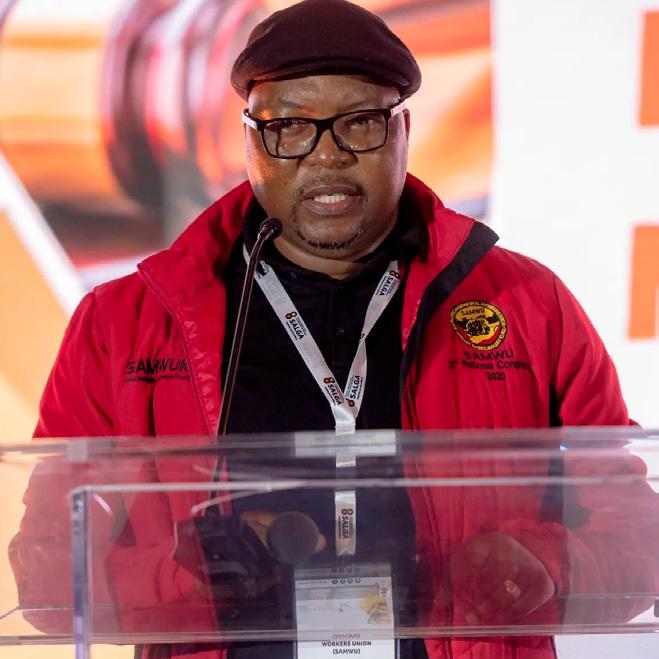
SBy Nelson Mokgotho
outh African municipalities are at the forefront of public service, tasked with delivering crucial water, sanitation, electricity, and waste management services to millions. However, as the issues confronting these municipalities have intensified, their ability to meet these demands has diminished. Systemic inefficiencies, widespread corruption, and financial mismanagement have become the trademarks of a system struggling to serve its citizens. To fulfil the promise of local governance, municipalities must undergo significant transformation –and for this change to be successful, it requires steadfast dedication from all levels of government and society.
Municipalities nationwide face a severe financial crisis: most cannot generate enough revenue to cover their operational costs, leaving them dependent on funding models that fail to meet their communities’ needs. Increasing poverty and unemployment have forced residents to make tough choices – between keeping the lights on or putting food on the table. For many, survival is the only viable option, while others have lost faith in a system they feel has abandoned them, opting not to pay for services out of frustration with poor delivery. But for every household that cannot pay and every business

that refuses, the financial strain deepens, pushing these municipalities closer to collapse.
This financial instability highlights a broader systemic failure. Municipalities are ill-prepared to enforce consistent billing or effective collection practices, and efforts to recover lost revenue often seem reactive rather than part of a cohesive strategy. When initiatives like the City of Tshwane’s disconnection drive are praised as solutions, it shows just how dire the situation has become. It is time to recognize that piecemeal fixes will not save our municipalities. South Africa needs a comprehensive municipal
funding overhaul – a model that not only addresses the immense socio-economic challenges of each community but also provides the financial foundation for municipalities to deliver basic services with dignity.
To fulfil the promise of local governance, municipalities must undergo significant transformation – and for this change to be successful, it requires steadfast dedication from all levels of government and society.
Effective governance is the cornerstone of any functioning municipality. Yet, South Africa’s local governments are plagued by leadership gaps, with crucial positions often left vacant or filled through political appointments lacking the expertise and vision needed for effective administration. Leadership should embody the commitment and capability to navigate the complex demands of local governance. Instead, many municipalities are hindered by management gaps that stall service delivery, undermine accountability, and worsen public distrust.
These governance failures are rooted in a deeper, darker legacy –a spatial and socio-economic divide that has afflicted South African municipalities since apartheid. Wealthier areas, still benefiting from historical investments, enjoy regular services, while impoverished communities remain under-resourced, cut off from opportunity, and frustrated by inadequate responses to their needs. For municipalities to truly serve their people, governance must be reimagined as a commitment to equity and inclusion, with leadership that answers first to the communities they represent.
Corruption is more than just a challenge in South African municipalities – it is a pervasive poison that drains resources, erodes public trust, and holds service delivery hostage to self-interest. Outsourcing essential services such as cleaning, security, and waste collection has created fertile ground for inflated costs, tender manipulation, and widespread unethical practices. Rather than empowering municipalities, outsourcing has paved the way for public funds to be siphoned off, leading to subpar services and missed opportunities for local employment.
It is time to shift this reliance on external contractors. Municipalities should prioritize insourcing essential services, retaining local control, ensuring job security, and cultivating a municipal workforce with the skills and pride necessary to serve their communities. By ending the outsourcing culture, municipalities can regain financial control and tackle corruption from within, proving to their citizens that public funds are safeguarded and used wisely.
Tackling these issues demands a profound and decisive commitment to reform. South Africa’s municipalities can no longer rely on incremental, temporary solutions. It is time to insist on transformative measures, backed by robust intergovernmental relations, a revised funding model, and an unwavering pursuit of transparency. The following steps outline a path towards resilience:
Municipalities must implement consistent and compassionate revenue collection strategies that engage communities rather than penalize them. This includes ensuring fair billing systems and offering flexible payment options, especially for low-income households. By fostering community trust and promoting a culture of >
accountability, municipalities can encourage a more stable revenue stream without exacerbating hardship for those struggling to make ends meet.
2. Empowering Ethical Leadership and Skilled Governance
The foundation of every municipal turnaround lies in ethical, skilled, and transparent leadership. A meritbased appointment system and regular performance assessments will help ensure that only the most qualified individuals are entrusted with public service roles. When leaders are accountable and driven by a genuine commitment to their communities, municipalities will become stronger and better equipped to fulfil their obligations.
3. Intergovernmental Support and Partnership
Municipalities cannot tackle these challenges alone. National and provincial governments must provide timely support, especially to struggling municipalities, by aligning policies with local needs and promptly settling municipal debts. Together, these entities can drive policy reforms and ensure that no municipality stands alone in the effort to build a better future for its residents
4. Redesigning the Municipal Funding Model for Equity
The current funding model no longer reflects the economic realities of South African municipalities. A redesigned approach should distribute resources equitably, prioritizing municipalities that serve the nation’s poorest communities. With adequate funding, these municipalities can build infrastructure, invest in public works, and create local employment opportunities –addressing immediate service gaps and laying the groundwork for longterm growth.

5. Fostering Transparency and Accountability Corruption thrives in darkness; transparency and accountability are the antidotes. Municipalities must be open in their operations, engage communities in decision-making, and commit to regular audits that prevent misuse of funds. Citizens should be empowered to hold their municipalities to account, making transparency a core value that builds public trust and keeps corruption at bay.
The stakes could not be higher. South Africa’s municipalities are in crisis, and with them, the lives and livelihoods of millions hang in the balance. But there is hope – a hope rooted in the power of reform, the strength of unity, and the belief that municipalities can be transformed into engines of prosperity, accountability, and service. For this vision to become a reality, every South African
must be a part of the solution: from national leaders to municipal managers to the citizens who demand better.
Municipalities represent more than a tier of government; they are the heartbeat of our communities, the entities closest to the people, and the gateways to a better life. If we can reimagine local governance with integrity and accountability at its core, we can create a future where municipalities not only meet the basic needs of all residents but also uplift them, fostering local growth and sustainable development. This is the South Africa we must build – one municipality at a time, starting today.
* Nelson Mokgotho is SAMWU President.
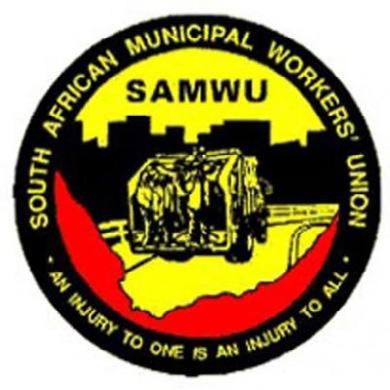




Designed as an intensive learning intervention, the Ethical Leadership and Executive Oversight Programme is intended for Ministers, Deputy Ministers, Premiers, MECs, Mayors and MMCs. Members of the Executive as the primary target audience have an option to attend with their Accounting Officers to foster cohesion...


“TO BUILD A

The National School of Government is implementing priority number three of the Government of National Unity by executing its mandate of developing Education Development and Training interventions for the public service. Amongst interventions crafted by the NSG is the Ethical Leadership and Executive Oversight Induction Programme contact sessions that are conducted in the various provinces. The intention of the programme is to empower and prepare the new cohort of executives with their roles in the 7th Administration. The programme takes place over three days and covers topics such as the socio-economic outlook of the province, understanding the boundaries of executive oversight, accountability and responsiveness, infrastructure projects for the province, inter-governmental fiscal system, and mission-led development and transformation.
Within the three days of the delivery of the programme, esteemed public servants both recent and retired, are invited to share valuable knowledge and wisdom about their leadership journey in the public service. These include well respected individuals such as Prof. Somadoda Fikeni, Commissioner of the Public Service Commission; Dr Robert Nkuna, Director-General, Department of Monitoring and Evaluation; The NSG's
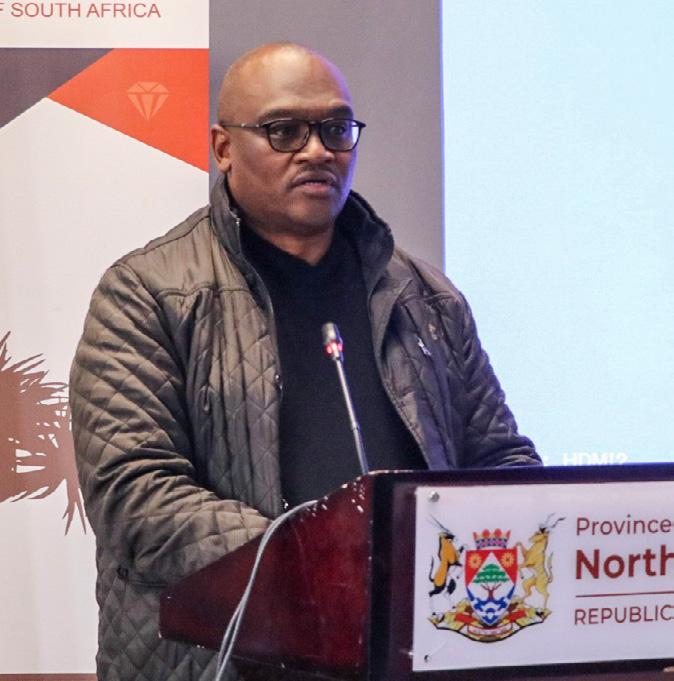
Distinguished Fellows - Dr Cassius Lubisi; Mr. Tshediso Matona; Ms. Phumla Williams and former Public Protector, Prof. Thuli Madonsela.
Limpopo was one of the first provinces to participate in the programme, with Premier of the province, Dr Phophi Ramathuba leading the fort and guiding the provincial executive. For the Limpopo Provincial Government, Dr Ramathuba
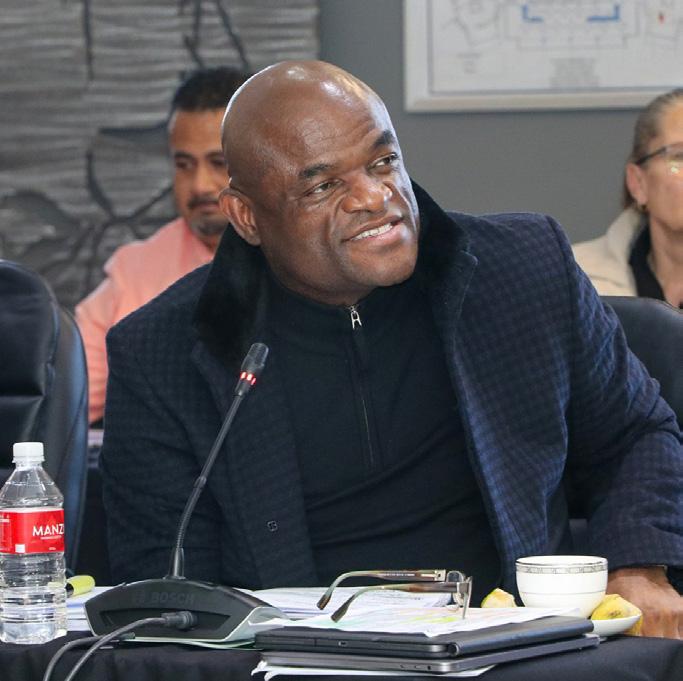
opened the session with a note of commitment to strong teamwork and a focus on both the Manifesto priorities and Government of National Unity (GNU) Strategic Priorities.
“It is now clear that going forward, the priority is to ensure that we run a solid 7th Administration that citizens will greatly benefit from and that we can also be proud of.”
- Dr. Zamani Saul
Following a thought-provoking session for the Limpopo provincial executives, the NSG team continued to the Northern Cape to deliver the induction programme to the executive team of the province. The Principal of the NSG, Prof Busani Ngcaweni introduced the session in the Northern Cape by mentioning that HODs and MECs bring political capability and acumen in their different roles, and their different experiences combined should unlock effective service delivery. The Premier of the Northern Cape, Dr Zamani Saul welcomed everyone in attendance in saying that the programme represents a path towards an ethical capable state, and that it will assist with understanding political roles of each executive member.
The two provinces shared sentiments that the programme has empowered them with ethics theory and practice. “It is now clear that going forward, the priority is to ensure that we run a solid 7th Administration that citizens will greatly benefit from and that we can also be proud of. We now understand how public administration operates and what will be our role as Executive Council versus the role of Accounting Officers. As Executive Authorities we now know what is expected of us.” said Dr Zamani Saul.
The Executive Leadership and Executive Oversight Programme is designed to assist members of the executive to deal with and manage the varied ethical
and leadership challenges. Designed as an intensive learning intervention, the Ethical Leadership and Executive Oversight Programme is intended for Ministers, Deputy Ministers, Premiers, MECs, Mayors and MMCs. It is curated to assist Members of the Executive to deal with and manage the varied ethical and leadership challenges. It aims to promote a culture of effective oversight and ethical leadership as envisaged in the Constitution, the Executive Ethics Code, the PFMA, MFMA, and other relevant prescripts. The oversight responsibility of Members of the Executive is complex, highly regulated, and often requires profound ‘in the moment’ decisions with significant public value implications.
The aim of the programme is to channel members of the executive to go beyond compliance with norms and standards for oversight, accountability, and ethical behavior. “We seek to nurture deeper
reflection, active learning, and peer engagements. The programme will enhance awareness of conditions that affect Members of the Executive and their decisions, which are increasingly under public scrutiny, said Prof. Ngcaweni. The NSG co-creation delivery model offers space for Members to reflect on parameters of their oversight roles, and the prescripts governing their portfolios as Executive Authorities. During the course of the programme participants gain practical insights into managing the performance of Accounting Officers, whilst also simulating scenarios that present moral temptations and ethical dilemmas.
The National School of Government has planned roadshows for the remainder of the 2024/2025 financial year, where all provincial executives across the country will be provided with the opportunity to participate in the programme
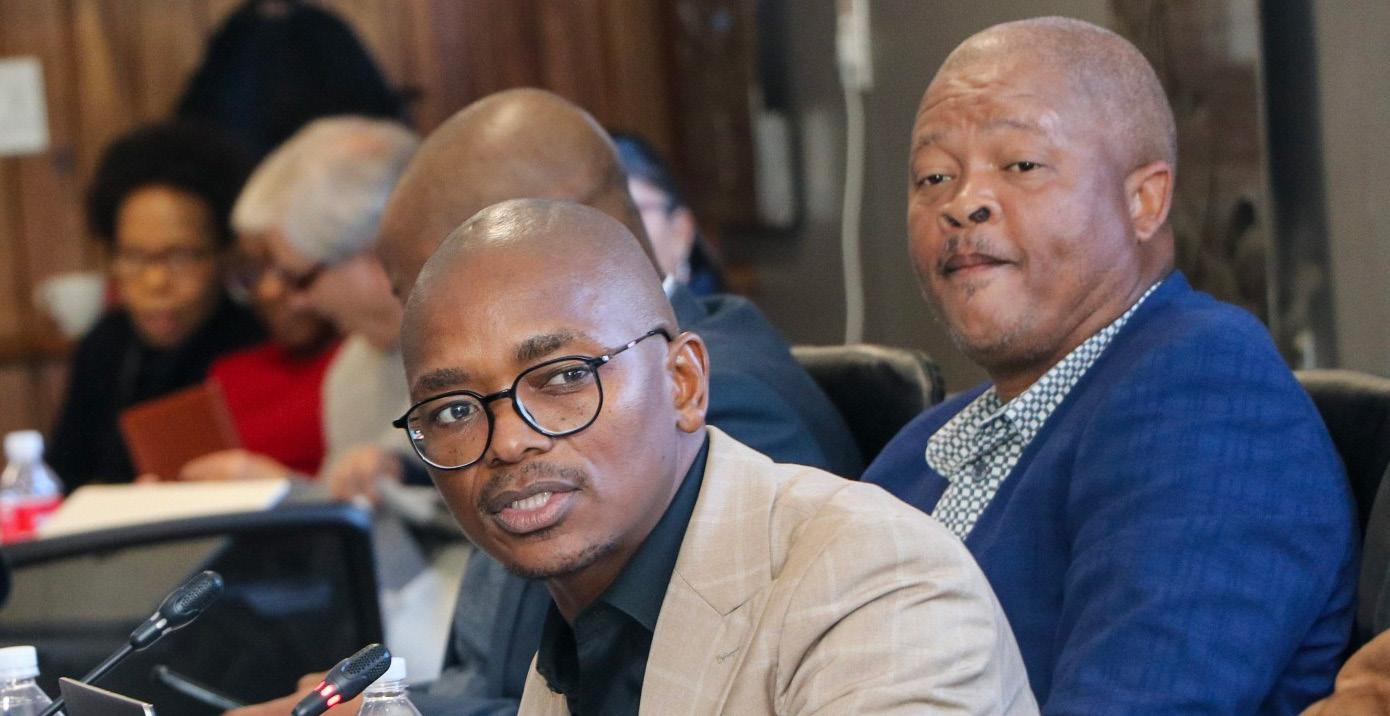
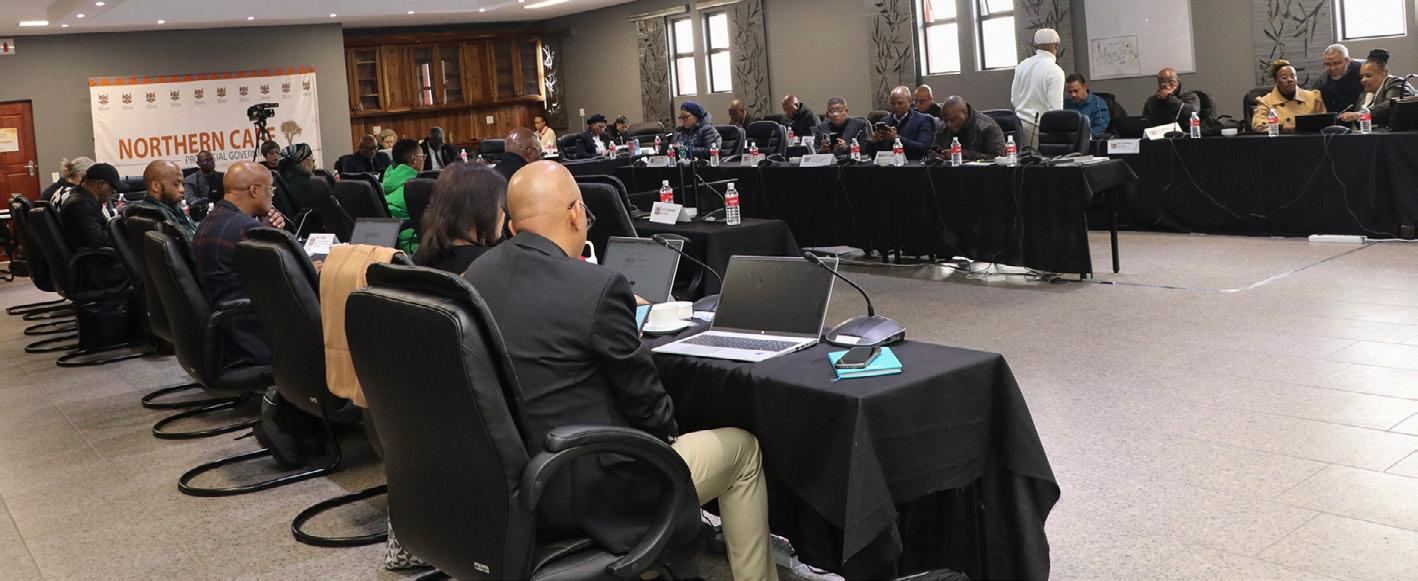
National School of Government Department: REPUBLIC OF SOUTH AFRICA
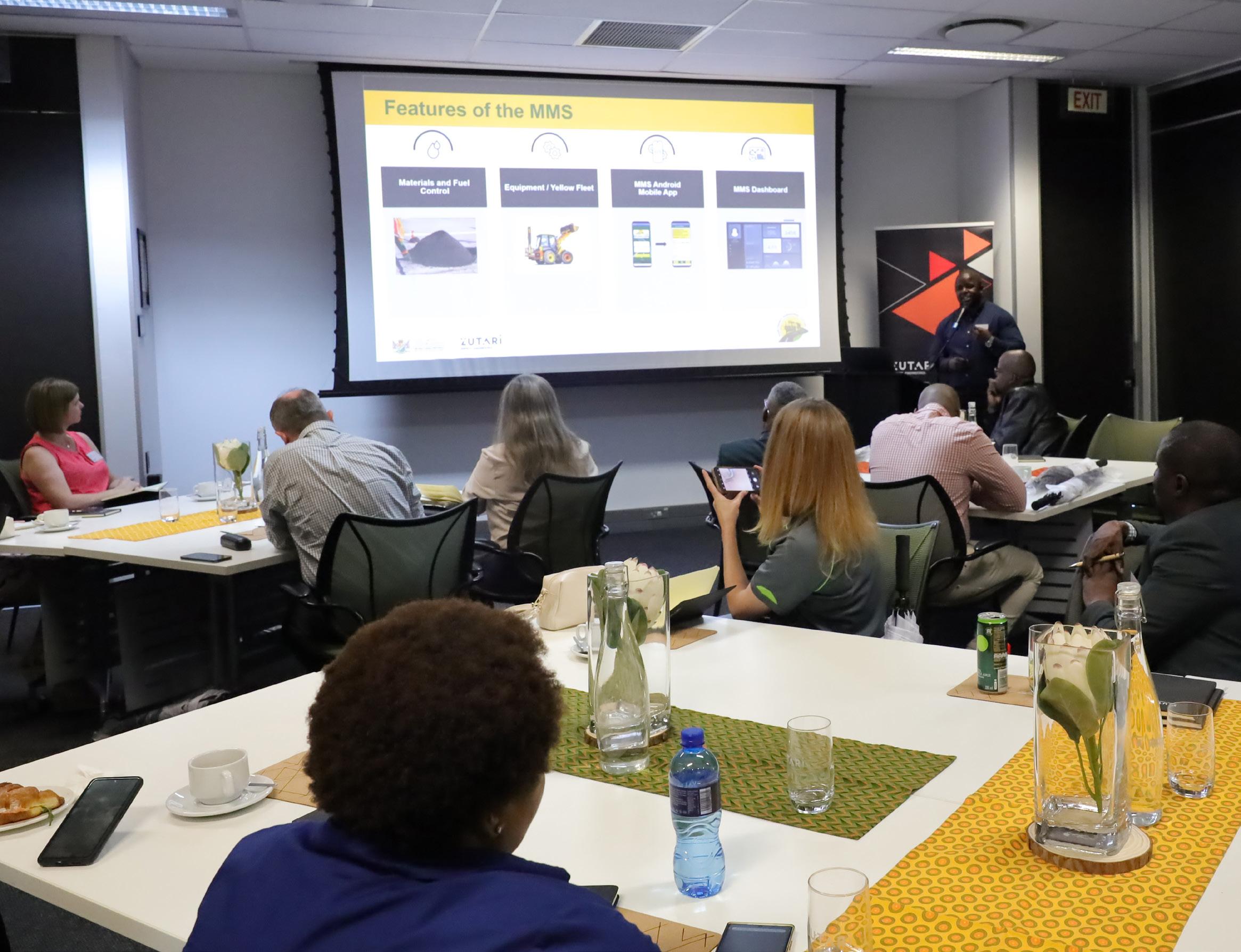
The road MMS assists the department to manage maintenance activities by facilitating task planning, allocating tasks to teams, tracking work completion and generating reports. “It is a comprehensive tool for managing road maintenance activities across the entire road network in the province,” explains Dr Chris von Holdt, Zutari Director: Asset Management.
In addition to having a web-based interface for the DPWR&T’s operational staff, the project included a pothole logging web application that can be accessed by the public and allows them to report any issues they encounter on the road. This provides valuable information for the department and allows them to schedule maintenance and effectively carry out the repair work required.
The road MMS sets a benchmark for the country as a whole, representing a significant step forward in road infrastructure management “It is very forward-thinking for us to adopt this approach at a provincial level. Based on what we have seen, it could really be a game changer if implemented successfully, as we envision,” points out Mr M. Rikhotso, Acting Deputy Director General: Public Infrastructure.
An innovative road Maintenance Management System (MMS) has been implemented by the Department of Public Works, Roads and Transport (DPWR&T) in Mpumalanga, developed in collaboration with leading consulting engineering and infrastructure advisory practice Zutari.
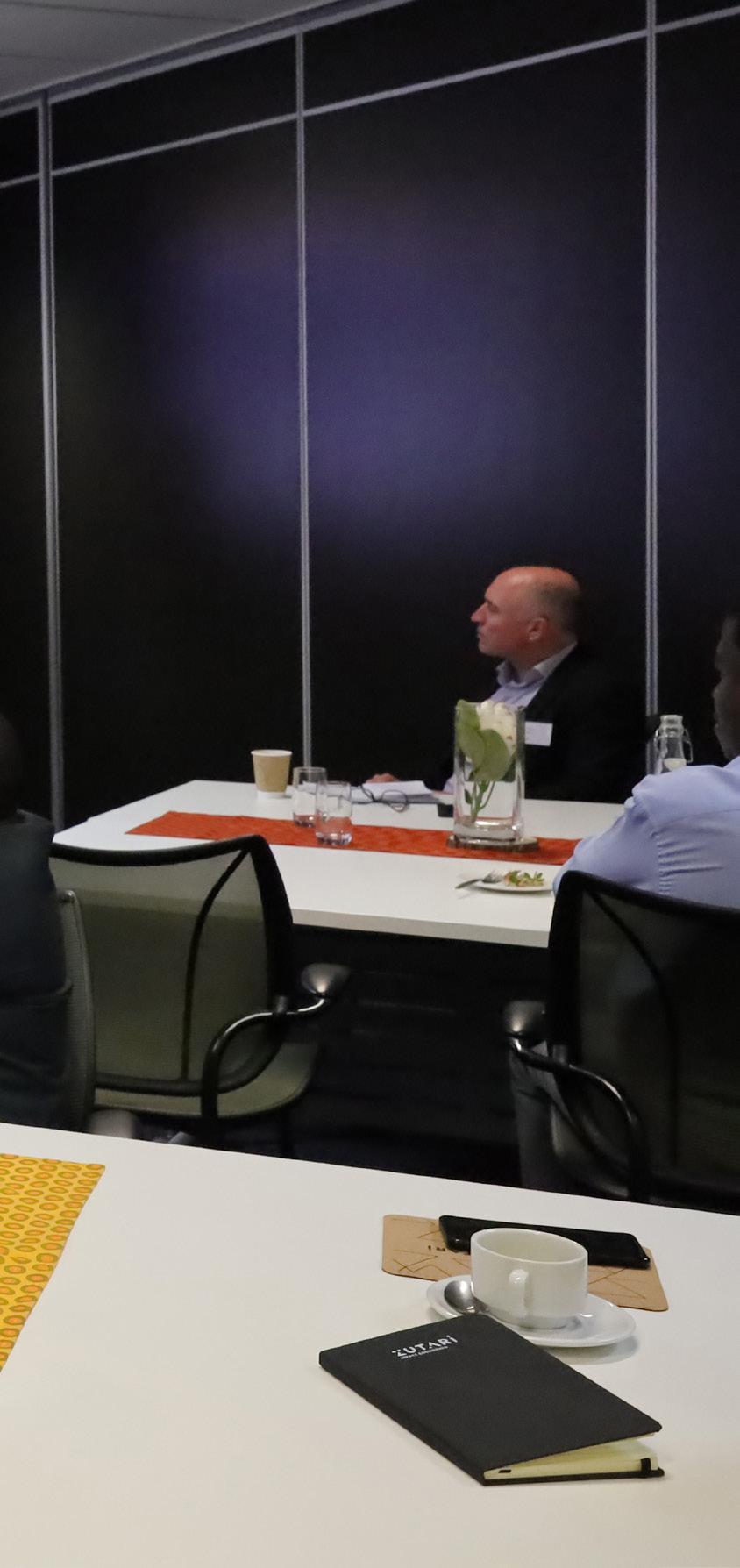
Essentially, the system includes comprehensive work order management. “We are talking about capturing maintenance issues, whether they are publicly reported or identified through inspections, and then moving through the process of planning and executing the work,” explains Mr Bheki Walter Shabangu, Senior Project Manager: Transport Infrastructure Roads Planning.
“It also covers executing the work, recording it, and incorporates features such as job card inspections on work done for approval. In addition, we have developed a mobile app specifically for foremen working on-site to reduce paper usage by digitising the work process and capturing evidence, such as photos, of completed tasks,” adds Shabangu.
Another important feature is fuel and materials management, as the MMS tracks fuel and materials expenditure and provides a detailed view of maintenance costs, both in the short and long term. A dashboard offers full visibility of operations across the entire province, allowing managers at different levels to monitor maintenance activities. “It is a robust and comprehensive system that significantly supports the department in managing its maintenance operations,” highlights Shabangu.
“The introduction of the road MMS is a transformative step for DPWR&T, empowering us with the tools to effectively manage and maintain our extensive road network.”
– Mr M.C. Morolo, Head of Department
“Imagine a central system where all maintenance information is visible from one location, allowing assessment across the entire province down to individual cost centres and work teams,” says Mr R. Masia, Acting Chief Director: Transport Infrastructure.
“It is revolutionising how we manage our road network. In terms of road network maintenance management, it is probably the most sophisticated digital solution being applied in South Africa at present,” says Masia.
“The challenge is that Mpumalanga’ road network is highly trafficked with heavy loads. There is a lot of mining activity, so the road network takes a lot of punishment from haul trucks in particular,” says von Holdt. Keeping up with maintenance is a significant undertaking, requiring a systematic and well-informed approach to stay ahead of the demands of the network.
“It is a substantial and important task, involving 28 call centres and several
hundred people working daily on maintenance. The goal is to ensure this effort is carried out in the most coordinated and structured way possible,” concludes von Holdt. The road MMS is currently operational and Zutari is assisting the department with comprehensive training to ensure smart working and the greatest impact possible. >

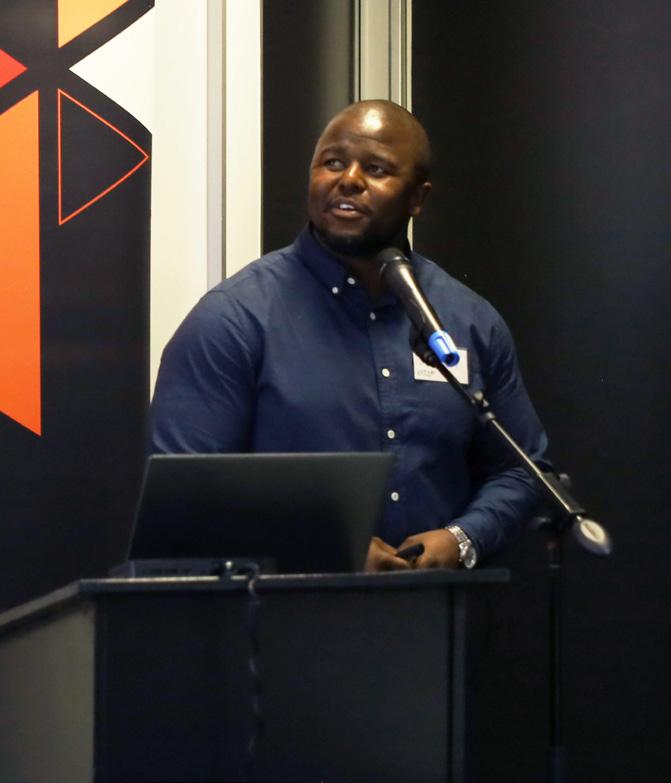

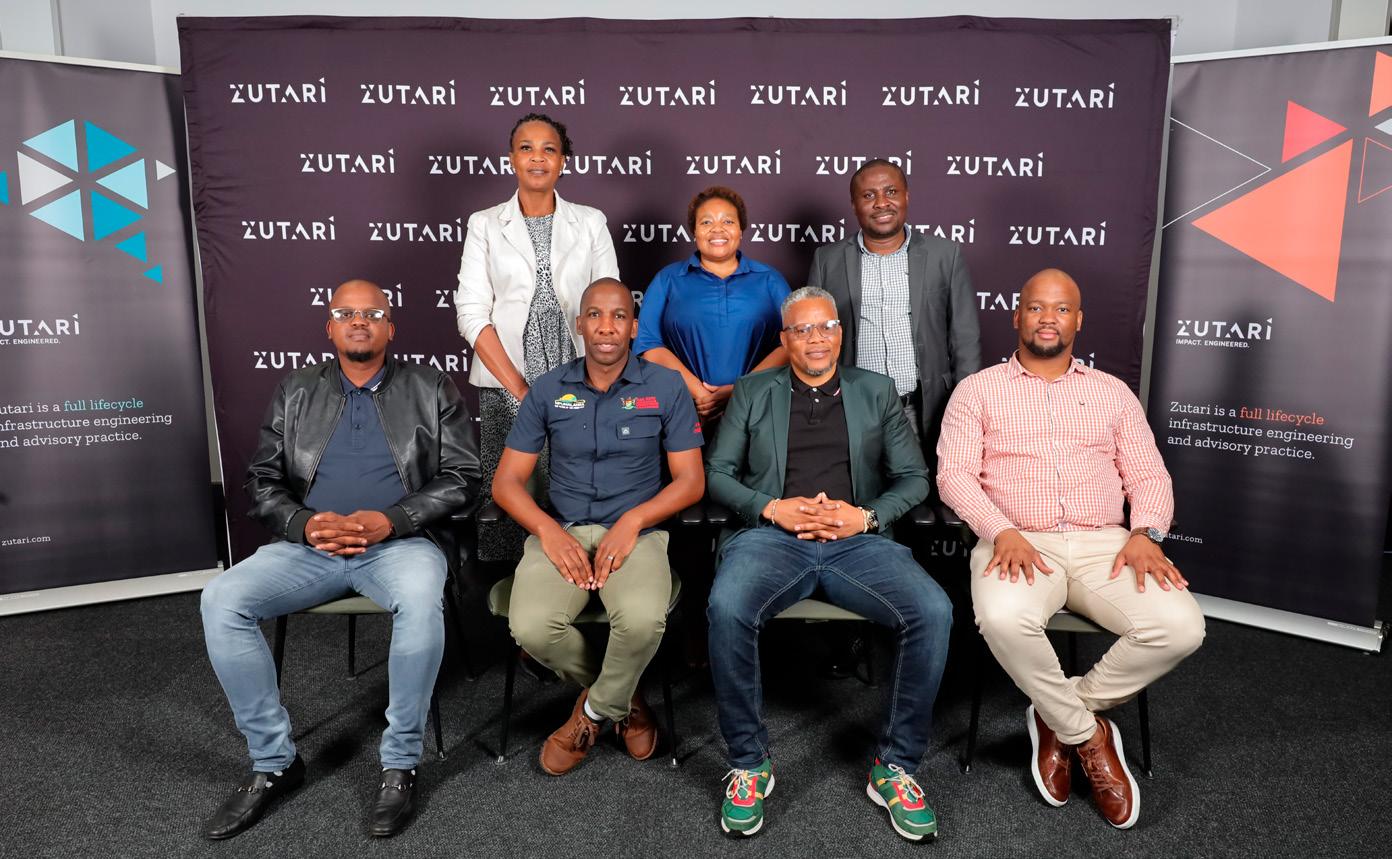

“The introduction of the road MMS is a transformative step for DPWR&T,” says Mr M.C. Morolo, Head of Department. “This system empowers us with the necessary tools to effectively manage and maintain our extensive road network, particularly in the face of the heavy demands placed upon it by mining activities and traffic.”
“Our collaborative efforts with Zutari epitomise our commitment to improving road maintenance, ensuring safety and reliability for all road users.”
– MEC, Mr Thulasizwe Thomo
Morolo adds: “I am excited about how this system will streamline our maintenance operations and improve our responsiveness to public reporting of
road issues. Together with Zutari, we are committed to ensuring that our roads remain safe and functional, thus fostering greater mobility and accessibility for all our communities.”
MEC, Mr Thulasizwe Thomo, says he is proud to support such an innovative initiative. “This advanced system represents a significant leap forward in how we manage our road infrastructure, enabling precise tracking, efficient task allocation, and comprehensive reporting.
“Our collaborative efforts with Zutari epitomise our commitment to improving road maintenance, ensuring safety and reliability for all road users. I firmly believe that this initiative not only addresses current maintenance challenges but also sets a benchmark for similar projects across the nation, enhancing overall transport infrastructure in our province,” concludes Thomo.
As an infrastructure, engineering and advisory practice, we believe infrastructure has unparalleled potential to create enduring impact. Never more relevant, this potential can be realised only if we plan, design, deliver and manage infrastructure in ways that maximise its value. Our work in water, transport, energy, resources, and built-environment infrastructure does just this – helping to nurture thriving communities, growing economies, and healthy environments.
At Zutari we understand that radical impact doesn't just happen; it requires more of us to connect differently, work smarter, and stay rooted.
Our broad collective of in-house experts connects across traditional disciplines to provide integrated results. We collaborate with clients, partners, and end-users, leaning into diverse perspectives to create superior solutions – together.
Our people lead the industry. We draw from deep technical skills, accrued over decades, and embrace the transformative power of digital technology to find simpler, better, and more innovative ways to deliver value.
Few can rival our local capacity and understanding. Building on solid foundations, now 90 years in the making, we are trusted to shape locally relevant solutions through our extensive footprint in Africa and the Middle East.
At Zutari our people connect differently, work smarter, and stay rooted. Working in this way, we reliably deliver impact through infrastructure, making the world a better place – one project at a time.
The municipal boundary redetermination process in the country has become one of the approaches to address spatial inequalities. In 2016, the Municipal Demarcation Board (MDB) took a decision not to conduct major redeterminations until after the 2021 municipal elections.
Between November 2016 and June 2020, the period under review for the study, the MDB received 30 proposals from stakeholders (Including ordinary members of the public) for
municipal boundary changes. But the underlying reasons for these proposals were not clearly understood.
The main aim of the study, which was carried out in 2020, was to analyse the reasons behind the boundary redetermination proposals that were submitted to the MDB. Such an understanding would assist the Board in making informed preliminary assessments of the feasibility of these requests in future.
A qualitative study that used content analysis as the main analytic tool was used. Of the 30 municipal boundary redetermination proposals received by the MDB, many of them were unclear or did not provide reasons for the requests at all.
Telephonic interviews with key stakeholders (Municipal officials and members of the public who submitted the proposals) enabled the MDB to ascertain some clarity on the reasons for some of the requests.
Proposals were organised and categorised according to the MDB’s evaluation matrix. The MDB’s evaluation matrix groups all the section 24 objectives and section 25 factors from the Municipal Demarcation Act (MDA) into four categories:
• The interdependence of people, communities and economies;
• Spatial and development planning;
• Governance and functionality; and
• Financial and administrative capacity.
The 23 municipal boundary redetermination proposals analysed in this study were from the Eastern Cape, Free State, Gauteng, KwaZulu-Natal, Limpopo, Mpumalanga and North West provinces.
Table 1:
Shows that issues pertaining to governance and functionality were the most commonly cited (46%), followed by those related to the interdependence of people, communities and economies with 44%. Issues related to spatial and development planning and financial and administrative capacity, with 8% and 2% respectively, did not feature prominently in the demarcation requests.
Categories, frequency and ranking of boundary redetermination requests.
Table 2:
Shows the categories (from Table 1) and the specific motives (in terms of the demarcation criteria in sections 24 and 25 of the Municipal Demarcation Act).
Categories and specific motives for boundary redetermination requests.
Demarcation and ethnic concerns: The MDB needs to find a way of balancing what seem to be issues of ethnicity with the concerns about marginalisation raised by people in areas such as Limpopo. Dismissing these concerns as merely ethnic politics (or the so-called “tribalism”) will not make them disappear, especially in the absence of empirical evidence proving these concerns as misplaced.
Traditional areas: The MDB needs to consult the Department of Traditional Affairs (DTA) to acquire the accurate extent and proclamation of the affected traditional authority prior to proceeding with any redeterminations.
Amalgamations: The frequency of major boundary redeterminations should be addressed with demarcations possibly being undertaken every 10 years. This is because
A copy of the entire research report can be obtained on www.demarcation.org.za
major boundary redeterminations are disruptive and affect planning - these are not processes that should be carried out frequently. Also, a 10 year period provides sufficient time to assess the results of a particular municipal boundary redetermination. This is an issue that is addressed by the Independent Municipal Demarcation Authority Bill which was passed by the National Assembly on 30 November 2023 and was subsequently sent to the National Council of Provinces.
Legislation: There is a need to remove unnecessary duplication and bring clarity to the Municipal Demarcation Act. This study, as was the case with those before it, encountered challenges in grouping section 24 objectives and section 25 factors in the Act due to duplications and a lack of clarity in some of the criteria.
Leather products, vegetables, eggs and juicy biltong sticks... It sounds like a typical market day, but these are just some of the products on offer by local residents of the Ephraim Mogale Municipal area in the mining-rich Sekhukhune District. Some of these cooperatives and initiatives have been funded and continue to be supported by the Limpopo Department of Social Development, in an effort to relieve poverty, unemployment and food insecurity. Some of them, sadly, have not been funded and desperately need exposure for their talent and supply of quality products.
Through targeted funding and support, the Department of Social Development is empowering local co-operatives to create sustainable livelihoods and foster economic resilience.
Government Support and Funding: A Lifeline for Vulnerable Entrepreneurs
Limpopo Provincial Government, through the hosting of major community events, endeavors to create such opportunities for entrepreneurs
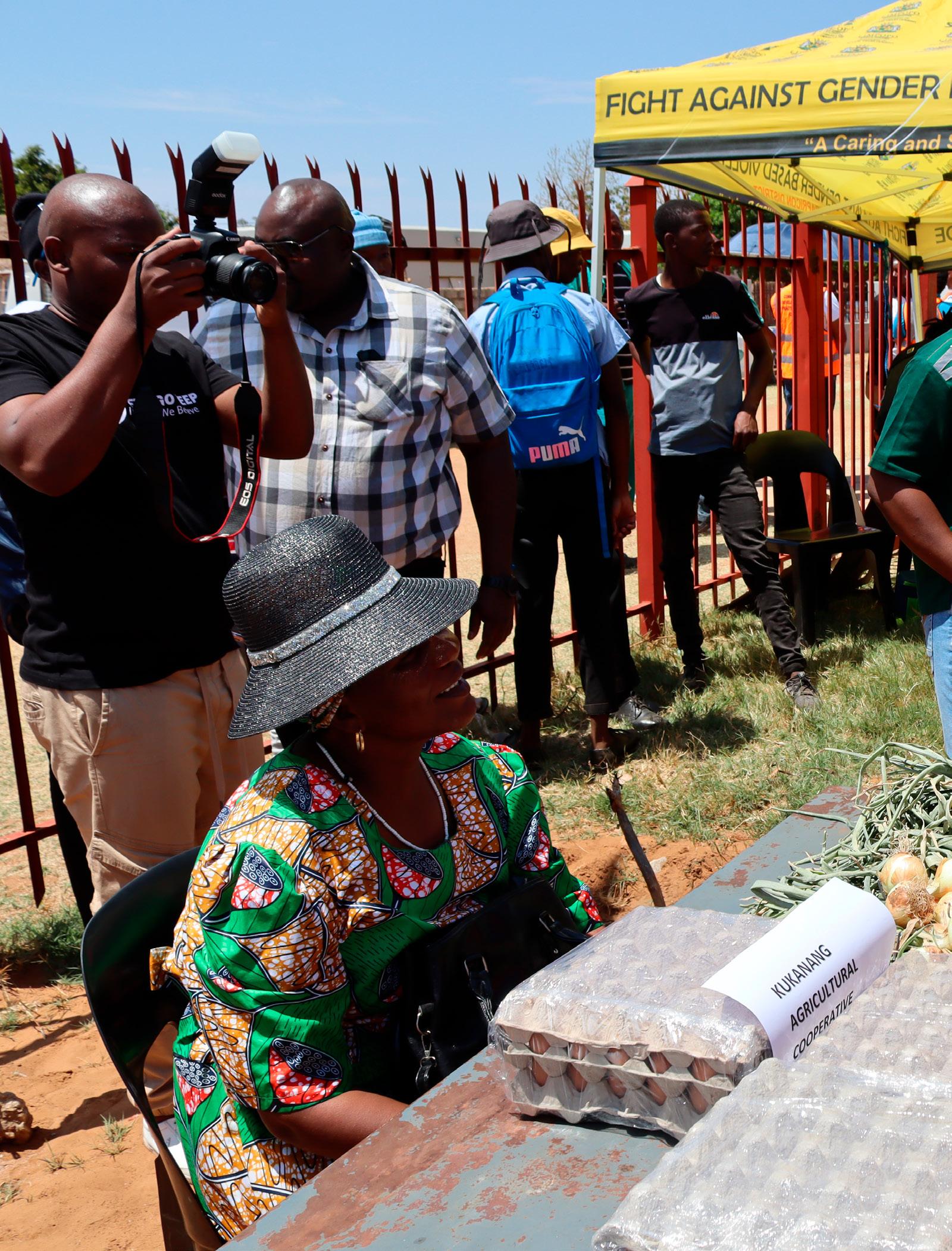
from vulnerable communities. It is a constant concern for a caring government that this exposure may not be nearly enough and therefore a multi-faceted and holistic approach is needed to ensure that local small businesses aimed at uplifting vulnerable families and communities become competitive in the local market. Many politicians and especially the Premier of Limpopo, Dr. Phophi Ramathuba, have called for the utilization of local producers and manufacturers when it comes to procuring goods and services.

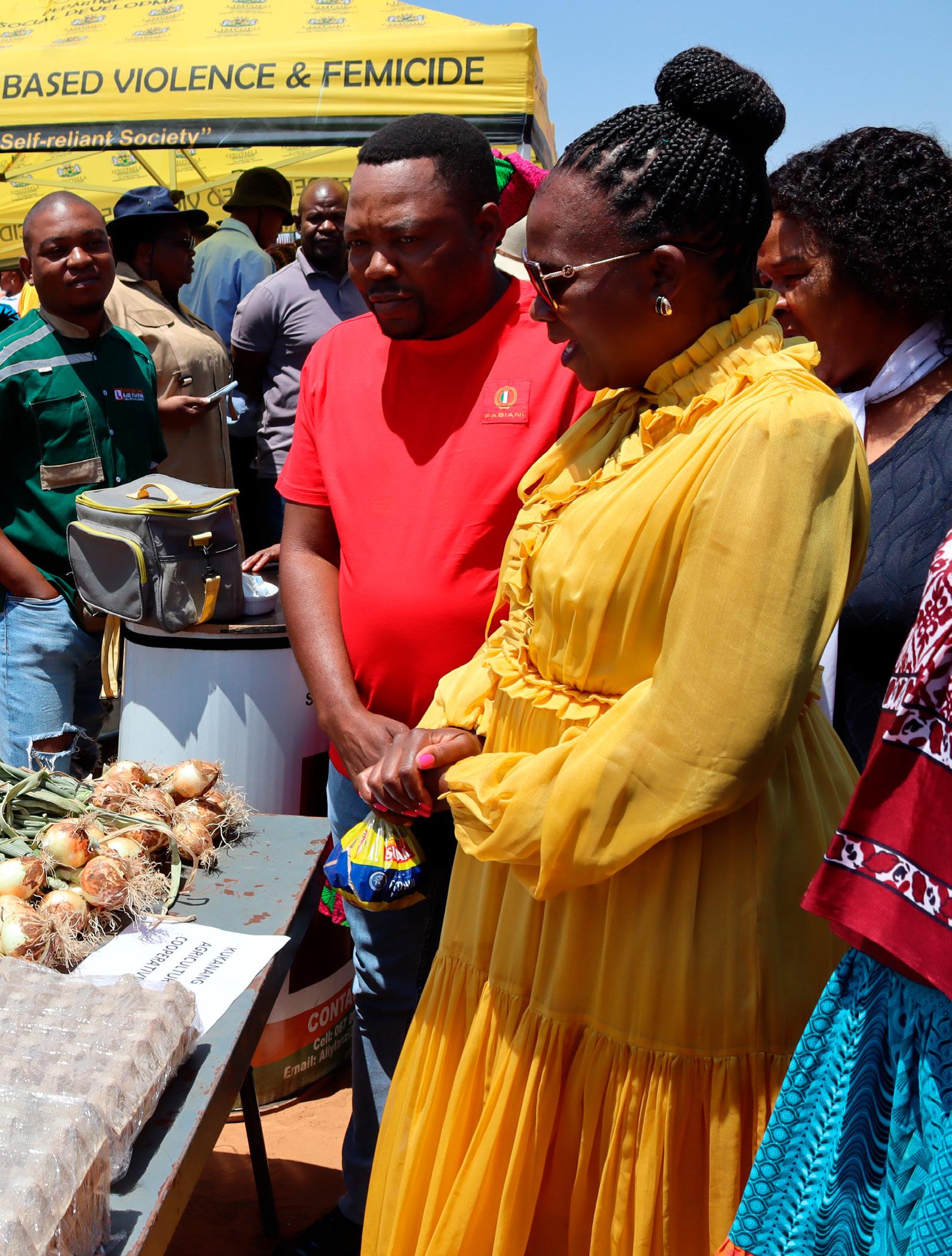
During a recent gathering in Spitspunt Village in the Ephraim Mogale Municipality, Sekhukhune District, where the department commemorated International Day for the Eradication of Poverty, the MEC for Social Development in Limpopo, Ms. Florence Radzilani was seen interacting with the exhibitors at the event. Having seen what they are capable of, she called for even more exposure and marketing of the locally farmed or manufactured produce of Limpopo. International Day for the Eradication of Poverty is a United Nations Day of observation focusing on global poverty issues and it is observed annually on 17th October, just one day after World Food Day on the 16th of October.
Peniki Phahlamohlaka leads a woman owned farming cooperative named Kgotlelelo Agricultural Primary Cooperative Limited, producing cabbage, beetroot, spinach, watermelons, potatoes, onions and carrots in Moutse West, Mokgwaneng village. With a funding startup of R500 000 she received from the Department recently, they manage to distribute their produce to local chain stores in Siyabuswa and Marble Hall, as well as smaller businesses and informal sellers. “Our problem remains a suitable vehicle with which to transport the >

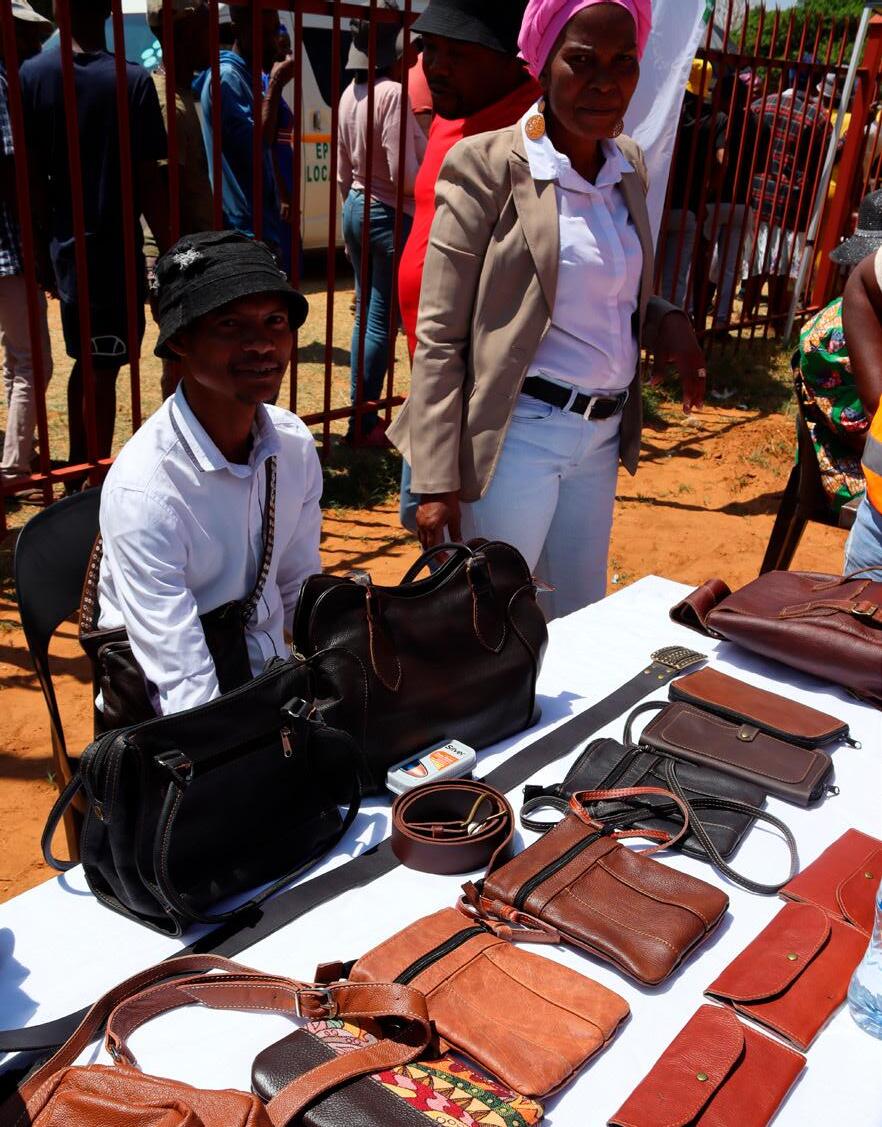
vegetables and we’re hoping that soon we will be in a position to purchase one,” she says.
Kukanang Agricultural Primary Cooperative is another farming project led by women. At the head of the cooperative is Maripanyane Bapela, hard at work producing butternuts, beetroot, cabbage spinach, watermelons and onions. With their R500 000 funding they received from the Department in 2022, they also started a poultry farming cooperative. From their activities in Leeufontein village, they too entered the chain store market of Marble Hall and
Leeufontein. As with other cooperatives, their need is also for transport, especially for distributing their produce.
Several ventures that are currently not funded include “Kasi Flavour”. While browsing all the produce, one could not resist the temptation to buy a packet of biltong sticks, and what a pleasant surprise it was. A juicy, slightly tangy and spicy biltong stick really hits the spot at any time! Ally Maila hails from Leeufontein Village and currently distributes his fine biltong products to Burgersfort (Limpopo), Siyabuswa (Mpumalanga) and Mamelodi (Gauteng). He is constantly looking for more distribution areas such as local lodges and fuel stations around Limpopo and is thankful for any additional exposure.
Malete Seipati from Spitspunt Village in the very same municipality was very excited to market her goods to the MEC. She is the driving force behind Malete Vegetable Project in Spitspunt Village. She produces onions, cabbage, tomatoes, potatoes, spinach, beetroot, carrots and even lettuce. While Malete is only selling to the local community, she explains that community members buy in bulk and resell. “People from nearby villages also buy from me for catering purposes for weddings and funerals,” she continues. Malete has roped in her children into her farming project, but she has
the opportunity from time to time to employ casual workers whenever the need arises. Just like the other projects, the transportation of goods remains a problem, and she continues to look for more opportunities for funding or expanding her project.
The Department of Social Development remains committed to uplifting vulnerable communities through innovative support, creating a pathway to independence and growth.
When it comes to leather bags, wallets and more, the craftsmanship of Elias Seete from Spitspunt Village is world class. Elias is currently selling his handmade leather bags, purses and belts in Gauteng, but is hoping to break into the Limpopo market soon, with his Manyesa Leather project. He even custom makes items according to specifications.
The Department of Social Development has changed the lives of some of these individuals and families and especially vulnerable individuals, by providing funding for their projects and encouraging the creation of sustainable livelihoods. After all, as Chinese philosopher Lao Tzu once said: “Give a man a fish and you feed him for a day. Teach him how to fish and you feed him for a lifetime.” Innovative means are, however, needed to ensure that SMMEs and cooperatives get the exposure they deserve, and the Department will continue to find innovative ways to do so.

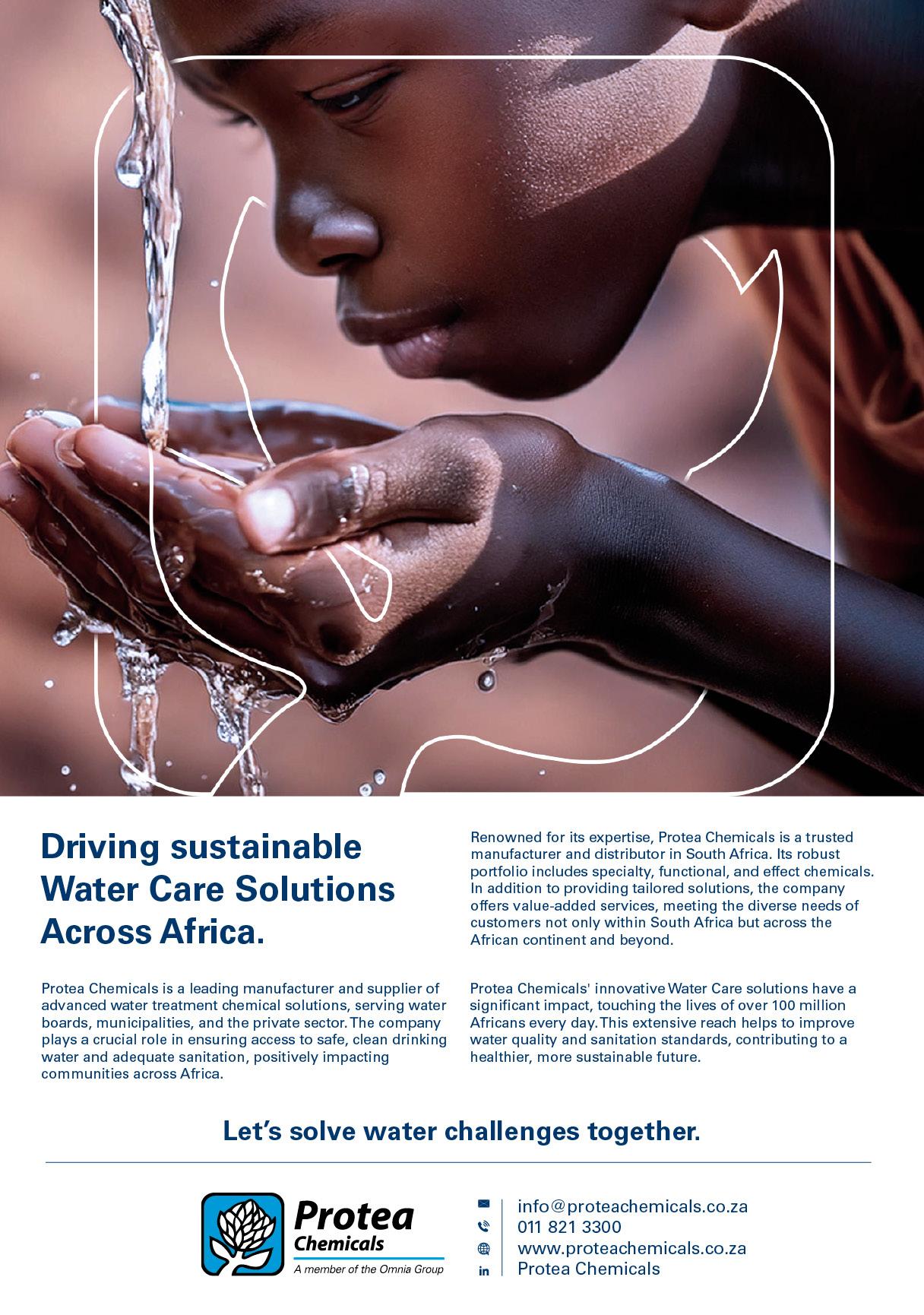
Written by Sakhe Ntlabezo, Programme Manager of the Makhanda Circle of Unity and Dr. Ashley Westaway, Manager of GADRA Education.

Makana Local Municipality, which has its seat in the city of Makhanda (where most of the municipality citizens reside), is often in the news because of the persistent service delivery failures. Earlier this year, a march was organised by students and residents of Makhanda in response to persistent water cuts that significantly impacted the state of living. More recently, the Special Investigating Unit (SIU) was authorised through Proclamation 207 of 2024 to investigate allegations of serious maladministration, unlawfulness and improper conduct in the Municipality. On the surface, the extensive coverage of the challenges Makhanda and the municipality face suggests that there

are no other stories to tell about the area but the story of frustrated development. This, however, is not one of those stories. At the beginning of 2024, a remarkable event took place in Makhanda. It reflected the core tenets of meaningful partnership and collaboration and is poised to impact the city's history indelibly. This event was the Makhanda Education Summit.
The Makhanda Education Summit was a landmark moment for the city, embodying the spirit of partnership and paving the way for lasting educational transformation.
The Makhanda Education Summit was a one-of-a-kind convening of the basic education sector in Makhanda that the Rhodes University ViceChancellor, Professor Sizwe Mabizela, led. This Summit followed more than a decade of deliberate, collaborative intervention in various schools in Makhanda focused on improving learner performance. As the first community-wide Summit of this nature to be called by a sitting university Vice-Chancellor, the Summit was more than just a convening of the education sector in Makhanda. It represented a co-created reflection point on the development of the local education sector following its gradual upliftment through engaged partnerships.
Furthermore, it was an important space to identify key goals that map out the shared pathway towards building a centre of education excellence, an ambition shared by all education institutions in Makhanda.
By serving these functions, it became a critical space to allow members of the local education sector – including early childhood development (ECD) practitioners, schoolteachers, principals, academics, non-profit organisations and district education officials – to collectively strategise on the continued development of the education sector. Anchored by the intentional engagement of local stakeholders, the Summit demonstrated collaboration's necessity and endless potential in driving community development.
The Summit was especially important considering the positive development in Makhanda’s education sector, which local education institutions and residents facilitated. In 2013, when the National Senior Certificate (NSC) results were released, the district of Makhanda (then Grahamstown) received a pass rate of 62.5%, making it the 10th worstperforming district in the country that year.
This outcome would prove to be an important milestone for the city's education sector, however disheartening the results were. It revealed the growing necessity of an intervention in the sector. Facilitating meaningful impact, however, would require a multi-pronged approach (over a sustained period of time).
Beginning in 2014, various stakeholders in Makhanda deployed a set of interventions with remarkable results. Some key outcomes include:
In 2015, through funding from the Vestas Empowerment Trust, a multistakeholder consortium was created to manage a dynamic Primary Education
Programme. This consortium, led by GADRA Education with partners such as the Lebone Centre, the South African Numeracy Chair Project and the Department of Primary and Early Childhood Education at Rhodes University, focused on promoting literacy and numeracy in primary schools in Makhanda. Over the course of 8 years, this consortium would then proceed to develop numerous initiatives that would be beneficial to the primary school sector, chief among them being the Whistle Stop School (a targeted literacy intervention focusing on improving reading skills) and the IsiXhosa Spelling Bee, a first of its kind in South Africa.
In 2016, Professor Mabizela established the Vice-Chancellor’s Education Initiative (VCI) committee. This committee includes experts in the education sector from within and outside the university, who serve as the anchor structure to oversee collaborative interventions from Rhodes University. At its core, the VCI has sought to facilitate systemic change in Makhanda's basic education sector. Among its flagship initiatives is the Nine Tenths Mentoring Initiative,
which involves a mentorship relationship between a Rhodes University student volunteer and a Matric learner (i.e., a learner in their final year of high school) mentee through a series of guided and structured contact sessions. It has been impactful and efficient, as evidenced by winning the first prize in the international MacJannet Prize for Global Citizenship in 2021.
This Summit was more than a meeting; it was a co-created milestone, a collective vision to turn Makhanda into South Africa’s leading academic educational centre by 2028.
In 2019, the Rhodes University Community Engagement division redesigned and refined its Budding Q programme. Through this new approach, the programme sought to address the literacy crisis in South Africa through a play-based approach starting in Grade R while pre-literacy skills are being developed. >
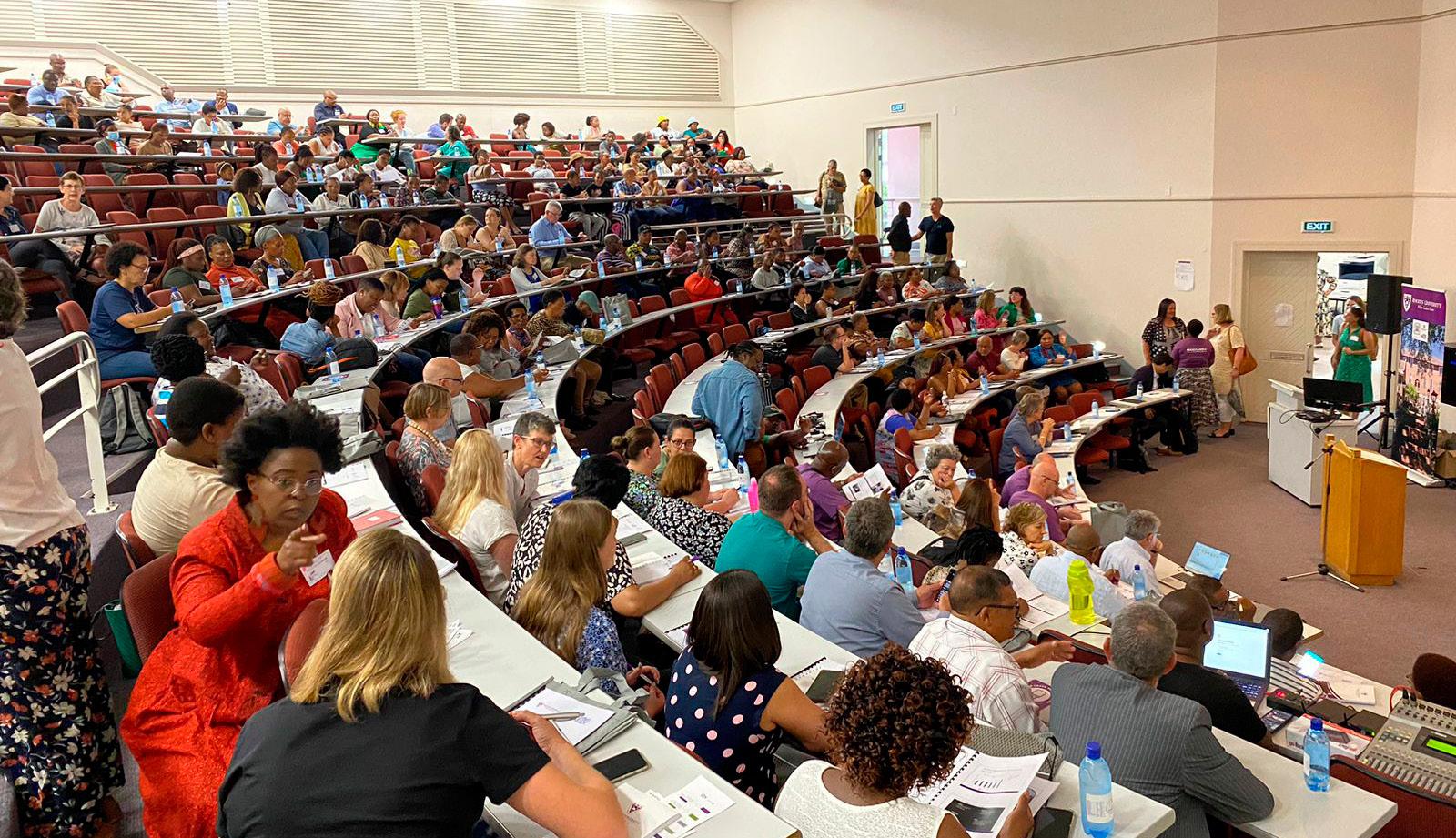
By 2020, the benefit of the sustained interventions began revealing themselves. That same year, Makhanda was the best-performing city in the Eastern Cape NSC results. In 2021 and 2022, the local public schools achieved more than 300 Bachelor passes in the final NSC examination results. The retention rate in the schooling system had improved from 45 percent to 65 percent. In 2023, research conducted jointly by GADRA Education and the Rhodes University Department of Primary and Early Childhood Education revealed that 40% of Grade 4 children in Makhanda could read for meaning –more than double the national average. It was in the context of significant gains through partnership that a Summit was convened in Makhanda.
Makhanda’s journey reveals that, beyond the service delivery struggles, the city is buoyed by its residents' unwavering commitment to building a brighter future.
The planning process for the Summit was overseen by a committee comprising representatives of key education stakeholders in Makhanda, including representatives from the University (specifically, the Faculty of Education, Community Engagement Office and the Centre for Social Development, which focuses on early childhood education), GADRA Education, the Makhanda Circle of Unity, public schools and private schools in the basic education sector. Critically, the district education office was also represented on the planning committee (and at the Summit itself), particularly because it is a crucial partner organisation. It was important to ensure that the Summit planning committee was inclusive and representative, as this would play a vital role in the mobilising efforts needed to convene it.
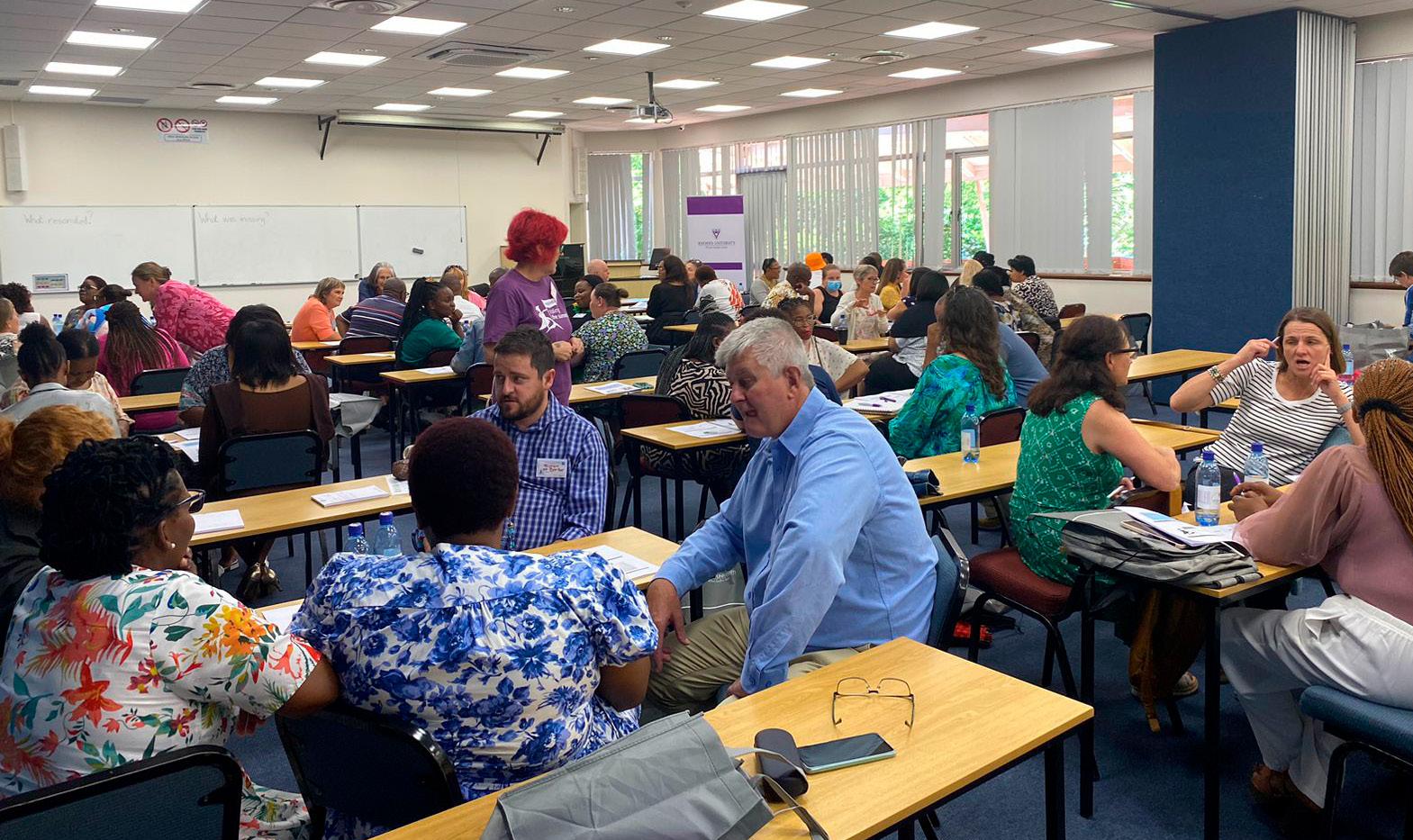
The Makhanda Education Summit took place at Rhodes University Campus on 27 and 28 January and was attended by over 350 local education stakeholders. The keynote speaker at the event was Dr Barney Mthembu, the Deputy Director-General of Curriculum Policy, Support and Monitoring. Two significant things happened by the end of the Summit. Firstly, key sectoral-specific focus areas for development and growth over the next few years were identified and agreed to by the delegates in attendance. By developing these focus areas through collective engagement and discussion, a clarity of purpose was developed, and a clear roadmap for the enhanced improvement of the education sector of Makhanda was laid out, one that could be adopted and embraced by the sector as a whole.
Secondly, a clear vision was articulated to anchor the priority focus areas and set a tangible goal for developing Makhanda’s education sector. This vision is important because it represents the collective input of the delegates and because its successful attainment hinges on the collective action of members of the local education sector, from ECD to secondary school:
“By 2028, Makhanda emerges as the leading academic educational centre and city in South Africa and is recognised as such, thereby affording all local children
and young people the benefit of good quality and relevant education at preschool, primary, secondary and tertiary levels.”
Underpinning all the gains made in the Makhanda education sector is partnership. It enabled the development of a conducive environment to co-create an improved education sector and a bold vision for growth. The potential of partnership and collaboration to facilitate meaningful development and gains cannot be understated, and the growth of the Makhanda education sector towards the Summit presents itself as a powerful reminder of this. It is a lesson that can (and should be) shared widely – that there is always more to gain from working together. Selfishly, telling this story allows the narrative around Makhanda to be nuanced. This is not just a place of potholes and water outages. It is also a place buoyed by its residents' boundless commitment to its development. The future is full of potential.
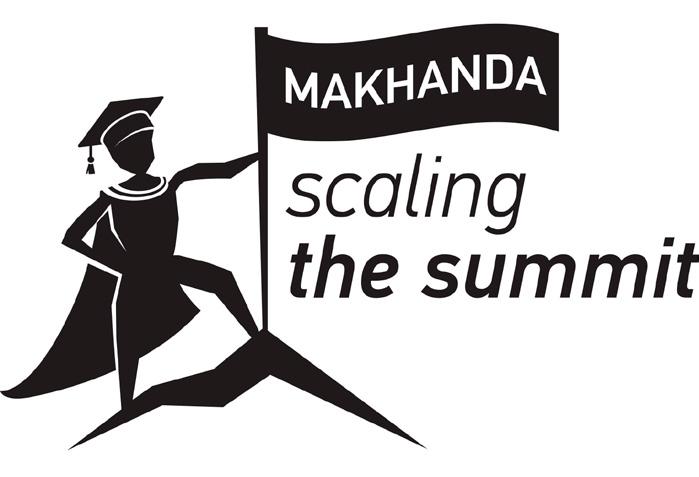
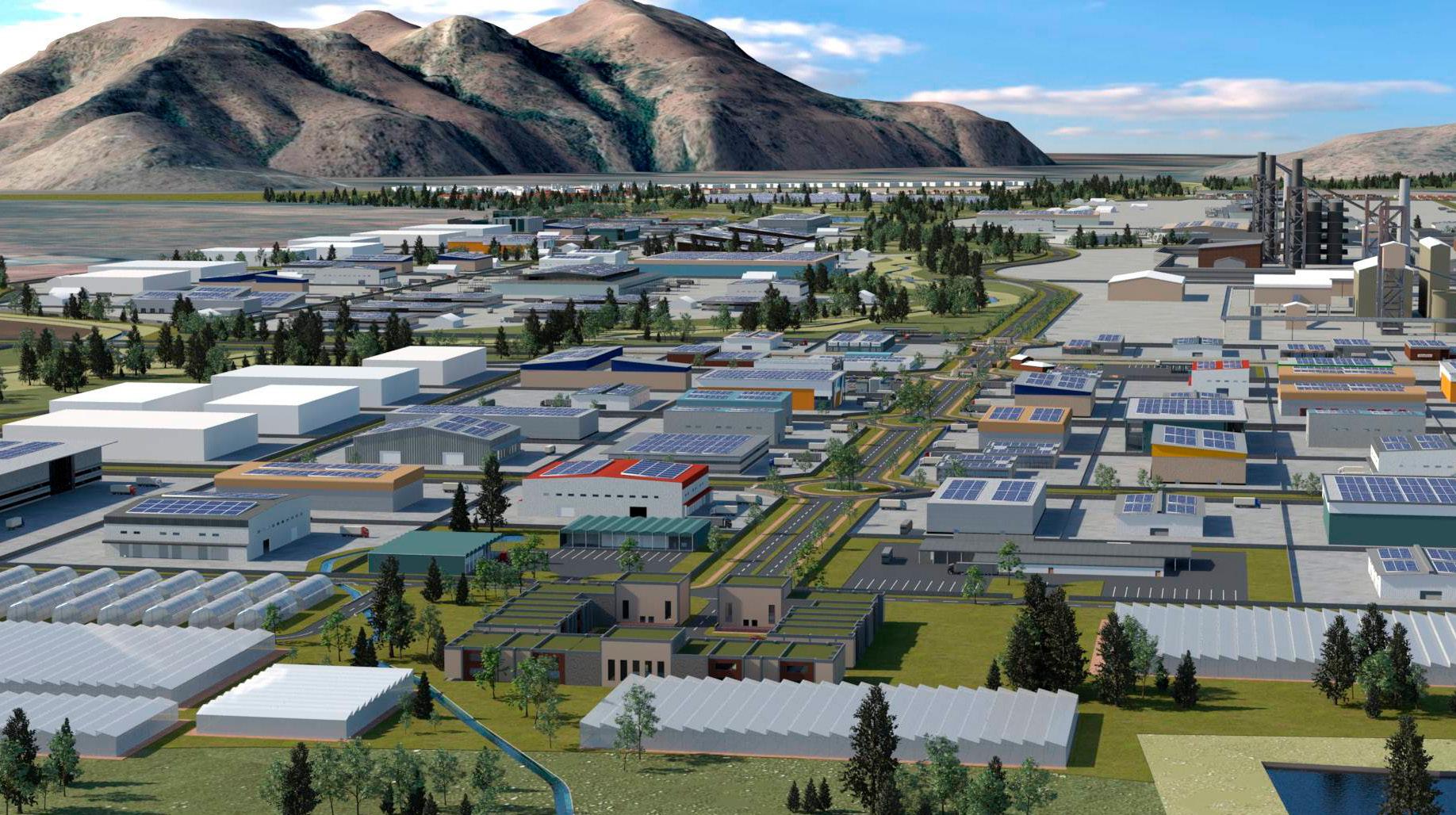
South Africa's journey toward inclusive and sustainable economic development finds one of its most ambitious champions in the Fetakgomo-Tubatse Special Economic Zone (FTSEZ). Located in Limpopo Province's mineral-rich Sekhukhune District, the FTSEZ is at the forefront of industrialisation efforts in the region. With its focus on green energy, mineral beneficiation, and community upliftment, the FTSEZ is not only reshaping the economic landscape but also redefining what sustainable development means in South Africa.
Under the dynamic leadership of Mr. Solly Kgopong, CEO, and Ms. Bunjiwe Gwebu, Executive Manager Business Development, the FTSEZ Project Executive, represents a harmonious
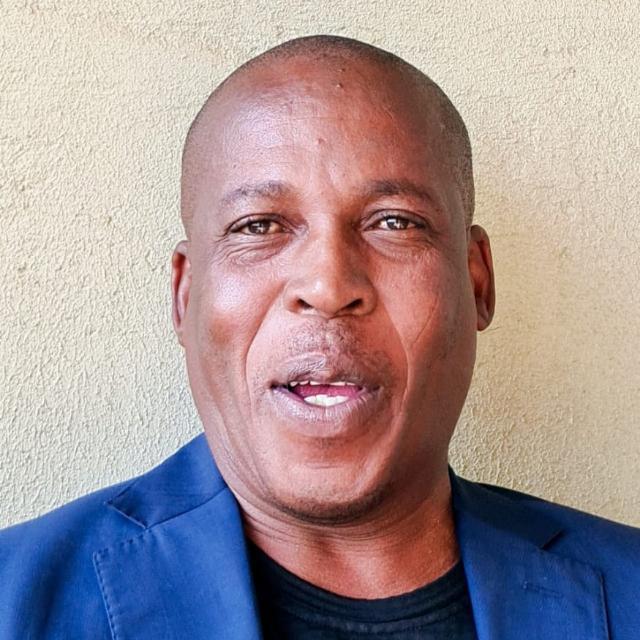
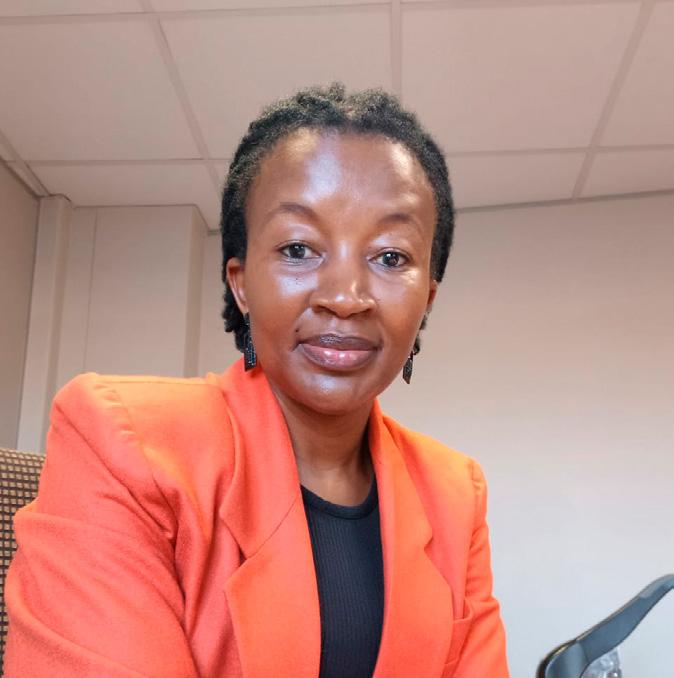
blend of visionary planning, strategic investments, and grassroots impact. Their mission is clear: to build an industrial hub that benefits local communities, advances the green economy, and positions Limpopo as a leader in sustainable development.
Started in 2014 as a subsidiary of the Limpopo Economic Development Agency, the FTSEZ was born out of a need to unlock Sekhukhune’s vast
economic potential. The region’s rich deposits of platinum, vanadium, and other minerals have long been extracted for export with minimal benefit to local communities. The FTSEZ seeks to change this narrative by creating a robust industrial ecosystem that maximises local value addition.
The SEZ’s objectives align closely with South Africa’s National Development Plan and Limpopo’s Provincial Growth and Development Strategy, making it a cornerstone of the country’s broader economic agenda. >
Fast Facts
• Beginning: The work started in 2014, as a subsidiary of the Limpopo Economic Development Agency
• Location: Sekhukhune District, Limpopo Province
• Focus Areas:
» Mineral beneficiation
» Renewable energy projects (solar, hydrogen, and battery storage)
» Manufacturing (electric vehicles, pharmaceuticals, and mining equipment)
Infrastructure Investments
• R70 million Steelpoort Wastewater Treatment Works
• R65 million Steelpoort Water Treatment Project (with planned capacity expansion)
• R2 billion upgrade to the R37 and R555 main roads
• Steelpoort railway siding development to support logistics Community Impact
• Over 1,000 jobs created during initial construction
• Skills development partnerships with local TVET colleges
• Opportunities for local SMEs integrated into supply chains
Leadership Insights
• Mr. Solly Kgopong, CEO: “The FTSEZ is a blueprint for a sustainable, green economy.”
• Ms. Bunjiwe Gwebu, Executive Manager Business Development: “Through industrialisation, we aim to ensure no one is left behind.”
Future Vision
• Integration of clean energy solutions to drive industrialisation
• Development of mixed-use areas for residential and commercial purposes
• Long-term plan to revitalise Sekhukhune’s economy over the next decade
“Through projects in mining beneficiation, renewable energy, and manufacturing, we aim to revitalise Sekhukhune’s economy while ensuring no one is left behind,” explains Ms. Gwebu.
“By harnessing our mineral wealth for renewable energy applications, we are creating a sustainable industrial future for Limpopo and South Africa as a whole.”
– CEO, Mr. Solly Kgopong
At the heart of the FTSEZ’s strategy is its ability to integrate upstream and downstream mineral value chains with associated energy projects. This allows it to serve as a centralised hub for mineral beneficiation and advanced manufacturing. Key industries within the SEZ include fuel cell plants, a platinum refinery, stainless steel magnetite processing, and fabricated metal product manufacturing.
The SEZ’s focus on clean energy infrastructure is particularly noteworthy. Solar, biodiesel, battery storage, and hydrogen facilities are being developed to support mining and industrial operations across the region. These initiatives not only reduce reliance on traditional energy sources but also establish Limpopo as a leader in renewable energy innovation.
The FTSEZ’s development is underpinned by significant investments in infrastructure. These investments aim to create a conducive environment for businesses while addressing critical local needs. The Limpopo Department of Economic Development, Environment,
and Tourism allocated R35 million for project development in the 2021/2022 financial year, enabling progress in key areas.
Major infrastructure projects include:
• The R70 million Steelpoort Wastewater Treatment Works, which enhances environmental sustainability.
• The R65 million Steelpoort Water Treatment Project, with plans to expand capacity to meet growing industrial and community demand.
• The R2 billion upgrade to the R37 and R555 main roads, improving connectivity for industrial logistics and local travel.
• The Steelpoort railway siding development, a key enabler for bulk mineral transport.
In addition to industrial projects, the FTSEZ has plans for mixed-use developments, including residential areas and community facilities, ensuring a balance between economic and social needs.
Mr. Kgopong and Ms. Gwebu have been instrumental in the SEZ’s success. With extensive experience in project management and strategic planning, they bring a combination of technical expertise and community-focused leadership to the FTSEZ.
“Through our focus on green industrialisation, we are not only creating jobs but also ensuring that the Sekhukhune region becomes a model for sustainable development in Africa,” says Mr. Kgopong. Under their leadership, the SEZ has attracted investment partners and established itself as a hub for economic innovation.
The FTSEZ places community development at the centre of its
operations. With over 1,000 jobs created during the construction phase, the SEZ is a beacon of hope for a region grappling with high unemployment rates.
Beyond employment, the FTSEZ is investing in skills development through partnerships with local TVET colleges and universities. These programmes equip residents with the technical skills needed to participate in the SEZ’s industries, creating a pipeline of talent for future growth.
Small and medium enterprises (SMEs) are also being integrated into the SEZ’s value chains. By offering opportunities to local entrepreneurs, the SEZ ensures that its benefits extend beyond large corporations to smaller businesses and communities.
The FTSEZ’s commitment to green industrialisation sets it apart. As part of its core operations, renewable energy
projects are designed to reduce carbon emissions while enhancing energy security. These projects also support the development of critical components for hydrogen energy and electric vehicles.
“By harnessing our mineral wealth for renewable energy applications, we are creating a sustainable industrial future for Limpopo and South Africa as a whole,” says Mr. Kgopong.
The SEZ’s integration of renewable energy with traditional industries underscores its role as a pioneer in balancing economic growth with environmental stewardship.
With 10 investment and development partners and 8 active projects in the pipeline, the FTSEZ is a testament to the power of collaboration. Recent projects include chrome beneficiation, hydrogen energy component assembly, and electric vehicle production, which
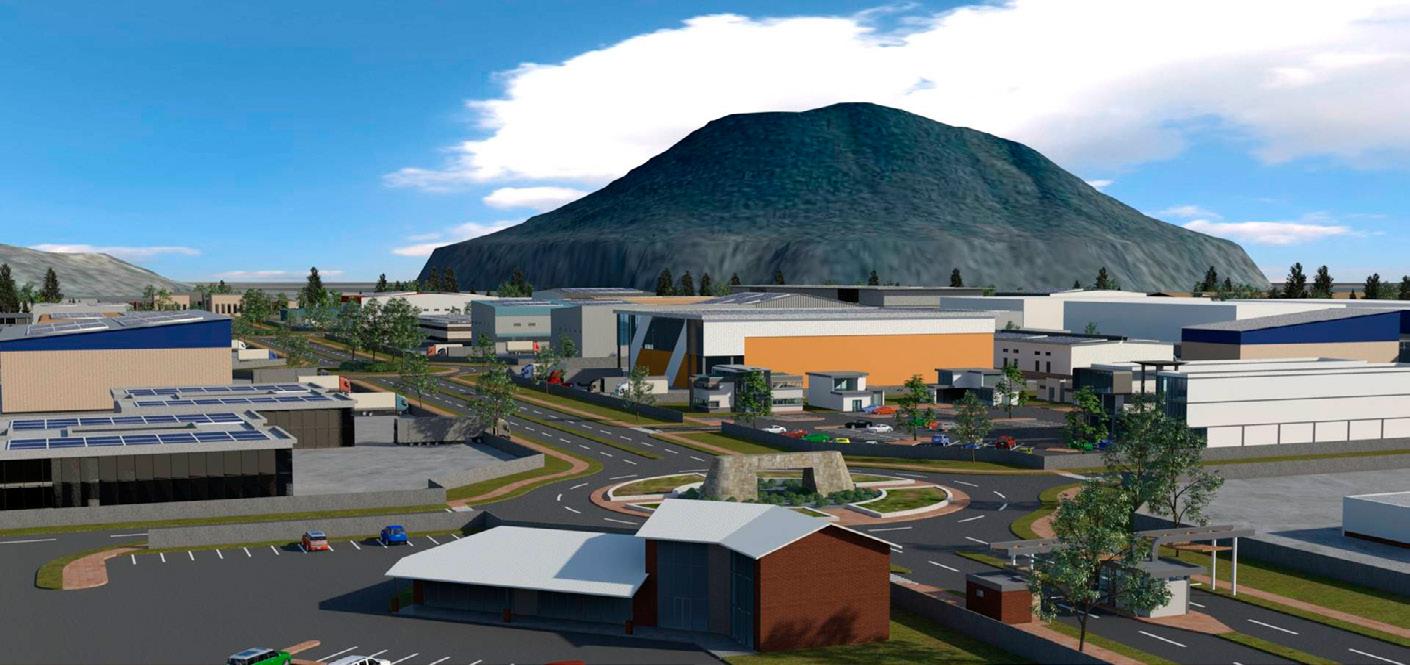
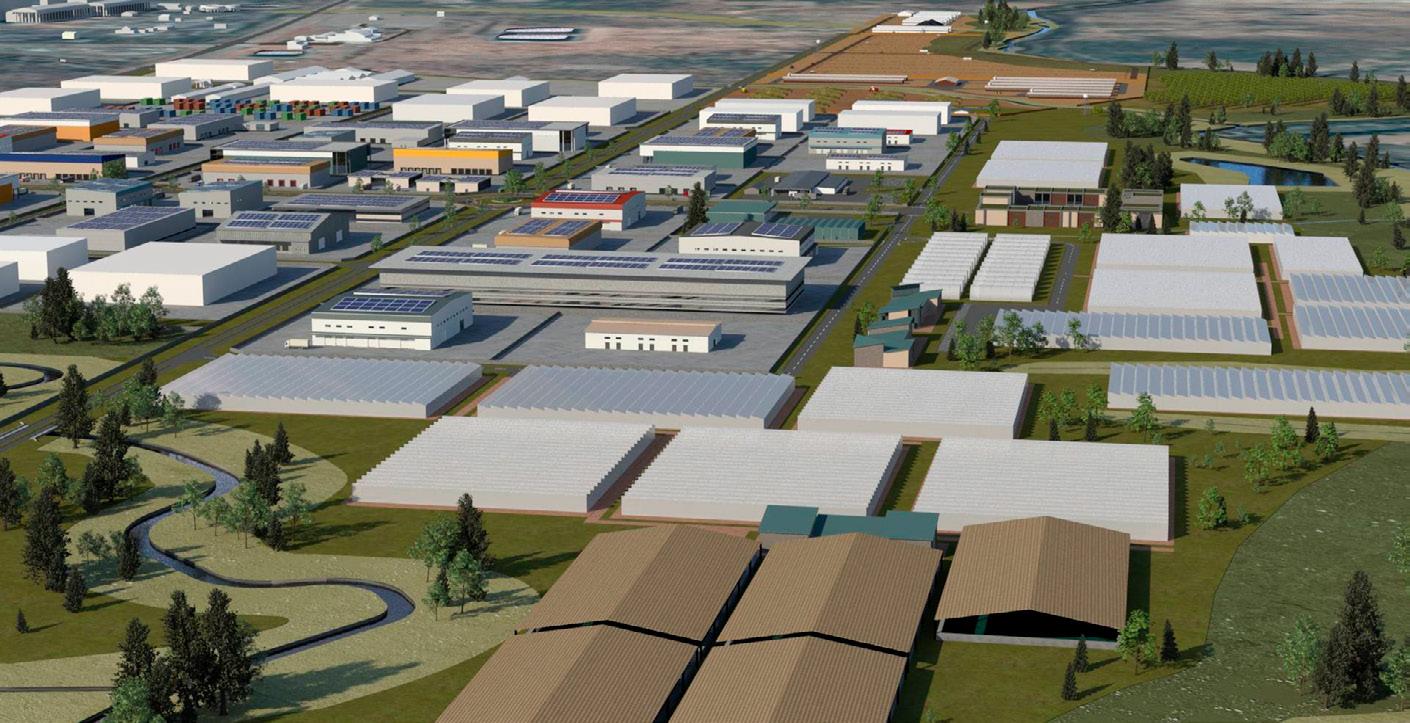
highlight the SEZ’s diverse economic base.
The SEZ has also attracted global interest. Representatives from the FTSEZ recently participated in the Invest in African Energy 2024 event, showcasing opportunities to international investors. Such engagements reinforce the SEZ’s position as a gateway to African markets.
Like any ambitious initiative, the FTSEZ faces challenges. Securing sustained funding, managing community expectations, and navigating regulatory complexities require robust strategies. However, the SEZ’s leadership remains confident in its ability to overcome these hurdles.
“We ask for patience and support from our people,” says Kgopong. “In the next five to ten years, Sekhukhune’s economy will be revitalised.”
As it progresses, the Fetakgomo-Tubatse SEZ continues to set a high bar for sustainable economic development. Its focus on local beneficiation, renewable energy, and community upliftment provides a roadmap for other regions in South Africa.
Under the visionary leadership of Mr. Kgopong and Ms. Gwebu, the FTSEZ is transforming Sekhukhune into a vibrant hub of economic activity and innovation. More than just an industrial project, the SEZ is a symbol of what can be achieved through strategic investment, collaboration, and an unwavering commitment to people and the planet.
As the FTSEZ grows, it is not only unlocking the potential of Limpopo but also inspiring a future where economic progress and environmental sustainability go hand in hand.

For over 50 years, Tsebo has been a trusted leader in providing Integrated Workplace Management Solutions. Our legacy is built on sustainability, empowering people, uplifting communities, and delivering lasting valueensuring a workplace that works for you.
We create safe, innovative, and collaborative environments across industries - from offices and hospitals to schools, mines, and events. Our bespoke solutions foster thriving spaces so you can focus on what you do best.


WE
DEVELOP PEOPLE, TO SERVE PEOPLE, TO UPLIFT SOCIETY.



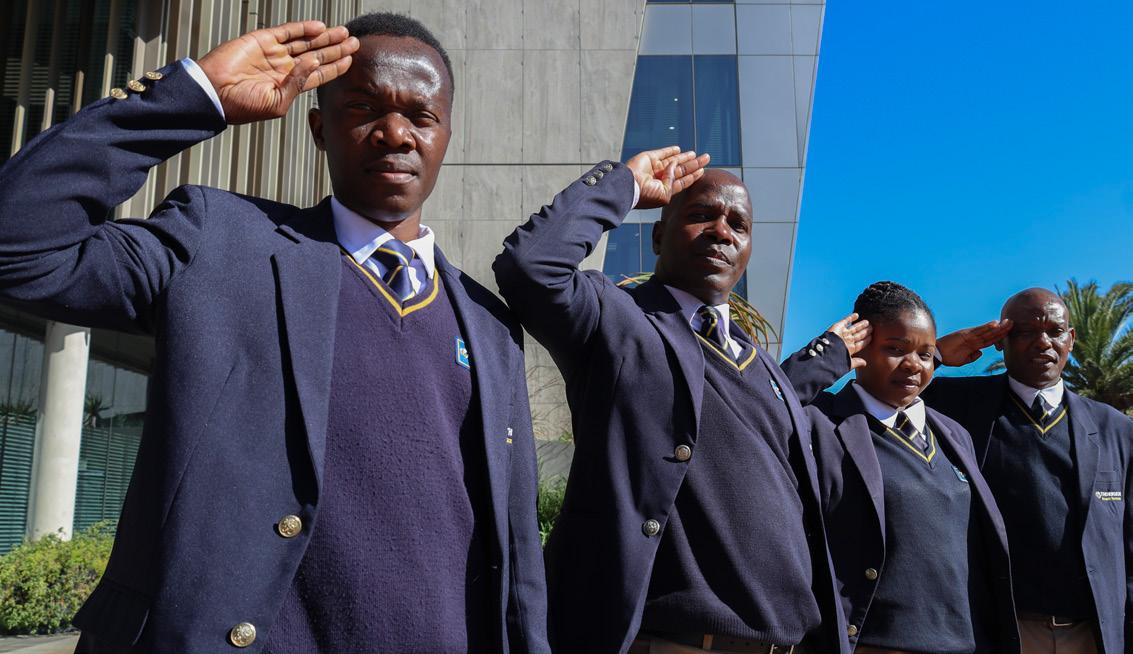

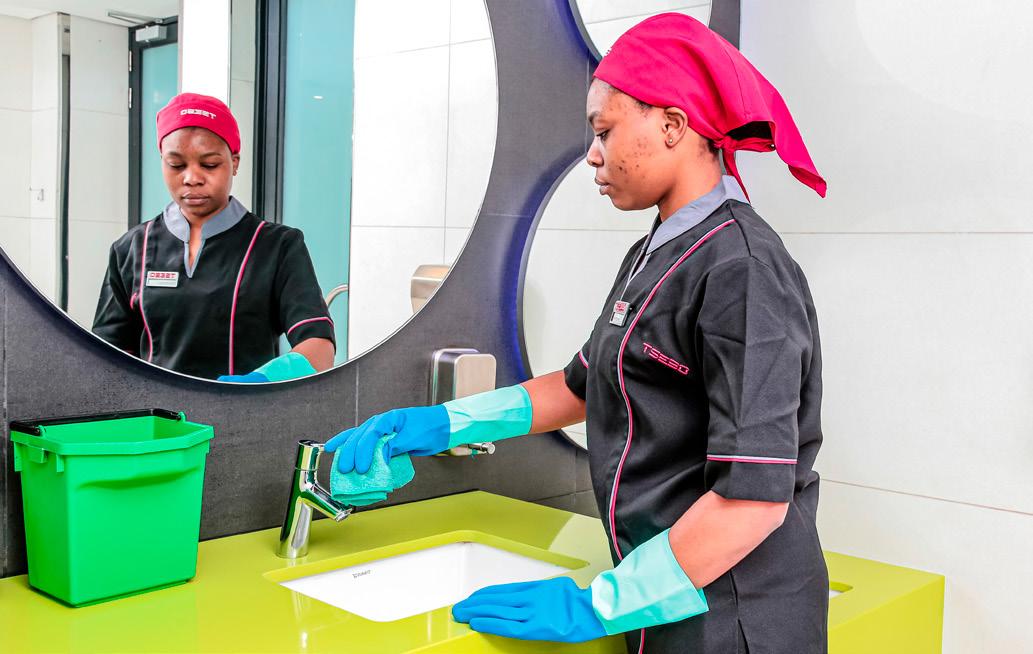



In today's fast-paced world, smart mobility is no more a construct, it is essential to who we are as people, environment and development. The efficient delivery of services is of utmost importance in both the public and private sectors, and it symbolises the future of transportation, logistics, and fleet management embracing mobility.
Smart mobility, as a concept, integrates all modes of transportation and infrastructure and is essential to the movement of people, products, and services from one location to another. Through mobility, movement and transportation must be made environmentally friendly to support the developmental agenda and sustainability for future generations.
At the recent Smarter Africa Mobility Summit, which was held in the
Gallagher Estate in Midrand and co-hosted by the Gauteng Roads and Trasport Department (GDRT), g-FleeT Management, and Gautrain in collaboration with Vuka Group, the idea of smart mobility was central.
The phenomenon calls on all of us to reimagine the future, especially in our transport, logistics, and fleet management sectors, and how we can use our fleet to take care of us and as we too reciprocate it back to our fleet.
Without doubt, there is a need for both the public and private sectors to gradually introduce electric vehicles (EVs) in their fleet or pool.
Smart mobility integrates all modes of transportation and infrastructure and is essential to the movement of people, products, and services from one location to another.
Amid a global push to decarbonize transportation, driving towards a greener future, decarbonizing transport in South Africa presents a significant opportunity to reduce emissions. However, the industry faces difficulties switching to low-carbon alternatives since there are not many reasonably priced EVs on the market. These systemic inefficiencies from fragmentation and barriers to financing and technological capability require collective collaboration by the stakeholders in the sector to make the transition smooth for all the role-players to participate in the value chain.
The emergence of new energy vehicles with a low carbon footprint in the transportation industry is the future, as it opens to building skills and expertise in new EVs that would lead to a low carbon footprint in the transportation industry. This also presents a market that needs to be pursued in terms of unlocking opportunities through research, development, and innovation in areas such as lithiumion battery facilities, mobility in the hydrogen programme and skills development in energy storage, among others.
However, the sector faces challenges in transitioning to low-carbon alternatives due to the limited availability of affordable, suitably sized electric vehicles, systemic inefficiencies from fragmentation, and constraints in access to financing and technical capacity.
The Gauteng Government is committed to supporting various initiatives and providing platforms for new sources of growth in various sectors of the economy, such as energy, logistics, and mobility. Smarter Mobility Africa Summit is one of the platforms where EVs were exhibited during the three-day event. g-FleeT Management partnered with BMW to bring onboard EVs that were showcased and driven by senior government officials for the duration of the week. This gesture demonstrates how the g-FleeT values the importance of the EVs in the transportation sector, including their role in the environment.
The Summit was instrumental in launching Gauteng’s leg of the October Transport Month (OTM) campaign, themed “Growing Gauteng Together Through Smart Mobility." The theme inspires transformation towards integrated smarter mobility and embraces the new urban era through smarter mobility sectors locally and internationally.
The Gauteng government’s smart mobility initiative is designed to enhance supply chain performance and efficiency, thereby ensuring that public services are delivered effectively to all citizens.
The OTM campaign is an annual flagship of the GDRT, which encourages all role players in the transport sector to raise awareness and highlight the significant role that the transport sector is playing. Efforts to reform the transport sector in partnership with the automotive industry to address inefficiencies and the bottlenecks need to be taken seriously in order to collectively explore potential solutions. We need to be in this together to effectively address all social and
economic challenges, which we must embrace as opportunities.
The Gauteng government’s smart mobility initiative is designed to enhance supply chain performance and efficiency, thereby ensuring that public services are delivered effectively to all citizens. Growing Gauteng Together through Smart Mobility is a vision that encapsulates a broader agenda that prioritises key sectors such as transport, logistics, education, health, infrastructure, and economic development.
Smarter Mobility Summit presented investment projects that seek to take the province of Gauteng as an economic hub to a greater height. These transport mega-investment projects are the Gauteng Limpopo Rail Link, Green Hydrogen initiatives in the transport sector, and the PWV15/K94 interchange, which involves the construction of a new freeway, the PWV15 linking the R21 to the east of the OR Tambo international airport to the N3 freeway (34.6 km in total), among others.
These projects seek to drive innovation and impact in the roads and transport sector, particularly with smart mobility at the center in support of economic development as well as supporting the work force and the environment
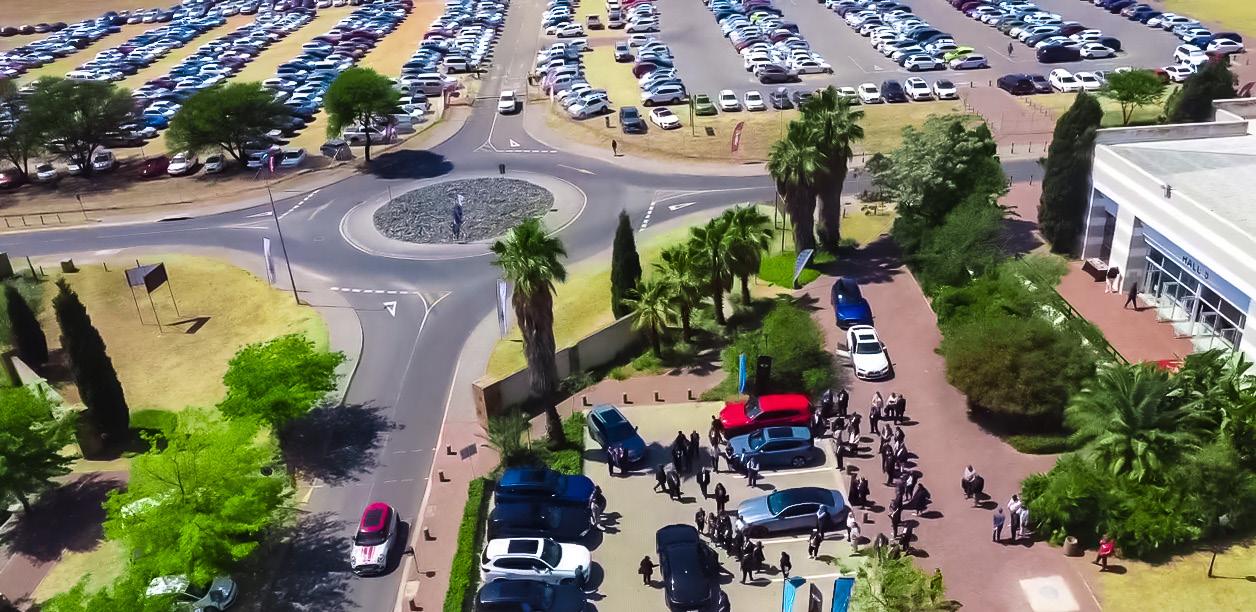
Blue Downs | Cape Town

CentralBlue offers a wide range of home options to suit every lifestyle. Choose from the sleek Indigo Heights apartments (completed), charming Emerald Place freestanding village homes (move-in ready), or the ecofriendly eHomes at Ochre Village (ready by March 2025). With the On Tucker development starting by late 2024, the possibilities keep growing!
CentralBlue goes beyond homes, with a new shopping center and private school on the way, plus a preschool opening soon. This is where convenience meets lifestyle – experience high-quality living at CentralBlue!


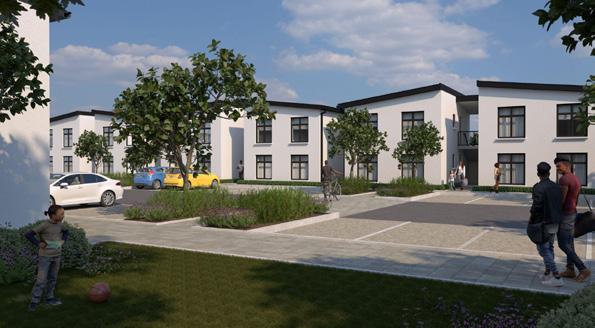
2 Bedrooms
50 square meters from R835 000
2 Bedroom lock-up-and-go flats
Safe and convenient location
Perfect for young professionals, families, or couples
Modern amenities and finishes
Easy access to essential amenities and transportation
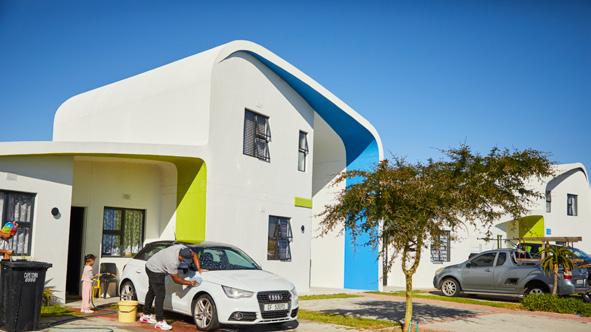
2 & 3 Bedrooms
48 & 71 square meters
Now from R925 000
Thermally insulated townhouses
Free appliances: TV, fridge, and washing machine included!
Ideal for couples, small families, or those seeking extra space
Open-plan living with modern design maximizes natural light and airflow
Private gardens
Storm-resistant durability
Easily add rooms or modify your space as needed
Save money on heating and cooling




2 & 3 Bedrooms
49 & 61 square meters from R995 000
Freestanding, contemporary houses
Perfectly suited to first-time buyers and families
Standard with a parking bay
Communal play area in a gated complex
Close to schools and transport
On-trend finishings and cupboards
The Council for Scientific and Industrial Research (CSIR) stands as a beacon of innovation, transforming South Africa through groundbreaking research and technological advancements. For decades, this organisation has been instrumental in addressing some of the country’s most pressing challenges, from fostering industrial growth to driving socioeconomic development.
Under the leadership of CEO Dr. Thulani Dlamini, the CSIR has navigated economic constraints with strategic foresight and determination. Its contributions to science, technology, and innovation continue to align with national priorities, including the goals of the National Development Plan (NDP), which envisions a capable state and an inclusive economy.
In a recent Roundtable meeting with the media, Dr Dlamini unpacked the CSIR’s 2023/2024 achievements, focusing on its financial performance, human capital development, industrialisation efforts, and contributions to community and environmental sustainability.
The CSIR’s financial results for the 2023/24 fiscal year are a testament to its resilience. For the first time, the organisation exceeded R3 billion in revenue, achieving a turnover of R3.179 billion against a target of R3.05 billion. This milestone was accompanied by a net profit of R36.7 million, a significant improvement from the projected loss of R38 million.
By fostering partnerships and investing in human capital, the CSIR is shaping a future where science and technology are catalysts for societal transformation.
Income diversification has been a critical driver of this success. Over the past five years, international income increased by 142%, reaching R200.8 million, while private sector income grew by 28%, standing at R232.1 million. Despite these gains, parliamentary grants - a vital funding source - have declined by 6% in nominal terms since 2019, posing a challenge to the CSIR’s long-term financial sustainability.
Dr. Dlamini emphasised the importance of adequate funding to maintain the CSIR’s capabilities. “Operating in an environment where the economy is not growing and fiscal resources are constrained places significant
pressure on the organisation,” he stated, underscoring the need for government support.
Central to the CSIR’s mandate is its role in reindustrialising South Africa. Through technological advancements, the organisation seeks to enhance the competitiveness of key industries while addressing societal needs. In 2023/24, the CSIR implemented 184 projects to strengthen state capabilities and delivered 77 new technology demonstrations, far exceeding its targets.
1. Healthcare Innovations: During the COVID-19 pandemic, the CSIR developed and manufactured 18,000 Continuous Positive Airway Pressure (CPAP) ventilators to address critical healthcare needs. The organisation also created the National COVID-19 Vaccination Certificate System, enabling seamless vaccination tracking and compliance.
2. Smart Infrastructure: Applications like Block Watch, an AI-driven crime monitoring tool, are transforming urban safety. Additionally, smart city solutions for reporting potholes and faulty infrastructure are improving service delivery and community engagement.
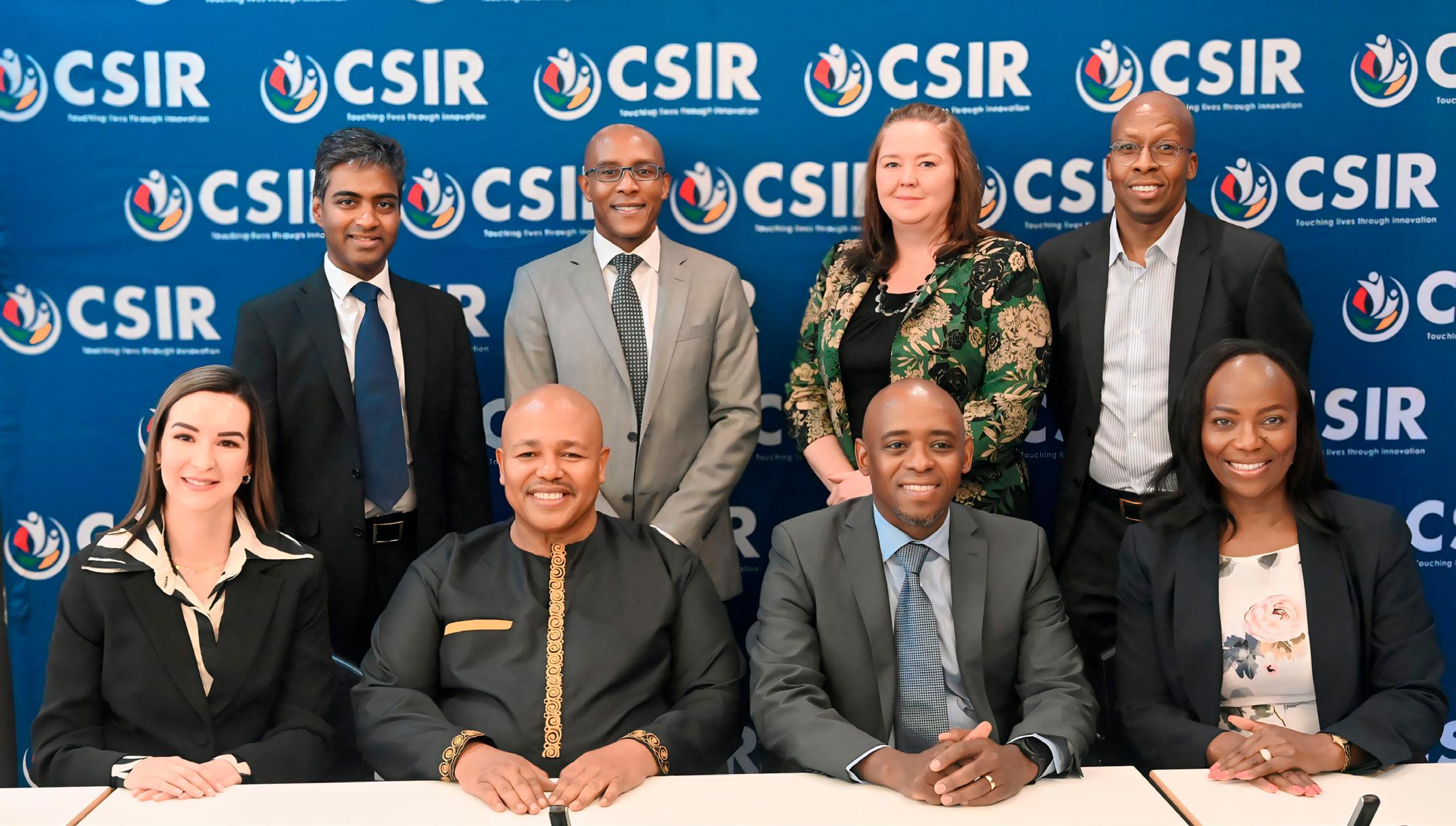
The CSIR’s collaboration with FarmSol Holdings has introduced precision agriculture tools, including drones and satellite technology, to optimise input costs and improve crop yields. This initiative directly supports emerging farmers across South Africa’s provinces.
In addition to these innovations, the CSIR has developed sustainable proteins for the fishing industry and established a foundry centre to bolster manufacturing. These efforts align with its mission to promote industrial growth while addressing environmental and economic challenges.
To accelerate the commercialisation of its intellectual property, the CSIR launched CSIR C3, a dedicated enterprise aimed at connecting technologies with investors and entrepreneurs. This platform serves as a bridge between research outputs and market adoption, ensuring that innovations reach industries and communities that need them most. >

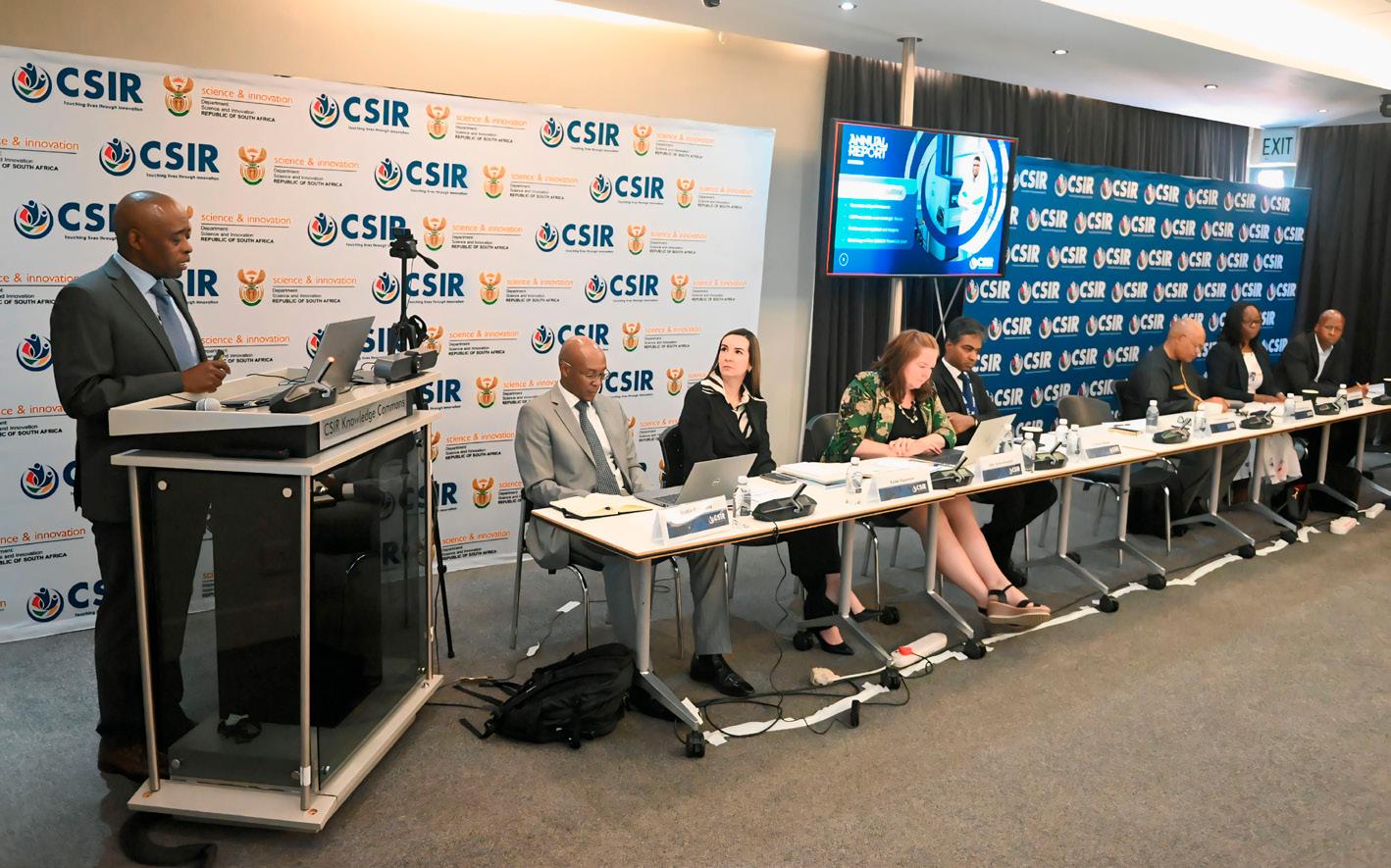
Dr. Dlamini highlighted the importance of partnerships in this endeavour. “Commercialising some of our technologies requires up to R500 million in investment, so finding the right entrepreneurial and financial partners is critical,” he said.
The CSIR's focus extends beyond South Africa, with ambitions to
expand the organisation’s footprint across the African continent. By engaging with local and international stakeholders, the CSIR aims to maximise the societal and economic benefits of its innovations.'
The CSIR’s commitment to human
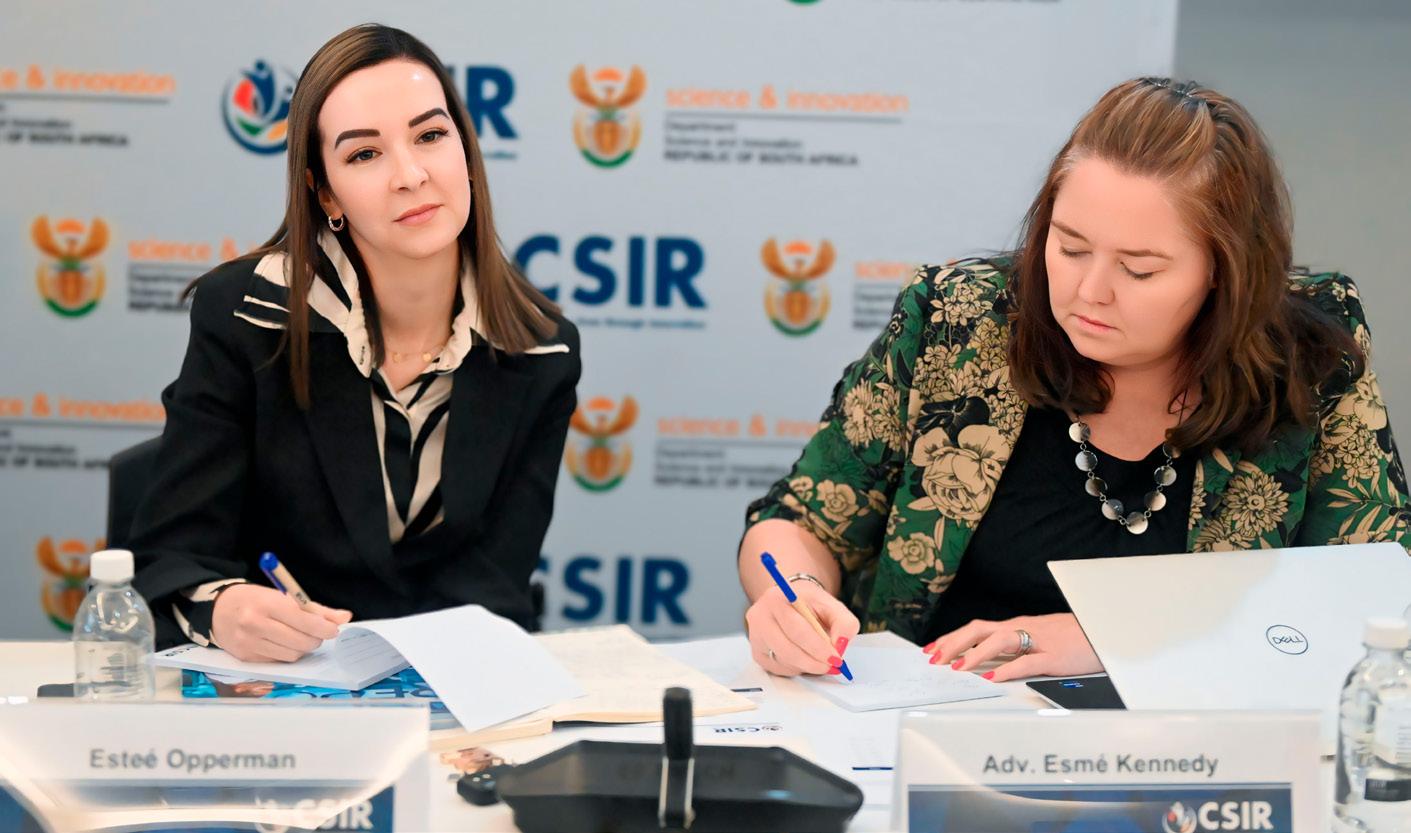
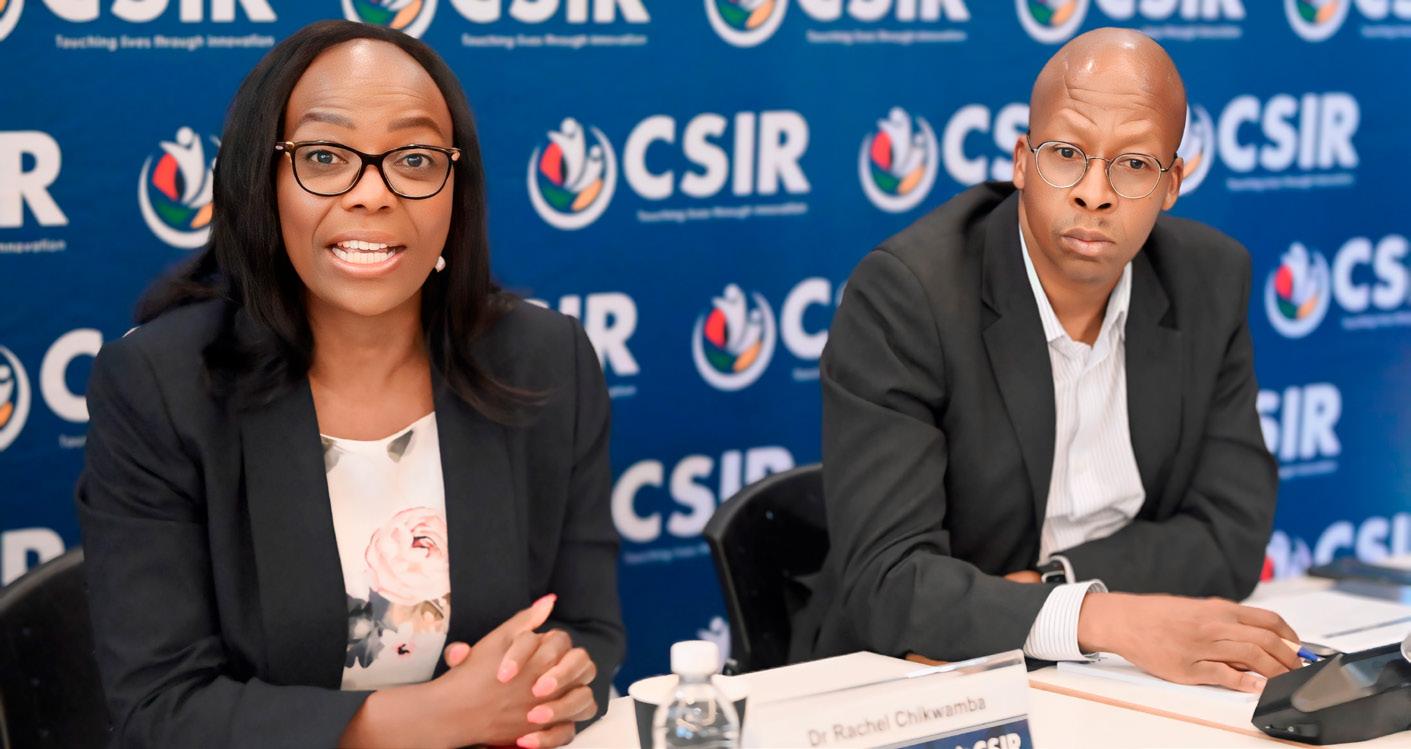
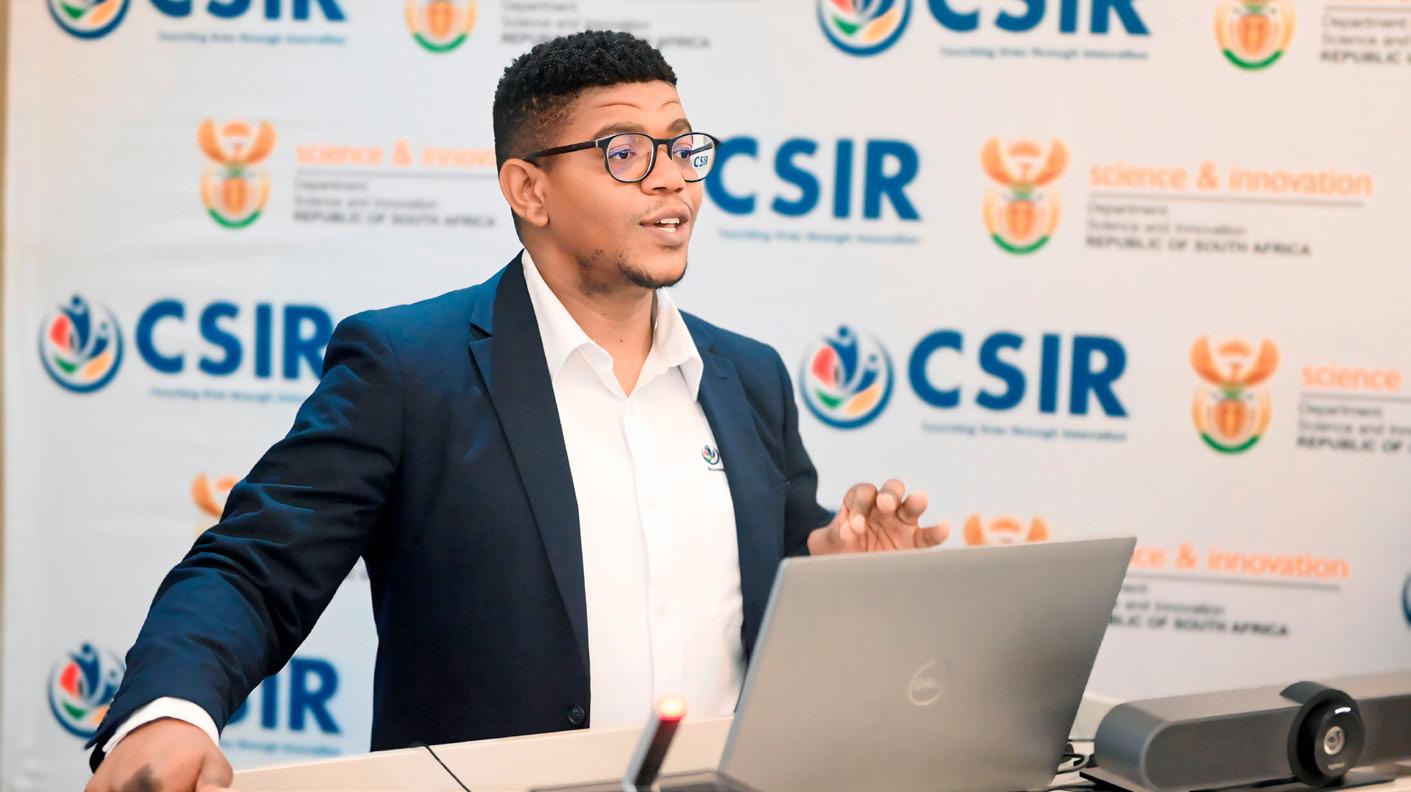
capital development is a cornerstone of its strategy. Recognising the importance of a skilled and diverse workforce, the organisation has implemented various initiatives to nurture talent in science, technology, engineering, and mathematics (STEM).
In 2023/24, the CSIR supported 408 students through bursaries and welcomed 97 participants into its graduate training programme. These initiatives aim to expand the pool of highly qualified individuals in STEM fields, with a particular focus on underrepresented groups.
The organisation also collaborates with TVET colleges to establish modular training facilities, known as learning factories. These centres provide handson experience in advanced technologies, including robotics, artificial intelligence, and blockchain, equipping students with skills that are critical for the future of work.
The CSIR has exceeded its targets for diversity within its workforce. Black employees now constitute 72% of its Science, Engineering, and Technology (SET) staff, while women account for 39%. The Accelerated Researcher Development Programme has further advanced the careers of black and female researchers, ensuring that leadership roles reflect South Africa’s demographic diversity.
In addition, the organisation’s Youth Employment Service (YES) initiative provided job opportunities for 68 young people in 2023/24, many of whom were placed in small and medium-sized enterprises (SMMEs). Such programmes underscore the CSIR’s commitment to empowering the next generation of innovators.
The CSIR’s impact extends beyond technological innovation to include significant contributions to socioeconomic development. Its alignment with the NDP ensures that its work addresses South Africa’s most urgent challenges, from poverty reduction to job creation.
The CSIR’s support for SMMEs is a vital component of its socioeconomic strategy. In 2023/24, the organisation assisted 179 SMMEs, exceeding its target of 86. These enterprises play a critical role in driving economic inclusion, with many being black youth or women owned.
Over the past year, the CSIR implemented numerous projects aimed at strengthening state capabilities. For example, its fingerprint identification system for forensic pathology is now operational in Gauteng and Limpopo, streamlining processes in critical state functions. Similarly, AI-driven tools like Block Watch are improving safety in urban areas.
“Achieving over R3 billion in revenue is more than a financial milestone - it’s a testament to our ability to adapt, innovate, and sustain impact despite economic pressures.”- Dr. Thulani Dlamini, CEO
Sustainability remains a core focus for the CSIR. The organisation’s R&D efforts address critical global challenges, including climate change, resource management, and food security.
1. Food Waste to Fertiliser: The CSIR has developed a technology that converts food waste into biocompost, offering an eco-friendly and cost-effective alternative for agricultural fertilisation. This initiative reduces waste while supporting sustainable farming practices.
2. Energy Efficiency: The organisation continues to explore renewable energy solutions and smart infrastructure systems, contributing to South Africa’s transition toward a low-carbon economy.
By integrating sustainability into its projects, the CSIR ensures that its innovations have a lasting positive impact on both the environment and society.
Dr. Thulani Dlamini’s leadership has been instrumental in the CSIR’s achievements. With extensive experience in research and innovation, he has guided the organisation through a period of significant growth and transformation. His strategic vision emphasises
collaboration with government, industry, and academia to maximise the CSIR’s impact.
Looking ahead, Dr. Dlamini envisions the CSIR expanding its influence across Africa while continuing to make a difference at the grassroots level in South Africa. “The CSIR’s role is to create technologies and solutions that not only support industrial growth but also uplift communities,” he said.
The CSIR’s achievements in the 2023/24 fiscal year reaffirm its status as a national asset. Through groundbreaking research, transformative technologies, and inclusive development initiatives, the organisation exemplifies the values of resilience, innovation, and sustainability. As South Africa navigates complex challenges, the CSIR’s contributions to building a capable and equitable state are more critical than ever. By aligning its work with the NDP and leveraging its scientific expertise, the CSIR continues to pave the way for a brighter, more inclusive future.
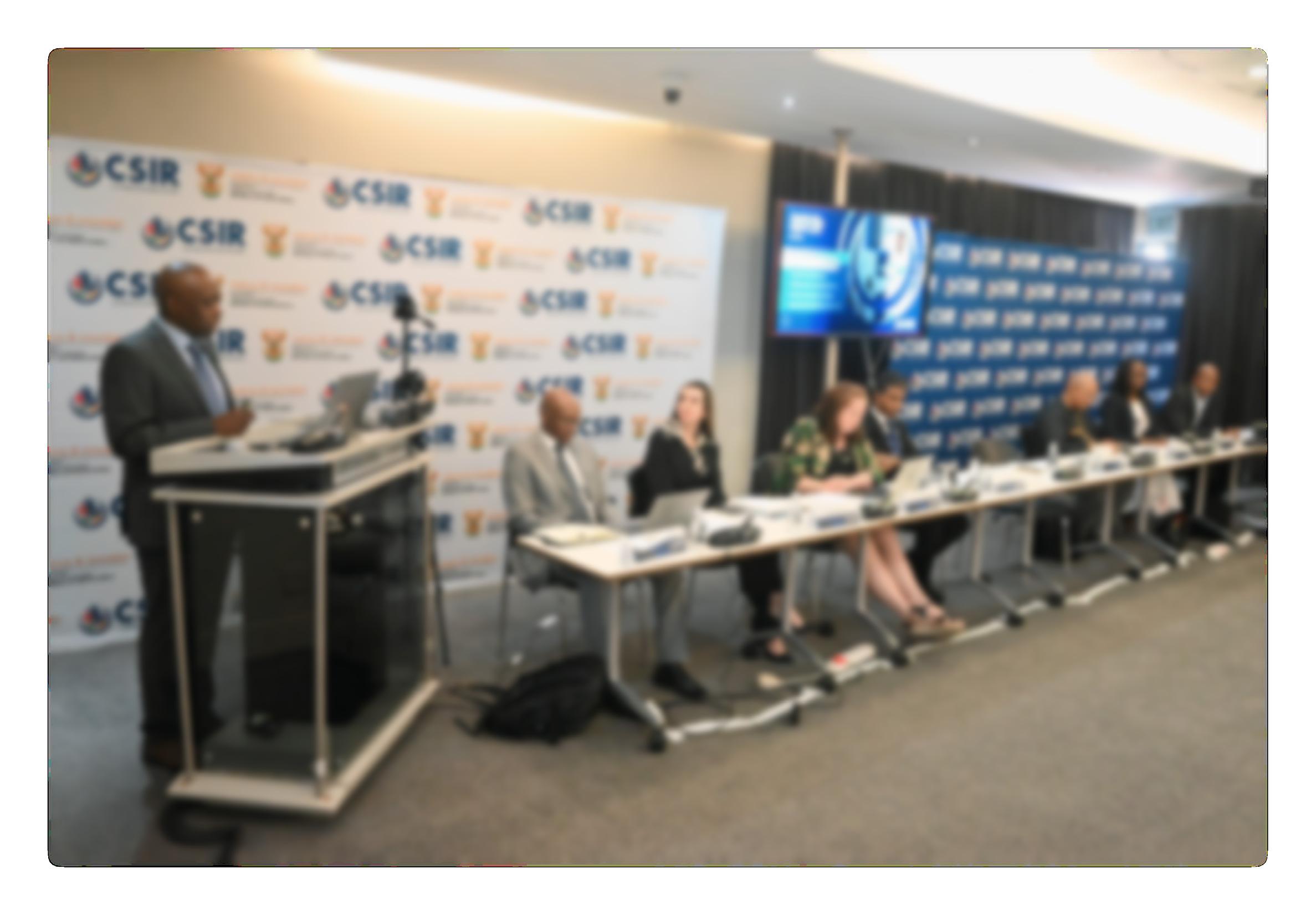

Isivuno Auctions Afrika is redefining how auctions are conducted in South Africa. With a commitment to transparency, professionalism, and tailored solutions, we serve as a trusted partner for businesses, government entities, and individuals looking to unlock the full value of their assets.
Under the leadership of Sipho Mzuza, we blend cutting-edge technology, expert industry knowledge, and an unwavering focus on integrity to deliver results that exceed expectations. Whether managing online auctions, on-site sales, or asset valuations, we provide a seamless experience designed to meet the unique needs of every client.

Isivuno Auctions Afrika offers a comprehensive suite of services to facilitate efficient, ethical, and successful auctions across diverse sectors:
• Government Auctions: Compliant asset disposal processes for surplus vehicles, equipment, and other public assets. We ensure transparency and adherence to regulations.
• Corporate Auctions: Tailored auction strategies to help companies optimise the return on their surplus or underperforming assets, including office equipment, industrial machinery, and real estate.
• Community-Centric Initiatives: Empowering communities by offering accessible platforms for participation in auctions, ensuring inclusivity and local economic development.
With decades of combined experience, we understand the auction landscape like no other, making us a partner of choice for entities seeking efficiency, fairness, and maximum asset recovery.
At Isivuno Auctions Afrika, we go beyond the hammer and gavel to provide innovative, value-driven services:
• Cutting-Edge Technology
Our online auction platform offers convenience and security, enabling clients and bidders to participate from anywhere. With user-friendly interfaces and realtime updates, we make the auction process seamless.
• Customised Solutions
We design auction strategies tailored to meet the specific needs of our clients, whether they are disposing of a fleet of vehicles, decommissioned machinery, or corporate assets.
• Expert Team
Led by seasoned professionals, our team brings unmatched expertise and attention to detail to every auction we conduct.
• Transparent Practices Trust is at the core of our operations. Our processes ensure transparency and fairness, building lasting relationships with clients and communities.
Online Auctions:
A secure and convenient digital platform for buying and selling.
On-Site Auctions:
Fully managed events, from logistics to execution.
Asset Valuation:
Expert appraisal services to determine accurate market value.
Post-Auction Reporting:
Comprehensive insights to inform future strategies.
Key Asset Categories
• Fleet and individual vehicles
• Residential, commercial, and industrial properties
• Heavy machinery and industrial equipment
• Office furniture, IT systems, and consumer goods
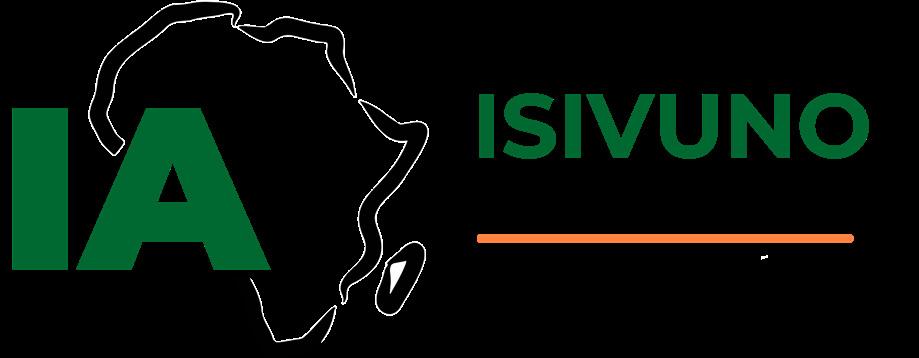
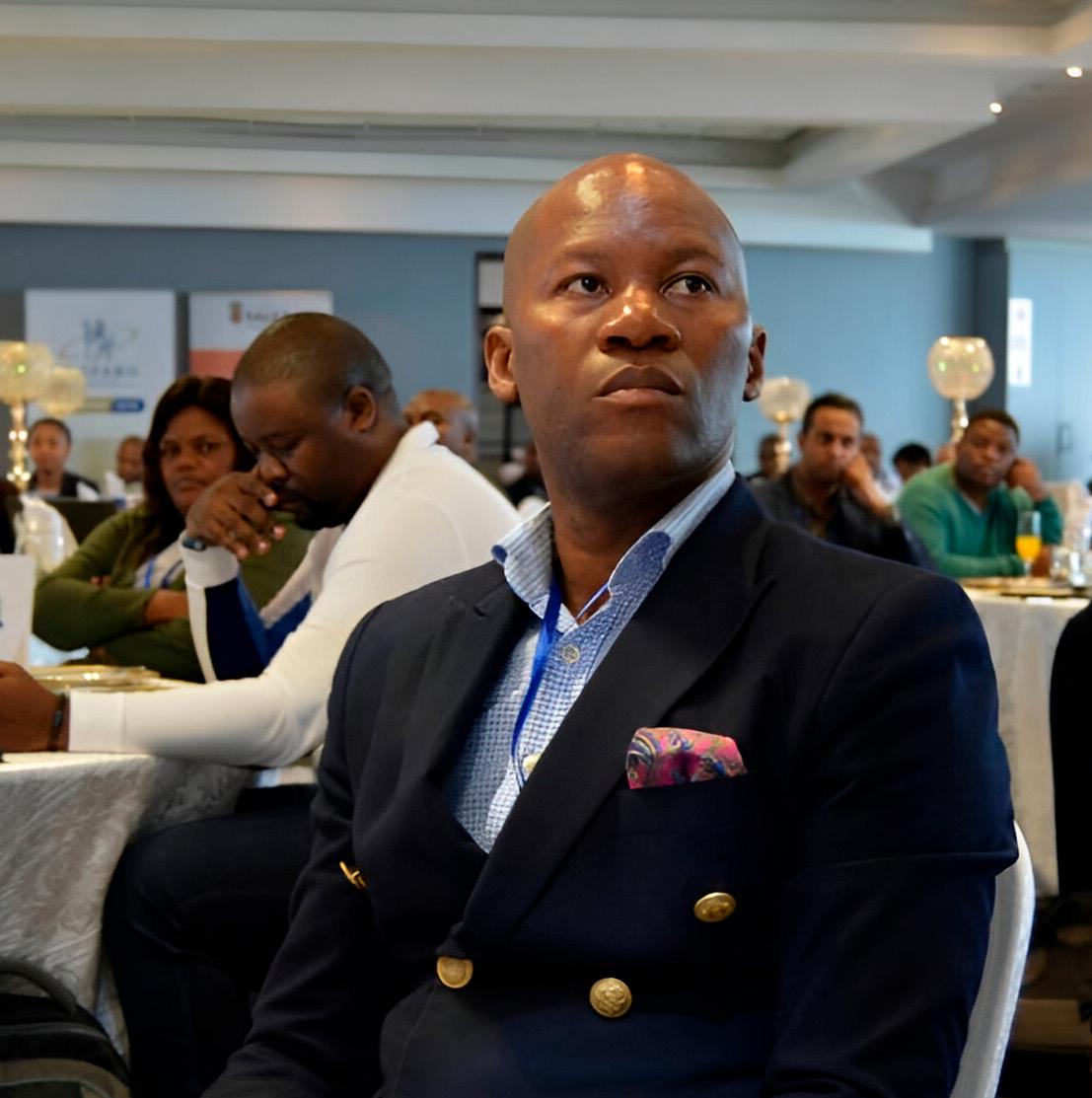
To revolutionise the auction industry in South Africa by setting a gold standard for transparency, inclusivity, and innovation. At Isivuno Auctions Afrika, we aim to empower individuals, businesses, and government entities by unlocking the true value of their assets through ethical and efficient auction solutions.
"Let Isivuno Auctions Afrika guide you through every step of the auction journey. With our expertise, innovation, and integrity, your success is guaranteed." Discover how we can add value to your business or organisation today:

Contact Information:
Website: www.isivunoauctionsafrika.co.za
Phone: 082 323 3397
Email: info@isivunoauctioneers.co.za
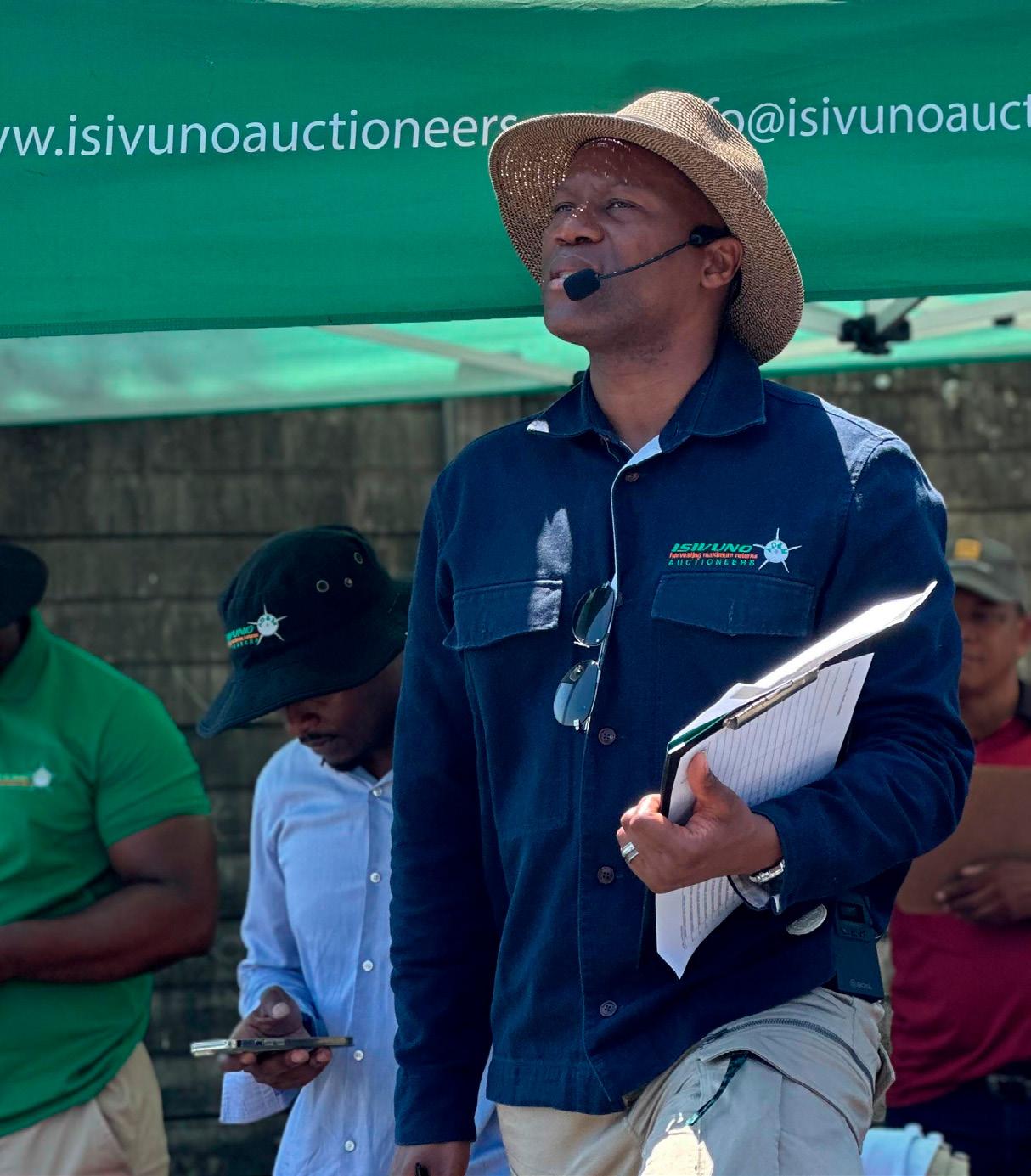
The decision to rebrand as Isivuno Auctions Afrika stems from an idea both timely and transformative: to reclaim an African identity while positioning the organisation for a broader, Pan-African mission. This shift aligns with the company’s long-term strategy to diversify its portfolio and leverage disruptive technologies to better serve the continent, beginning with the Southern African Development Community (SADC).
The decision to rebrand as Isivuno Auctions Afrika stems from an idea both timely and transformative: to reclaim an African identity while positioning the organisation for a broader, Pan-African mission. This shift aligns with the company’s long-term strategy to diversify its portfolio and leverage disruptive technologies to better serve the continent, beginning with the Southern African Development Community (SADC).
By reconnecting with its indigenous roots, Isivuno Auctions Afrika embraces its heritage while forging a modern path of innovation and inclusivity.
By reconnecting with its indigenous roots, Isivuno Auctions Afrika embraces its heritage while forging a modern path of innovation and inclusivity.
In a dynamic world where economic resilience depends on innovative solutions, Isivuno Auctions Afrika emerges as a vanguard of transformative impact. Through a visionary approach to residual value recovery, this African born powerhouse redefines what it means to create sustainable economic opportunities in our communities.
In a dynamic world where economic resilience depends on innovative solutions, Isivuno Auctions Afrika emerges as a vanguard of transformative impact. Through a vision ary approach to residual value recovery, this African born powerhouse redefines what it means to create sustainable economic opportunities in our communities.
Formerly known as Isivuno Auctioneers, the company is undergoing a bold rebrand and name change to Isivuno Auctions Afrika. This evolution reflects more than a mere change in identity it symbolises a deep rooted desire to reclaim an indigenous narrative while embracing the future.
Formerly known as Isivuno Auctioneers, the company is undergoing a bold rebrand and name change to Isivuno Auctions Afrika. This evolution reflects more than a mere change in identity it symbolises a deep rooted desire to reclaim an indigenous narrative while embracing the future.
For over two decades, Isivuno has been a trusted partner for public and private sectors, non profit organisations, and communities. Its reputation as an asset appraisal and disposal entity has made it a cornerstone of economic activity in South Africa. Now, this next chapter sets the stage for a continental impact.
For over two decades, Isivuno has been a trusted partner for public and private sectors, non profit organisations, and communities. Its reputation as an asset appraisal and disposal entity has made it a cornerstone of economic activity in South Africa. Now, this next chapter sets the stage for a continental impact.
Founded by Mr. Sipho Nzuza, Isivuno Auctions Afrika has grown from humble beginnings into a turnkey market leader in the auctioneering industry. Mr. Nzuza, an experienced and passionate principal auctioneer, established the company over two decades ago with a commitment to transparency, inclusivity, and innovation.
Founded by Mr. Sipho Nzuza, Isivuno Auctions Afrika has grown from humble beginnings into a turnkey market leader in the auctioneering industry. Mr. Nzuza, an experienced and passionate principal auctioneer, established the company over two decades ago with a commitment to transparency, inclusivity, and innovation.
His vision laid the foundation for the company’s transformative journey, culminating in its current evolution. Under Mr. Nzuza’s stewardship, the company
His vision laid the foundation for the company’s transformative journey, culminating in its current evolution. Under Mr. Nzuza’s stewardship, the company
WEBSITE: www.isivunoauctionsafrika.co.za
PHONE: 031 065 1037 082 323 3397
EMAIL: info@isivunoauctioneers.co.za
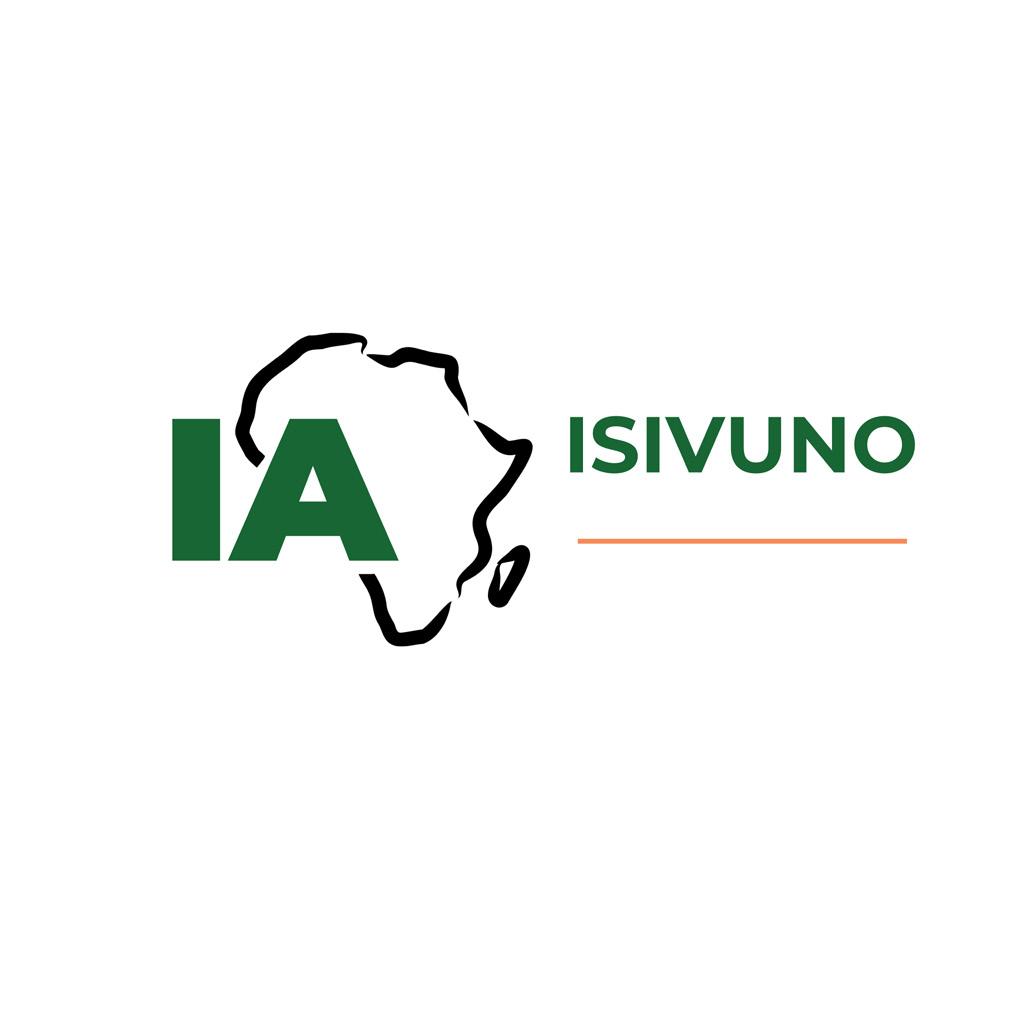

ADDRESS: 06 Hamilton Crescent Gillitts, KZN
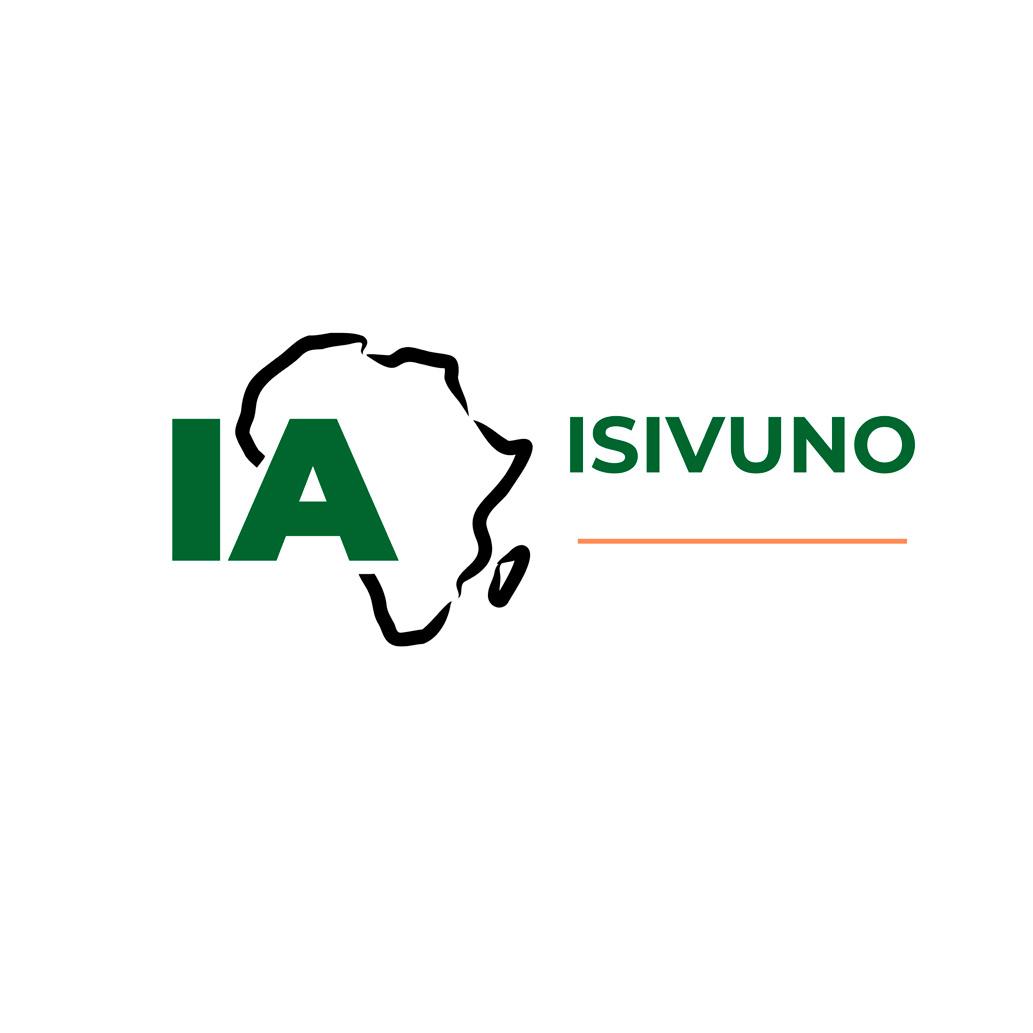

Every item, from vehicles to office furniture, possesses untapped worth. However, the challenge lies in unlocking this residual value effectively. This is where Isivuno Auctions Afrika excels, leveraging cutting edge auctioning systems, expert market insights, and a deep commitment to sustainability. Their approach doesn’t just recover value it multiplies it.
Through strategic partnerships with national and local governments, the organisation has pioneered new benchmarks in auction transparency, efficiency, and equity. Their method ensures that every auction tells a story, not just of a sale, but of renewed purpose and progress.
At its heart, Isivuno Auctions Afrika believes in inclusive growth. While online auction platforms drive accessibility and convenience, the company does not shy away from the vibrant tradition of live onsite auctions. These events are more than just sales they are where diverse cultures converge, united in the shared excitement of finding value and opportunity.
The synergy of these gatherings’ echoes unity, where communities meet, bid, and celebrate the thrill of the process. It’s a moment brought to life by the principal auctioneer, whose passion and precision ensure every auction is a job well done.
The ripple effect of these efforts is undeniable: more businesses thrive, more families prosper, and more communities flourish. This ethos resonates with public sector procurement officers and leaders alike, aligning perfectly with South Africa’s vision of a developmental state.
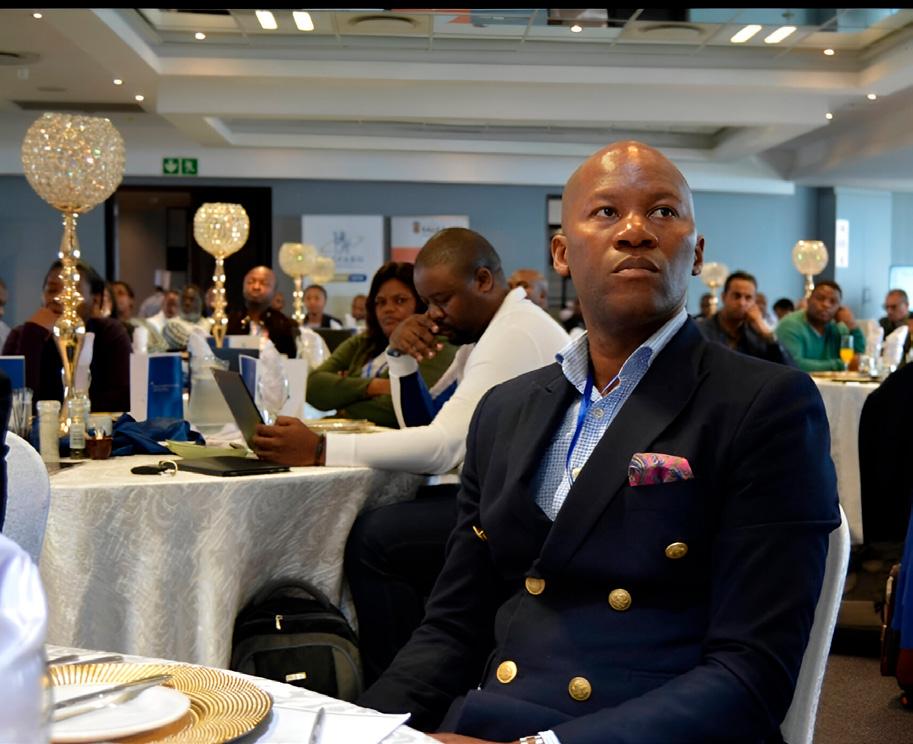
"Isivuno Auctions Afrika exemplifies the very best of African ingenuity, resilience, and ambition. The rebrand reflects a bold vision—one that com bines heritage and progress to deliver lasting impact. In a global landscape of uncertainty our work serves as a beacon of possibility,—not just for the nation, but for the entire continent. By partnering with Isivuno Auctions Afrika, govern ments and businesses don’t just sell assets—they invest in the future, one auction at a time."
- Sipho Nzuza, CEO
Innovation is the cornerstone of Isivuno Auctions Afrika’s success. Their user-friendly online auction platforms offer unparalleled access to government assets. Intuitive interfaces, secure payment systems, and real-time bidding ensure a seamless experience, attracting a diverse audience from urban centers to remote rural areas.
The use of data analytics and artificial intelligence has further enhanced their efficiency. By analysing market trends, the company ensures optimal pricing strategies while predicting buyer behavior, which ensures higher returns for the public sector.
In an era of heightened environmental consciousness, the company’s commitment to green practices sets it apart. Reselling, reusing, and recycling government assets reduces waste while fostering a circular economy. This vision aligns with global calls for sustainability, proving that economic growth and environmental stewardship can go hand in hand.
With its rebranding as Isivuno Auctions Afrika, the company is set to expand its footprint across the continent, integrate advanced technologies, and continue uplifting communities. By prioritising indigenous identity and innovation, the organization is charting a future where African solutions address African challenges.
The government sector is not merely a client; it is a partner in transformation. Each auction whether online or onsite is an opportunity to rewrite narratives, to take what was once considered surplus and turn it into surplus opportunity.
Isivuno Auctions Afrika offers a diverse range of services tailored to meet the needs of various stakeholders:
- Online Auctions: A secure, accessible digital platform for buyers and sellers.
- On-Site Auctions: End-to-end event management, including logistics and execution.
- Asset Valuation: Expert appraisals to ensure accurate market pricing.
- Post-Auction Reporting: Detailed insights to guide future decision-making.
- Site Preparation and Dismantling: Comprehensive support to maximize asset readiness.
KEY ASSET CATEGORIES
- Fleet and individual vehicles
- Residential, commercial, and industrial properties
- Heavy machinery and industrial equipment
- Office furniture, IT systems, and consumer goods
- Biological assets, including livestock
A trusted custodian who grows your investments for a secure retirement.


The National Fund for Municipal Workers (NFMW) is the largest fund in Local Government with approximately R30 billion in assets under management, serving a membership base of more than 56 000 (EMPLOYEES AND COUNCILLORS) across South Africa.
With a steadfast commitment to our members, we prioritise their needs in every decision and strategy we implement. Our dedication to excellence ensures minimal administration costs, maximising contributions towards retirement savings.
Achieving excellent long-term investment performance, puts us on par with the best global portfolios and ahead of our peers in Local Government. Recognised with numerous Institute of Retirement Funds Africa Best Practices Industry Awards, we set the benchmark for excellence in the retirement fund sector.
At the NFMW we go beyond financial support, offering comprehensive personal financial planning, retirement benefit counselling, and a unique health and wellness program for members and their families.
With our unwavering commitment to good governance, impactful investing yielding financially sound returns, care for our members, and responsible leadership, the NFMW assures unparalleled value to all our members.
Our focus remains on continuing to provide exceptional service to our members, ensuring their financial security and well-being. We aim to further improve our member value proposition to meet the evolving needs of our members and continue to contribute to socio-economic prosperity in various ways to positively impact the lives of our members, their families and communities today and tomorrow!



ETHEKWINI MUNICIPALITY
A historic collaboration for urban transformation
KSD LOCAL MUNICIPALITY
Hands over 10 new houses
RAND WEST LOCAL MUNICIPALITY
Standing together against GBVF
ENDUMENI LOCAL MUNICIPALITY
A new era of youthful leadership
UPHONGOLO LOCAL MUNICIPALITY
Paving the way to progress under new leadership
NELSON MANDELA BAY
Tackles non-compliant spaza shops head-on



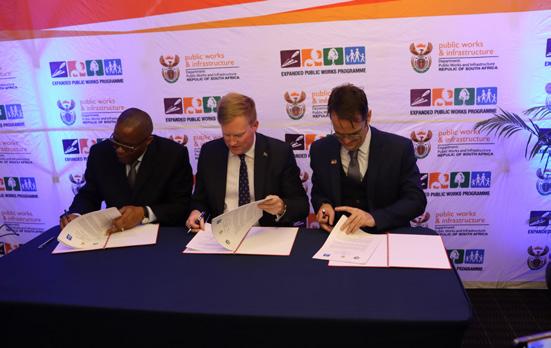
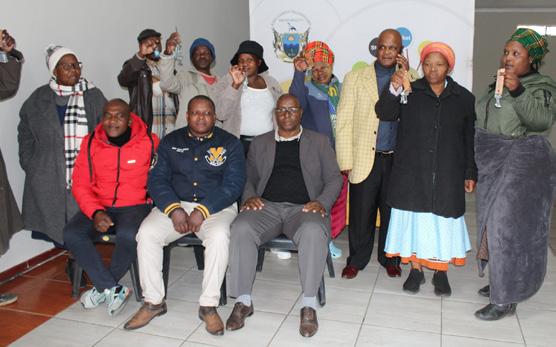




In a landmark initiative, eThekwini Municipality, along with the national and provincial Department of Public Works and Infrastructure (DPWI), has set the stage for a major urban transformation. The recent signing of a Memorandum of Understanding (MOU) marks a milestone in addressing the persistent issue of abandoned, neglected, and hijacked buildings across Durban. These structures, which have become hubs for criminal activities and deter investment, will now be converted into functional spaces through public-private partnerships, enhancing both the city’s economy and public safety.
The City of Matlosana Municipality is situated approximately 164 km South West of Johannesburg, strategically located on the N12 Treasure Route, which is the North West Province’s primary tourism corridor.
The scenic N12 starts from Mpumalanga and is the gateway to the Western Cape Province. The route takes you from eMalahleni, to the vibrant Gauteng Province and the Sterkfontein Cradle of Humankind World Heritage Site, and continues to Potchefstroom, Klerksdorp, Kimberley, Beaufort West, up until George.
Vision:
It is the Transformation of the N12 Treasure Route that has unlocked regional opportunities and resulted in massive activity and mobility along the Matlosana portion of the corridor. It has a multi-dimensional character that has created employment, enhanced commuter movement, enhanced investment opportunities, increased economic activity, etc.
WHY VISIT THE CITY OF MATLOSANA?
This initiative is led by Minister of Public Works and Infrastructure Dean Macpherson, KwaZulu-Natal MEC for Public Works Martin Meyer, and eThekwini Mayor Cyril Xaba, all of whom are committed to revitalizing Durban’s inner city. Their approach is rooted in the principle of “public assets for public good,” with the MOU providing a framework to turn vacant and neglected buildings into valuable community resources. Through a comprehensive inventory, public properties across the municipality will be identified for refurbishment, leasing, or outright handover to private investors to meet the needs of low-cost housing, student accommodation, and shelter space for vulnerable populations.
Create unforgettable memories at our quality business and leisure accommodation venues which include conferencing, wedding and spa facilities. The City has a wealth of attractions for visitors:
• Adventure tourism
• Wildlife tourism
• Medical tourism

quality business and leisure accommodation venues which include conferencing, wedding and spa facilities.
MATLOSANA AS A MEDICAL HUB
The minister expressed optimism that this policy shift would pave the way for public assets to serve communities more effectively, with an ambitious vision of transforming South Africa into a construction hub that thrives on publicprivate partnerships.
• Wellness tourism
Dean Macpherson underscored the importance of this shift, noting, “The days of state buildings standing empty, attracting crime, and chasing away investment are coming to an end.”
To us health care is of paramount importance as a healthy city is productive and constitutes prosperity. We boast well-developed medical facilities, which enhances and promotes the competitive advantage of Matlosana as a major Medical Hub in the North West Province. Services include: general and private medical fascilities, casualty/trauma and dental services. Most clinics focus on primary health care services.
hospitals, including the largest state hospital in the North West Province and 15 clinics including mobile clinics. It also boasts the only fully contained oncology unit in the North West Province, which offers a comprehensive service at four pathological laboratories and has the latest MRI scanner at the radiology unit.
has agreed to transfer ownership of all problematic properties within Durban to the municipality. This move enables eThekwini to oversee their conversion into usable spaces, directly addressing safety concerns, improving property values, and fostering economic growth.
eThekwini Municipality has grappled with the issue of abandoned and hijacked buildings, some of which have become centers of criminal activity. Through the newly established MOU, the DPWI
Among the properties slated for redevelopment are the notorious West Point Building along Margaret Mncadi Road and the hijacked Excelsior Court on Berea. Historically, these buildings had once been prominent structures, but years of neglect saw them deteriorate into eyesores and safety hazards. Now, with the support of this historic agreement,
N12 Development Route was identified by the municipality as a flagship project for golden opportunities in the following sectors: housing, business, industrial, heritage, mining, tourism, sport as well as recreation.



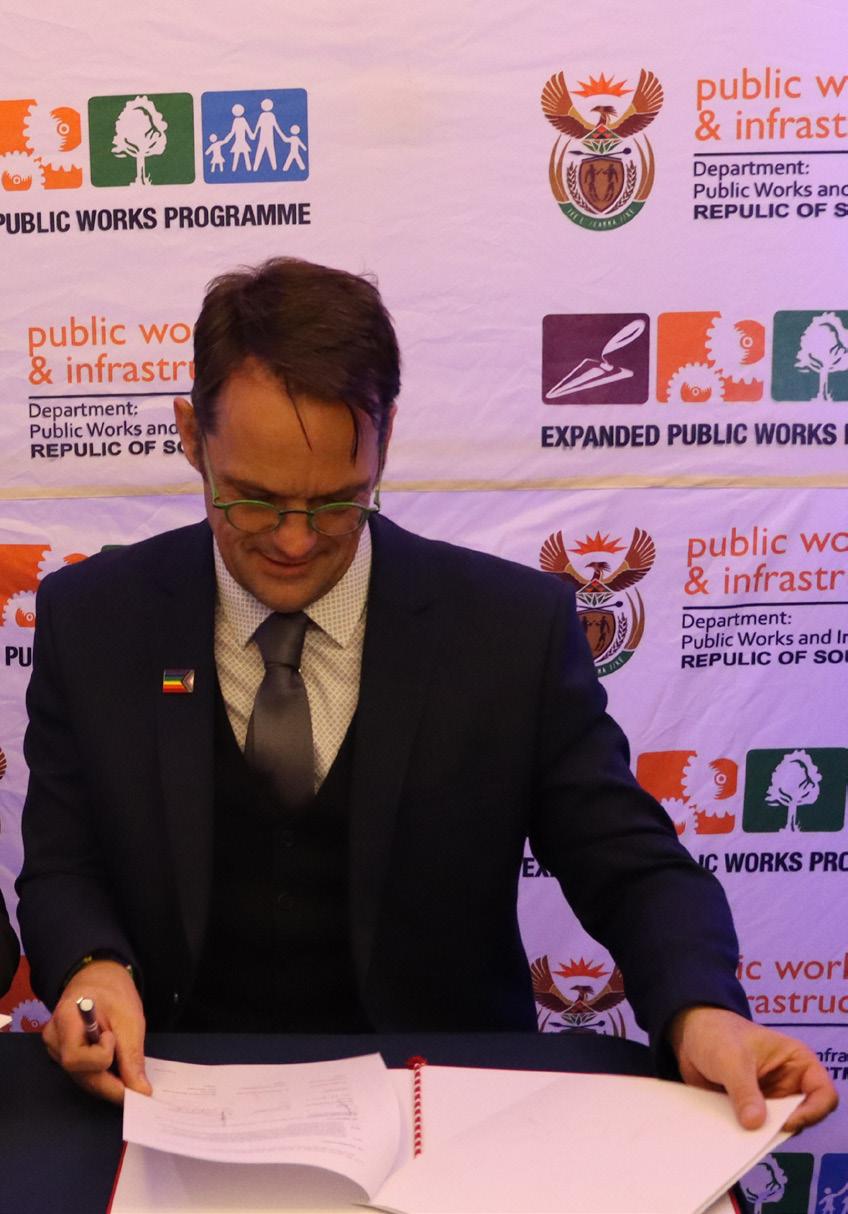
Agriculture is one of the mainstays of Matlosana, which proudly boasts a region rich with agricultural potential. The emphasis is focused on field crops, such as maize, wheat, sorghum, sunflowers, etc... (climatically suitable with a 70% probability of production success).
Aside from attracting investment, the N12 Treasure Route connects communities to the economic hub of Matlosana City. The improved road infrastructure changes the lives of the City’s citizens making it easier to access employment opportunities and other services.
Shoppers can also be spoiled for choice between Matlosana Mall, City Mall, Flamwood Walk Shopping Mall, Tower Mall and other leading shopping centres in Matlosana.
they will contribute positively to the city’s landscape, creating safer and more welcoming environments for residents and visitors alike.
The MOU’s focus on public-private partnerships is integral to its potential success. Opening these properties to private investment provides a sustainable model for urban renewal, especially in light of budget constraints on public spending. This approach not only revitalizes properties but also spurs job creation,
helping to stimulate economic growth within Durban and the surrounding areas.
“This is a new era for eThekwini,” said Macpherson. “We’re setting an example of what can be achieved when we work together toward the common good of our people.” His emphasis on cooperation across government levels and private investors highlights the value of partnership in transforming neglected urban spaces. Such collaborations enable cities like eThekwini to leverage additional resources and expertise that the government alone might lack, making these ambitious projects feasible.
“The
days of state buildings standing empty, attracting crime, and chasing away investment are coming to an end.” - Minister of Public Works and Infrastructure, Dean Macpherson
Agriculture is one of the mainstays of Matlosana, which proudly boasts a region rich with agricultural potential. The emphasis is focused on field crops, such as maize, wheat, sorghum, sunflowers, etc...
Prasheen Maharaj from the Durban Chamber of Commerce and Industry
hailed the initiative as a crucial step for Durban’s revitalization, underscoring its potential to unlock the full economic and social value of abandoned properties. Maharaj’s statement reflects a broader consensus that effective urban renewal depends on collaborative efforts, particularly in cities striving to attract investment and retain talent.
To ensure the MOU’s success, a technical

task team comprising members from all three spheres of government will be established. This team will play a vital role in cataloging, assessing, and overseeing the management of problem buildings across Durban. Law enforcement will work in close coordination with this team to secure properties that have been hijacked or illegally occupied, reclaiming them for redevelopment and ensuring their safety before new tenants move in.
The Market is the property of the City of Matlosana and was established in 1980 and it is ranked 8th out of 17 Fresh Markets in the country according to turnover.
MEC Martin Meyer noted that law enforcement support is essential in reclaiming hijacked buildings, a problem that has plagued several South African cities. He emphasized that any illegal activity within state-owned buildings will not be tolerated, reaffirming the government’s commitment to creating secure, functional urban spaces. Meyer also noted the added benefit of reducing rental expenses for government offices by refurbishing properties for public use, including as government offices or NGO facilities.
With five Market agents, the market supplies customers as far as Botswana, Kimberly and Vryburg.
CONTACT DETAILS
The MOU’s provisions extend beyond economic benefits; they address housing shortages, promote public safety, and stimulate social development. Many of the identified properties are well-positioned to serve as low-cost housing, student residences, and shelter facilities for vulnerable populations, filling a crucial gap in Durban’s housing market.
Address: Cnr Braamfisher & OR Tambo Streets, Klerksdorp
Tel: 018 487 8000/ 018 487 8800
Email: communications@ klerksdorp.org
CityofMatlosanaUpdates
@MatlosanaCom
Cityofmatlosanamunicipal
eThekwini Mayor Cyril Xaba emphasized that the MOU aligns with the city’s goals to foster economic growth while prioritizing public safety. “We’re embarking on this

project not only to bring investment back into Durban but also to improve public safety and contribute to social development,” he said. This initiative forms part of a broader strategy to maximize public sector assets in a way that benefits residents, encourages investment, and supports local communities.
The City of Matlosana Municipality is situated approximately 164 km South West of Johannesburg, strategically located on the N12 Treasure Route, which is the North West Province’s primary tourism corridor.
The scenic N12 starts from Mpumalanga and is the gateway to the Western Cape Province. The route takes you from eMalahleni, to the vibrant Gauteng Province and the Sterkfontein Cradle of Humankind World Heritage Site, and continues to Potchefstroom, Klerksdorp, Kimberley, Beaufort West, up until George.
Earlier this year, eThekwini hosted its inaugural Property Conference, where the city communicated its intentions to release surplus properties for privatesector use. The conference attracted significant attention, with investors and stakeholders expressing interest in the city’s plans. Following the MOU, the city and DPWI identified 149 properties for disposal, of which 91 are already in various stages of release through requests for proposals (RFPs). By the end of the financial year, eThekwini aims to have 50 properties ready for new uses.
It is the Transformation of the N12 Treasure Route that has unlocked regional opportunities and resulted in massive activity and mobility along the Matlosana portion of the corridor. It has a multi-dimensional character that has created employment, enhanced commuter movement, enhanced investment opportunities, increased economic activity, etc.
According to Xaba, this strategy demonstrates the city’s dedication to rejuvenating its public assets. By streamlining the process of property disposal, eThekwini can encourage faster turnaround on redevelopment projects, stimulating economic activity
and reinforcing the city’s commitment to improving its urban environment.
The MOU between eThekwini and the DPWI is more than a local initiative; it serves as a model for other South African municipalities seeking to optimize their public assets. Minister Macpherson expressed his hope that this agreement would inspire similar collaborations across the country, highlighting the potential for public-private partnerships to address urban decay in cities beyond Durban. He envisions this approach being replicated nationwide, transforming vacant government buildings into community assets that generate both economic and social value.
MEC Meyer echoed this sentiment, expressing pride in KwaZulu-Natal’s leadership role in pioneering this approach. “We’re setting a precedent that will hopefully inspire other regions,” he said. “This initiative allows us to bring underutilized assets back into circulation while ensuring they serve the public effectively.” This model of urban renewal reflects a forward-looking perspective on asset management, where innovation and collaboration are key to sustainable development.
Create unforgettable memories at our quality business and leisure accommodation venues which include conferencing, wedding and spa facilities.
The MOU between eThekwini Municipality and the DPWI stands as a testament to the power of collaborative vision and strategic planning. By focusing on public-private partnerships, Durban is poised for a transformative era that will reshape its skyline, enhance public safety, and provide much-needed housing. This initiative represents a new approach to managing public assets, where previously underutilized buildings are repurposed to serve both economic and social objectives.
Public-Private Partnership Initiative
Revitalization of Urban Spaces
Transform neglected, abandoned, and hijacked buildings into functional spaces, improving public safety and city aesthetics.
Attract private investment to stimulate economic activity and create job opportunities within Durban.
Affordable Housing and Community Resources
Convert vacant buildings into affordable housing, student accommodation, and shelters, addressing critical social needs in the city.
The city prides itself on having five private hospitals, two government hospitals, including the largest state hospital in the North West Province and 15 clinics including mobile clinics. It also boasts the only fully contained oncology unit in the North West Province, which offers a comprehensive service at four pathological laboratories and has the latest MRI scanner at the radiology unit.
Secure and repurpose neglected properties to reduce crime associated with abandoned buildings.
Sustainable Urban Development
services. Most clinics focus on primary
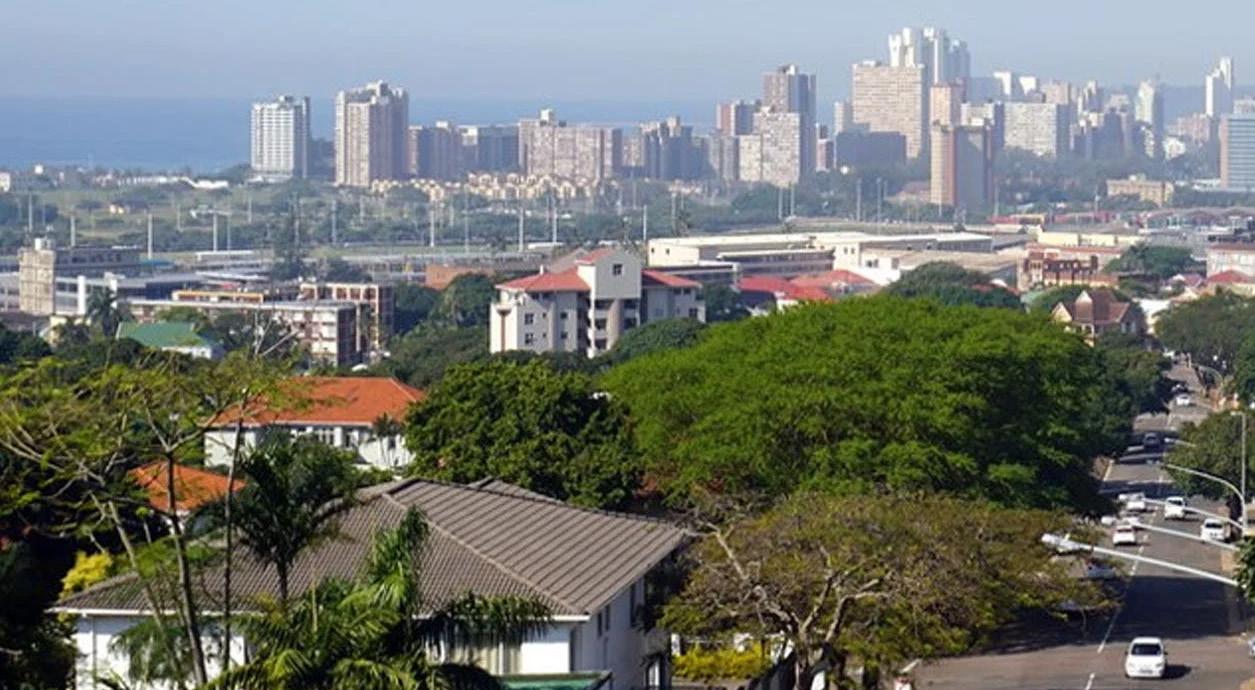
N12 Development Route was identified by the municipality as a flagship project for golden opportunities in the following sectors: housing, business, industrial, heritage, mining, tourism, sport as well as recreation.
Showcase a replicable model of public-private partnerships for urban renewal, potentially inspiring similar efforts across South Africa.



AGRICULTURE
Agriculture is one of the mainstays of Matlosana, which proudly boasts a region rich with agricultural potential. The emphasis is focused on field crops, such as maize, wheat, sorghum, sunflowers, etc... (climatically suitable with a 70% probability of production success).
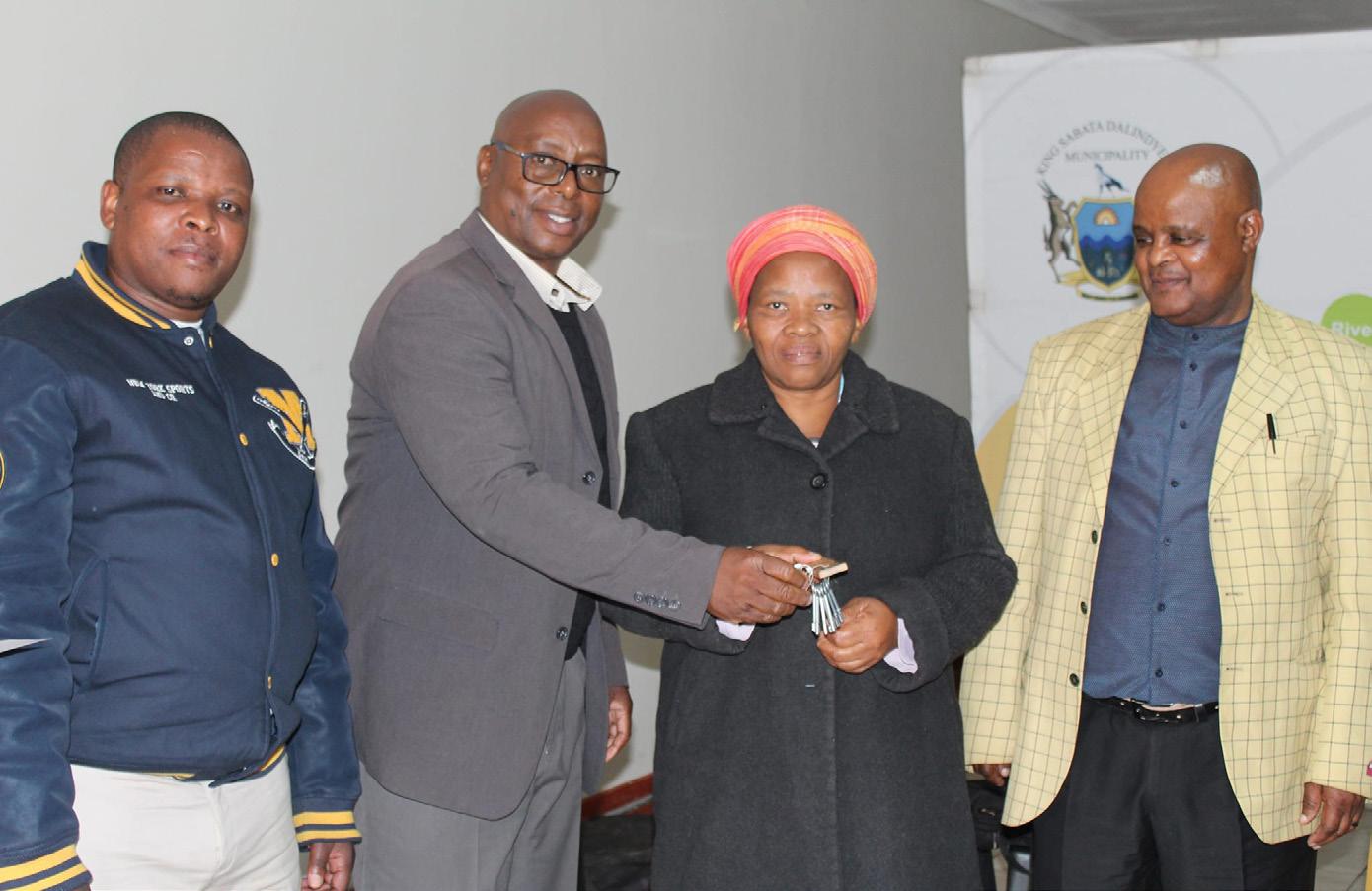
Aside from attracting investment, the N12 Treasure Route connects communities to the economic hub of Matlosana City. The improved road infrastructure changes the lives of the City’s citizens making it easier to access employment opportunities and other services.
One of the beneficiaries, Mrs. Nokuzola Matini, shared her heartfelt emotions: “I never thought I would see this day. This house means everything to me and my children. It’s a place where we can feel safe and call our own. I am so thankful to the municipality for this blessing.”
The municipality worked closely with contractors to ensure that the houses were built to high standards, reflecting its commitment to delivering quality infrastructure. The homes are designed to be durable and functional, ensuring that they meet the needs of the families who will occupy them.
NATIONAL FRESH PRODUCE MARKET
Shoppers can also be spoiled for choice between Matlosana Mall, City Mall, Flamwood Walk Shopping Mall, Tower Mall and other leading shopping centres in Matlosana.
In its commitment to improving lives, King Sabata Dalindyebo (KSD) Municipality handed over new homes to a further ten families in a heartwarming ceremony held on Wednesday, 6 November 2024. The event took place in New Payne Location, Ward 30, and marked a significant milestone in the municipality's efforts to deliver safe, dignified housing to its residents.
The housing project forms part of a larger strategy by KSD Municipality to address socio-economic challenges within its jurisdiction and by prioritizing vulnerable groups and focusing on human settlements, the municipality is not only meeting basic needs, but also fostering community development and social cohesion.
Speaking at the event, the MMC and Portfolio Head for Human Settlements, Councillor Nombulelo Sibeko, highlighted the significance of the
Agriculture is one of the mainstays of Matlosana, which proudly boasts a region rich with agricultural potential. The emphasis is focused on field crops, such as maize, wheat, sorghum, sunflowers, etc...
occasion emphasizing that providing decent housing is more than just delivering physical structures; it is about restoring dignity and creating a foundation for a better future.
“As a municipality, we are steadfast in our mission to ensure that all our residents have access to safe and adequate housing. Today’s handover is a testament to our commitment and the fulfillment of a promise to our people. We are not just handing over houses; we are giving these families a chance to build a brighter future,” said Cllr Sibeko.
For the beneficiaries, the new homes represent more than just shelter. They symbolize stability, safety, and an opportunity to transform their lives and create lasting memories with their loved ones. Applause and cheers rang out from the gathered community members as the ten families received their keys, marking the beginning of a new chapter in their lives.
Beyond the immediate impact on the ten families, the handover ceremony served as an inspiration for the broader community and highlighted the importance of collaboration between government, local leaders, and communities in driving meaningful change.
The Market is the property of the City of Matlosana and was established in 1980 and it is ranked 8th out of 17 Fresh Markets in the country according to turnover.
With five Market agents, the market supplies customers as far as Botswana, Kimberly and Vryburg.
CONTACT DETAILS
While challenges remain, the municipality’s dedication and the tangible results of this project offer a glimpse of a brighter future for the region. KSD Municipality’s human settlements program is a beacon of hope for the many others who are still awaiting their chance for improved living conditions.
Address: Cnr Braamfisher & OR Tambo Streets, Klerksdorp
Tel: 018 487 8000/ 018 487 8800
Email: communications@ klerksdorp.org
CityofMatlosanaUpdates @MatlosanaCom
Cityofmatlosanamunicipal
Dignity restored, promises fulfilled, and lives transformed! Through initiatives like this, KSD Municipality continues to set a benchmark for service delivery and community upliftment, paving the way for a more inclusive and prosperous society.

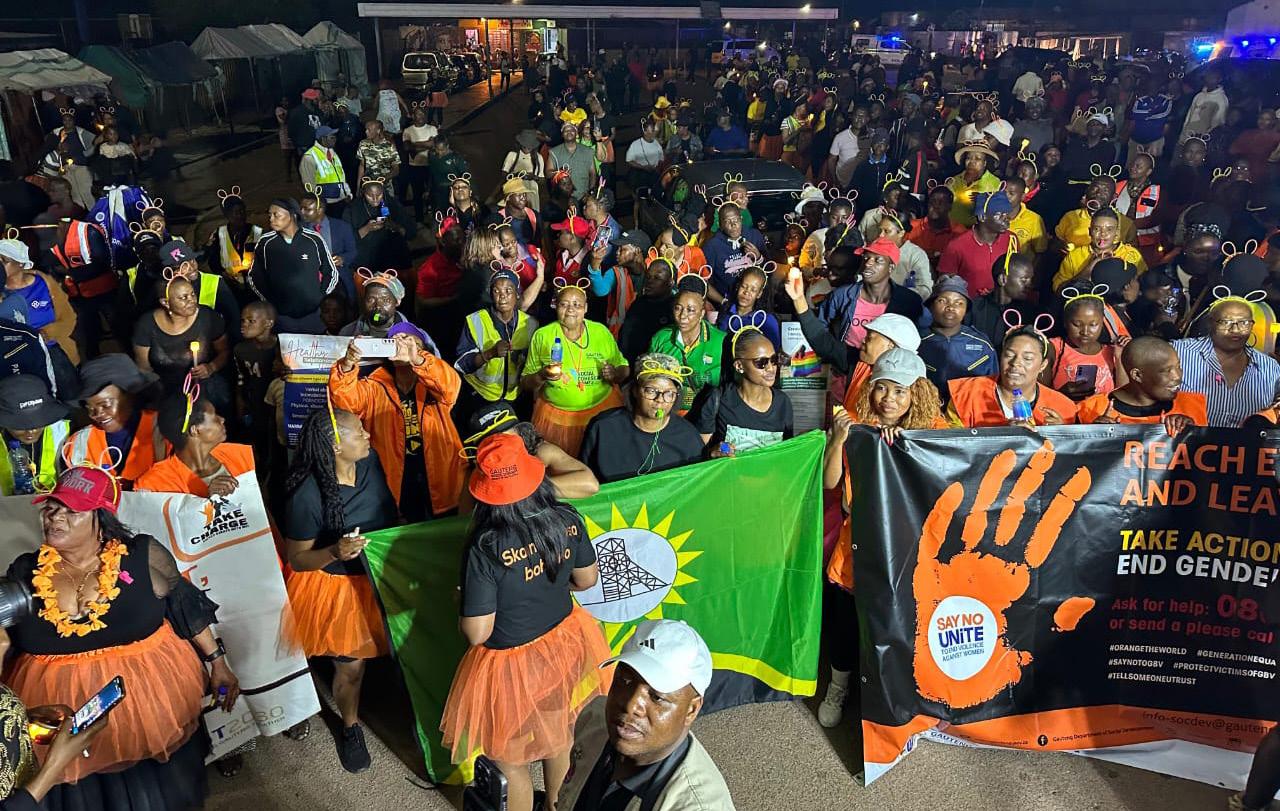
The City of Matlosana Municipality is situated approximately 164 km South West of Johannesburg, strategically located on the N12 Treasure Route, which is the North West Province’s primary tourism corridor.
The scenic N12 starts from Mpumalanga and is the gateway to the Western Cape Province. The route takes you from eMalahleni, to the vibrant Gauteng Province and the Sterkfontein Cradle of Humankind World Heritage Site, and continues to Potchefstroom, Klerksdorp, Kimberley, Beaufort West, up until George.
On the evening of 10th October 2024, women from across Rand West came together to reclaim the night in a powerful march against GenderBased Violence and Femicide (GBVF). This significant initiative, supported by the Gauteng Department of Social Development and Rand West City Local Municipality, was a bold statement of solidarity, resilience, and the unwavering hope for a safer, more just future.
It is the Transformation of the N12 Treasure Route that has unlocked regional opportunities and resulted in massive activity and mobility along the Matlosana portion of the corridor. It has a multi-dimensional character that has created employment, enhanced commuter movement, enhanced investment opportunities, increased economic activity, etc.
WHY VISIT THE CITY OF MATLOSANA?
"Tonight, we march to reclaim our streets, but our true task is to ensure that safety and empowerment become everyday realities."
- Executive Mayor, Cllr. William Matsheke
Create unforgettable memories at our quality business and leisure accommodation venues which include conferencing, wedding and spa facilities. The City has a wealth of attractions for visitors:
• Adventure tourism
The march began at Usave Ralerata Street, with participants gathering in anticipation, their energy palpable. As they walked towards Four Square at the corner of Nhlapho and Thebenare, the streets came alive
• Wildlife tourism
• Medical tourism
• Wellness tourism
with determination. Women carried signs emblazoned with messages of defiance against GBVF, while candles illuminated the night, symbolising the collective light they bring to the fight for justice. Chants of unity echoed through the air, reinforcing the call to reclaim not only the streets but also the freedom and safety that every individual deserves.
Create unforgettable memories at our quality business and leisure accommodation venues which include conferencing, wedding and spa facilities.
MATLOSANA AS A MEDICAL HUB
Prominent figures joined the march, amplifying its impact. MEC Faith Mazibuko from the Gauteng Department of Social Development walked side by side with the women, her presence a powerful endorsement of the cause. MEC Mazibuko addressed the gathering, delivering a heartfelt message about the importance of standing together as a community to combat the scourge of gender-based violence. She reminded everyone that change begins with collective action and a commitment to protecting the vulnerable in our communities.
The Executive Mayor, Cllr. William
To us health care is of paramount importance as a healthy city is productive and constitutes prosperity. We boast well-developed medical facilities, which enhances and promotes the competitive advantage of Matlosana as a major Medical Hub in the North West Province. Services include: general and private medical fascilities, casualty/trauma and dental services. Most clinics focus on primary health care services.
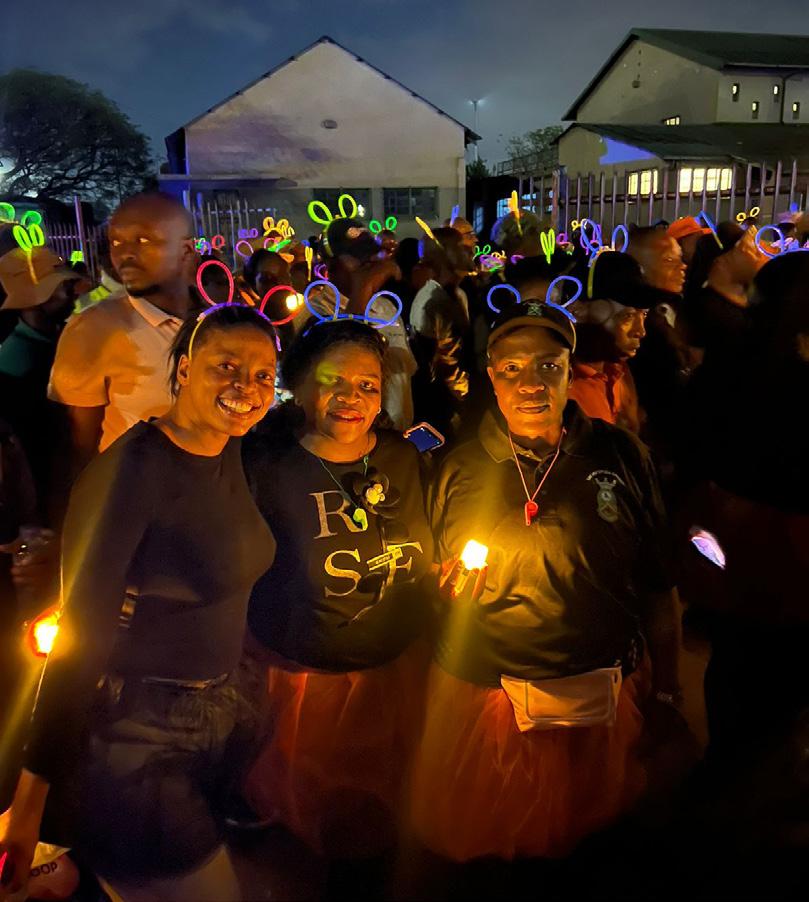
Matsheke, also participated in the event, underscoring the municipality’s dedication to the fight against GBVF. Speaking to the crowd, the Mayor highlighted the critical role that local government and individuals must play in creating safe spaces for women and children. "As a municipality, we are deeply committed to supporting initiatives like this. Tonight, we march to reclaim our streets, but our true task is to ensure that safety and empowerment become everyday realities," said Mayor Matsheke.
The march was a moment of unity, courage, and empowerment. It served not only as a declaration of defiance against GBVF but also as a rallying call to action. As government employees, community members, and leaders, we all have a vital role to play. Whether through policy development, support services, or advocacy, the fight against GBVF must remain a collective priority. Together, we can turn this vision of safety and equality into a reality for all who call Rand West home.
The city prides itself on having five private hospitals, two government hospitals, including the largest state hospital in the North West Province and 15 clinics including mobile clinics. It also boasts the only fully contained oncology unit in the North West Province, which offers a comprehensive service at four pathological laboratories and has the latest MRI scanner at the radiology unit.
N12 Development Route was identified by the municipality as a flagship project for golden opportunities in the following sectors: housing, business, industrial, heritage, mining, tourism, sport as well as recreation.



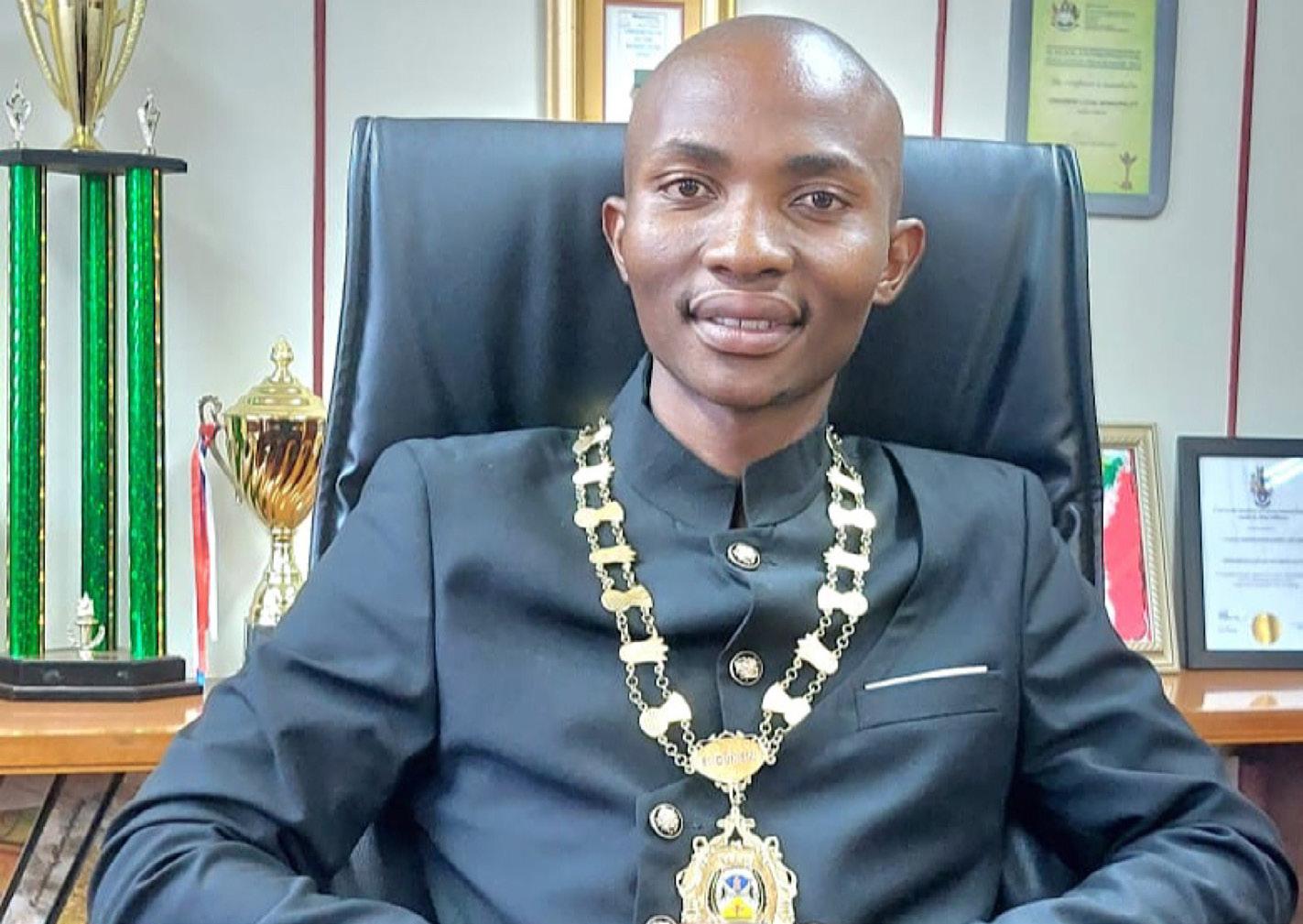
the City’s citizens making it easier to access employment opportunities and other services.
by eNdumeni’s youth. He has pledged to prioritise youth development, focusing on equipping young people with scarce and in-demand skills to address unemployment in the region. Agriculture is another cornerstone of his vision for eNdumeni. Recognising the community's struggles with food insecurity, Mayor Mkhize plans to revitalise local farming initiatives by leveraging municipal-owned farms. "We need to utilise the resources we already have to drive economic growth and ensure food security for our communities," he stated.
Guided by the IFP Manifesto
NATIONAL FRESH PRODUCE MARKET
The Inkatha Freedom Party (IFP) has ushered in a new era of leadership in eNdumeni Local Municipality with the appointment of Mcebo Andrew Mkhize as mayor. At just 26 years old, Mayor Mkhize brings a dynamic, youthoriented perspective to governance, complemented by his strong educational background and deep community involvement.
Shoppers can also be spoiled for choice between Matlosana Mall, City Mall, Flamwood Walk Shopping Mall, Tower Mall and other leading shopping centres in Matlosana.
Born on 8 September 1998 in Matamane Village, Buyaphile Area, Ward 5 in eNdumeni, Mayor Mkhize is the eldest of three brothers. His educational journey began at Oscarsburg Primary School, followed by Shiyane High School and Sihayo Comprehensive High School in eNquthu. He furthered his studies at Majuba College, where he earned an N6 qualification in Electrical Engineering. Most recently, he obtained a Higher Certificate in Public Management from MANCOSA. Mkhize’s leadership capabilities became evident during his tenure
as Chairperson of the Student Representative Council (SRC) in 2018 under SADESMO, the IFP’s student wing. He has since held various roles, including Youth Officer within the uMzinyathi Local Municipality's Community Services Department, and serves as Chairperson of the IFP Youth Brigade in the eNdumeni Constituency.
Agriculture is one of the mainstays of Matlosana, which proudly boasts a region rich with agricultural potential. The emphasis is focused on field crops, such as maize, wheat, sorghum, sunflowers, etc...
Mayor Mkhize credits his resilience and faith for his personal and professional achievements. A devout Christian, his faith was solidified in 2022 following a life-altering illness, during which he turned to spirituality for healing. “I believe my appointment as Mayor is part of God’s plan, and I am committed to leading with integrity and compassion,” he said.
As a young leader, Mayor Mkhize is acutely aware of the challenges faced
Mayor Mkhize emphasises that the municipality’s plans will align with the IFP’s National and Provincial Manifestos. These frameworks will serve as guiding principles for addressing community needs effectively.
The Market is the property of the City of Matlosana and was established in 1980 and it is ranked 8th out of 17 Fresh Markets in the country according to turnover.
“I am committed to serving the people of eNdumeni with compassion and understanding,” he said. “Together, we can make our municipality thrive and regain its greatness.”
With five Market agents, the market supplies customers as far as Botswana, Kimberly and Vryburg.
With his blend of youthful energy, faithdriven leadership, and commitment to community upliftment, Mayor Mcebo Andrew Mkhize is poised to lead eNdumeni Local Municipality into a brighter future.
CONTACT DETAILS
Address: Cnr Braamfisher & OR Tambo Streets, Klerksdorp
Tel: 018 487 8000/ 018 487 8800
Email: communications@ klerksdorp.org
"My priority is to empower young people with skills and opportunities while revitalising agriculture to ensure a prosperous future for eNdumeni." – Mayor Mcebo Andrew Mkhize


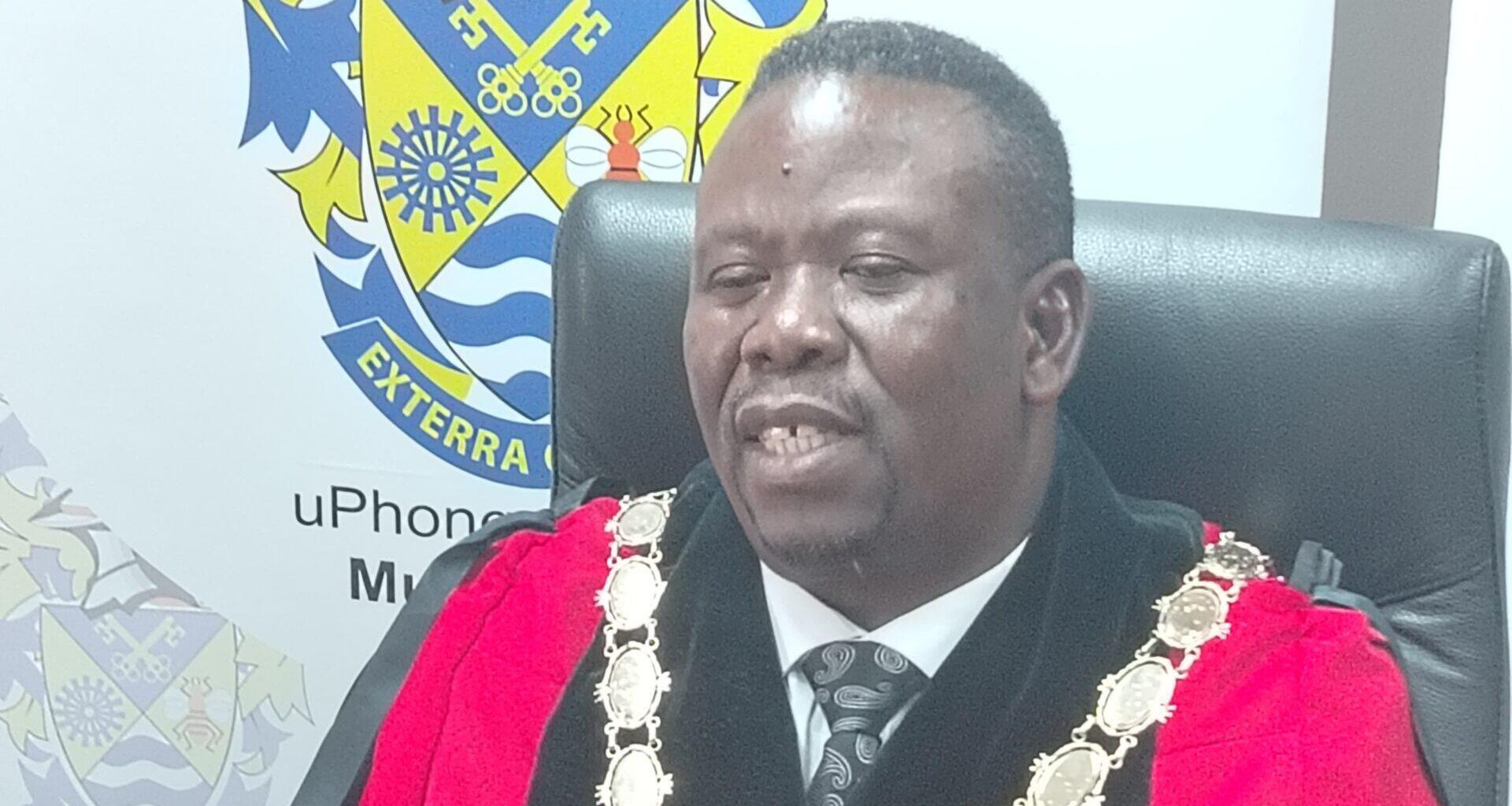
regional opportunities and resulted in massive activity and mobility along the Matlosana portion of the corridor. It has a multi-dimensional character that has created employment, enhanced commuter movement, enhanced investment opportunities, increased economic activity, etc.
The uPhongolo Local Municipality has ushered in a new era of leadership with the appointment of Cllr. BJ Thwala as Mayor in November 2024. Known for his commitment to service delivery and community development, Thwala’s leadership promises transformative changes in this vibrant yet challenged region of KwaZulu-Natal.
WHY VISIT THE CITY OF MATLOSANA?
Create unforgettable memories at our quality business and leisure accommodation venues which include conferencing, wedding and spa facilities.
Raised in the uPhongolo region, Thwala understands the unique challenges and aspirations of its residents. His early career in community advocacy and local governance has equipped him with the skills needed to navigate the complexities of municipal administration while keeping people at the heart of decision-making.
MATLOSANA AS A MEDICAL HUB
agricultural development, recognising the municipality’s potential as an agricultural hub in KwaZulu-Natal. Thwala has pledged to invest in irrigation schemes, provide support for emerging farmers, and attract private sector partnerships to bolster the local economy.
Create unforgettable memories at our quality business and leisure accommodation venues which include conferencing, wedding and spa facilities. The City has a wealth of attractions for visitors:
• Adventure tourism
• Wildlife tourism
• Medical tourism
• Wellness tourism
Councillor BJ Thwala’s path to the mayoralty is one of steadfast dedication to the people of uPhongolo. Before his election, he served as Acting Mayor, a role that allowed him to implement critical interventions during a period of uncertainty. Thwala’s tenure as Acting Mayor not only stabilised municipal operations but also reinforced his reputation as a leader who prioritises transparency, accountability, and action.
“I believe that effective leadership starts with listening.” – Cllr. BJ Thwala, Mayor of uPhongolo
uPhongolo faces significant socioeconomic challenges, including high unemployment, service delivery backlogs, and inadequate infrastructure. Thwala has outlined a clear strategy to address these issues. His administration is prioritising
To us health care is of paramount importance as a healthy city is productive and constitutes prosperity. We boast well-developed medical facilities, which enhances and promotes the competitive advantage of Matlosana as a major Medical Hub in the North West Province. Services include: general and private medical fascilities, casualty/trauma and dental services. Most clinics focus on primary health care services.
The city prides itself on having five private hospitals, two government hospitals, including the largest state hospital in the North West Province and 15 clinics including mobile clinics. It also boasts the only fully contained oncology unit in the North West Province, which offers a comprehensive service at four pathological laboratories and has the latest MRI scanner at the radiology unit.
One of the most pressing concerns for uPhongolo’s residents is access to clean water. Thwala’s administration has committed to fast-tracking water supply projects and rehabilitating ageing infrastructure. By working with provincial and national governments, he aims to ensure reliable access to this vital resource for all communities.
N12 Development Route was identified by the municipality as a flagship project for golden opportunities in the following sectors: housing, business, industrial, heritage, mining, tourism, sport as well as recreation.
Mayor Thwala’s vision for uPhongolo includes significant investments in infrastructure. Plans are already underway


to rehabilitate key roads that connect rural areas to economic centres, making it easier for residents to access jobs, schools, and healthcare. Additionally, public facilities such as clinics, schools, and community halls are set to be upgraded, reflecting his administration’s commitment to improving quality of life for all residents.
Agriculture is one of the mainstays of Matlosana, which proudly boasts a region rich with agricultural potential. The emphasis is focused on field crops, such as maize, wheat, sorghum, sunflowers, etc... (climatically suitable with a 70% probability of production success).
Thwala has also championed renewable energy initiatives, exploring solar energy projects to address the electricity challenges faced by rural communities. These efforts align with his broader goal of sustainable and inclusive development.
Aside from attracting investment, the N12 Treasure Route connects communities to the economic hub of Matlosana City. The improved road infrastructure changes the lives of the City’s citizens making it easier to access employment opportunities and other services.
A cornerstone of Thwala’s leadership is his unwavering commitment to youth empowerment. With a significant portion of uPhongolo’s population under 35, he recognises the importance of equipping young people with the skills and opportunities they need to thrive.
Shoppers can also be spoiled for choice between Matlosana Mall, City Mall, Flamwood Walk Shopping Mall, Tower Mall and other leading shopping centres in Matlosana.
Thwala’s administration has launched initiatives to promote entrepreneurship, provide skills training, and connect youth with job opportunities. By fostering partnerships with local businesses and educational institutions, he aims to create a generation of leaders and innovators who will drive the municipality’s future growth.
What sets Councillor Thwala apart is his leadership style - marked by empathy, transparency, and direct engagement with the community. He frequently hosts town hall meetings and outreach programmes, ensuring that residents have a platform to voice their concerns and ideas.
“I believe that effective leadership starts with listening,” Thwala often says, and he demonstrates this by involving community members in the decision-making process. His focus on accountability extends to his administration, where he has implemented stringent measures to prevent corruption and mismanagement.
Thwala’s vision for uPhongolo extends beyond addressing immediate challenges. He aims to build a municipality that thrives economically, socially, and environmentally. Central to this vision is fostering inclusivity - ensuring that the benefits of development reach all residents, particularly those in rural and disadvantaged communities.

Despite the optimism, Thwala acknowledges the challenges that lie ahead. Limited resources, bureaucratic hurdles, and the need for multi-level government collaboration are significant obstacles. However, his pragmatic approach and ability to build partnerships have positioned him well to overcome these barriers.
He has called on all stakeholdersresidents, businesses, and government officials - to work together in building a brighter future for uPhongolo. “Progress is not the work of one person or one administration. It requires collective effort and shared responsibility,” he emphasised during his inaugural address.
One of his ambitious plans includes creating an economic hub in uPhongolo that attracts investors, generates jobs, and supports small businesses. By leveraging the municipality’s agricultural strengths and proximity to key trade routes, Thwala envisions uPhongolo as a model for rural economic development in South Africa.
Agriculture is one of the mainstays of Matlosana, which proudly boasts a region rich with agricultural potential. The emphasis is focused on field crops, such as maize, wheat, sorghum, sunflowers, etc...
Thwala’s leadership has already earned praise from various quarters. Members of the Inkatha Freedom Party (IFP), which governs uPhongolo, have commended his dedication and strategic approach. “Councillor Thwala has shown that he is not just a politician but a servant of the people,” said an IFP representative.
Residents, too, are optimistic about the future under his leadership. “We feel heard for the first time in years,” remarked one community member after attending a town hall meeting. “Mayor Thwala’s plans give us hope.”
The Market is the property of the City of Matlosana and was established in 1980 and it is ranked 8th out of 17 Fresh Markets in the country according to turnover.
As Mayor BJ Thwala begins his tenure, he carries the hopes and expectations of uPhongolo’s residents. His leadership promises a departure from the status quo, with a renewed focus on action, innovation, and community-driven development.
With five Market agents, the market supplies customers as far as Botswana, Kimberly and Vryburg.
In the words of Thwala, “Together, we can transform uPhongolo into a municipality that works for everyone. A municipality we can all be proud of.”
CONTACT DETAILS
With a bold vision, strategic priorities, and a deep commitment to his community, Councillor BJ Thwala is poised to lead uPhongolo into a new era of prosperity and inclusivity.
Address: Cnr Braamfisher & OR Tambo Streets, Klerksdorp
Tel: 018 487 8000/ 018 487 8800
Email: communications@
“Together, we can transform uPhongolo into a municipality that works for everyone. A municipality we can all be proud of.” – Cllr. BJ Thwala, Mayor of uPhongolo

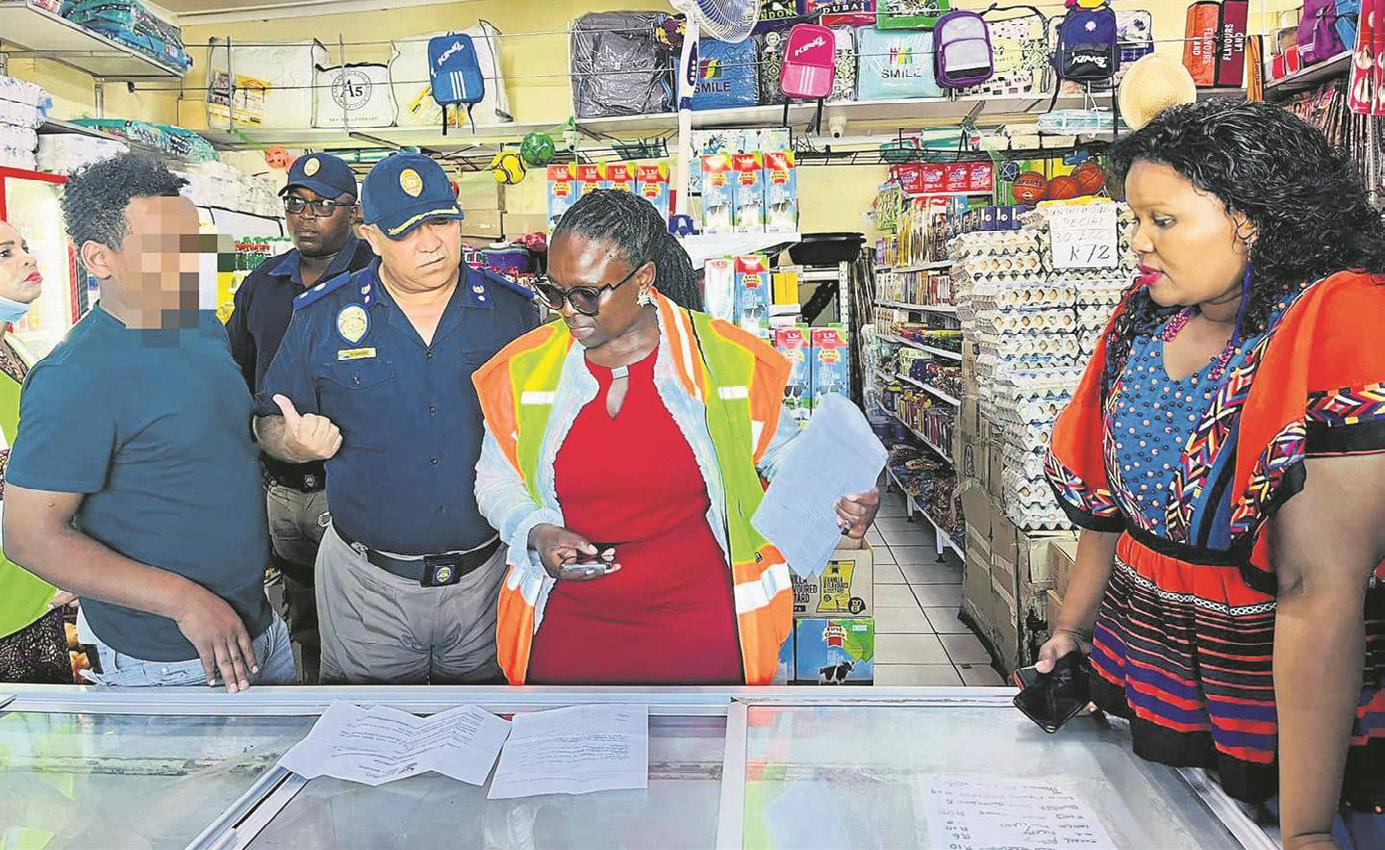
World Heritage Site, and continues to Potchefstroom, Klerksdorp, Kimberley, Beaufort West, up until George.
The recently elected Mayor of Nelson Mandela Bay Municipality (NMBM), Cllr. Babalwa Lobishe, has embarked on a vigorous campaign to regulate spaza shops operating within the municipality. Through these initiatives, Mayor Lobishe aims to address non-compliance with municipal by-laws, ensure public safety, and protect the township economy.
It is the Transformation of the N12 Treasure Route that has unlocked regional opportunities and resulted in massive activity and mobility along the Matlosana portion of the corridor. It has a multi-dimensional character that has created employment, enhanced commuter movement, enhanced investment opportunities, increased economic activity, etc.
Create unforgettable memories at our quality business and leisure accommodation venues which include conferencing, wedding and spa facilities. The City has a wealth of attractions for visitors:
• Adventure tourism
• Wildlife tourism
Under the leadership of Mayor Lobishe, NMBM has partnered with multiple stakeholders, including the Metro Police, South African Police Service (SAPS), the Department of Home Affairs, and various municipal departments. This collaboration has enabled widespread operations targeting spaza shops in areas like KwaZakhele, North End, and New Brighton. The raids have uncovered significant violations, such as illegal electricity connections, expired food products, and counterfeit goods. These non-compliant practices threaten community safety and erode trust in local business operations.
• Medical tourism
• Wellness tourism
During one such operation, eight spaza
shops were shut down, and several undocumented immigrants were detained for working or residing in South Africa without legal documentation. Mayor Lobishe emphasized the importance of enforcing compliance to protect residents from health and safety risks, urging shop owners to adhere to local laws.
Create unforgettable memories at our quality business and leisure accommodation venues which include conferencing, wedding and spa facilities.
MEDICAL HUB
Mayor Lobishe’s focus on food safety underscores her commitment to the well-being of NMBM residents. Inspections revealed alarming practices, including the sale of expired food, hazardous substances, and unauthorized goods. Some shops operated without proper zoning rights, while others were found in arrears on rates and taxes. Highlighting the dangers of such practices, Lobishe stated, “We are determined to ensure food for human consumption is safe and meets optimal hygiene standards.”
Lobishe has also announced plans to propose by-law amendments granting the municipality greater authority to address non-compliance effectively.
While enforcing regulations, the Mayor acknowledged the vital role spaza shops play in the township economy. Recognizing their contribution, she encouraged compliant shop owners to continue their operations within the legal framework. At the same time, she urged South African entrepreneurs to seize the opportunity to establish businesses, assuring them of municipal support.
Some foreign shop owners have contested the measures, labelling them as politically motivated. However, the municipality maintains that these actions are necessary for protecting public health and ensuring regulatory adherence. The Mayor’s stance on illegal practices underscores her administration's prioritization of the greater community's safety and well-being.
The city prides itself on having five private hospitals, two government hospitals, including the largest state hospital in the North West Province and 15 clinics including mobile clinics. It also boasts the only fully contained oncology unit in the North West Province, which offers a comprehensive service at four pathological laboratories and has the latest MRI scanner at the radiology unit.
The success of these operations relies heavily on community participation. Mayor Lobishe has urged residents to report non-compliant spaza shops, stressing that everyone has a role to play in fostering a safe and thriving environment. “Together, we can create a compliant, safer, and healthier community,” she remarked.
The confiscation of expired goods and fines issued to violators send a clear message: compliance is non-negotiable.
To us health care is of paramount importance as a healthy city is productive and constitutes prosperity. We boast well-developed medical facilities, which enhances and promotes the competitive advantage of Matlosana as a major Medical Hub in the North West Province. Services include: general and private medical fascilities, casualty/trauma and dental services. Most clinics focus on primary health care services.
"We are committed to ensuring that all businesses operate within the law, safeguarding our residents, and fostering a prosperous local economy."
N12 Development Route was identified by the municipality as a flagship project for golden opportunities in the following sectors: housing, business, industrial, heritage, mining, tourism, sport as well as recreation.
- Mayor Babalwa Lobishe





















































































